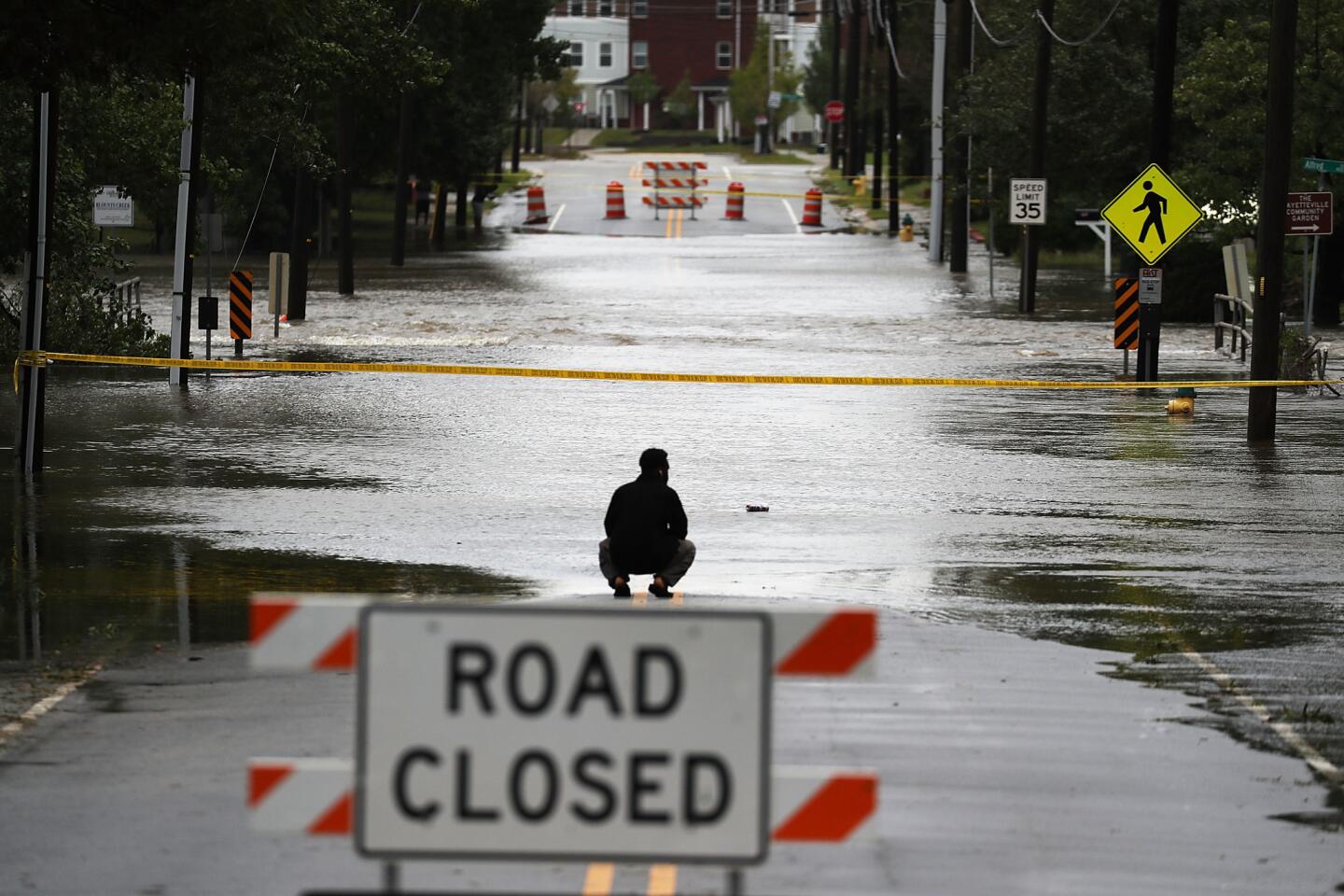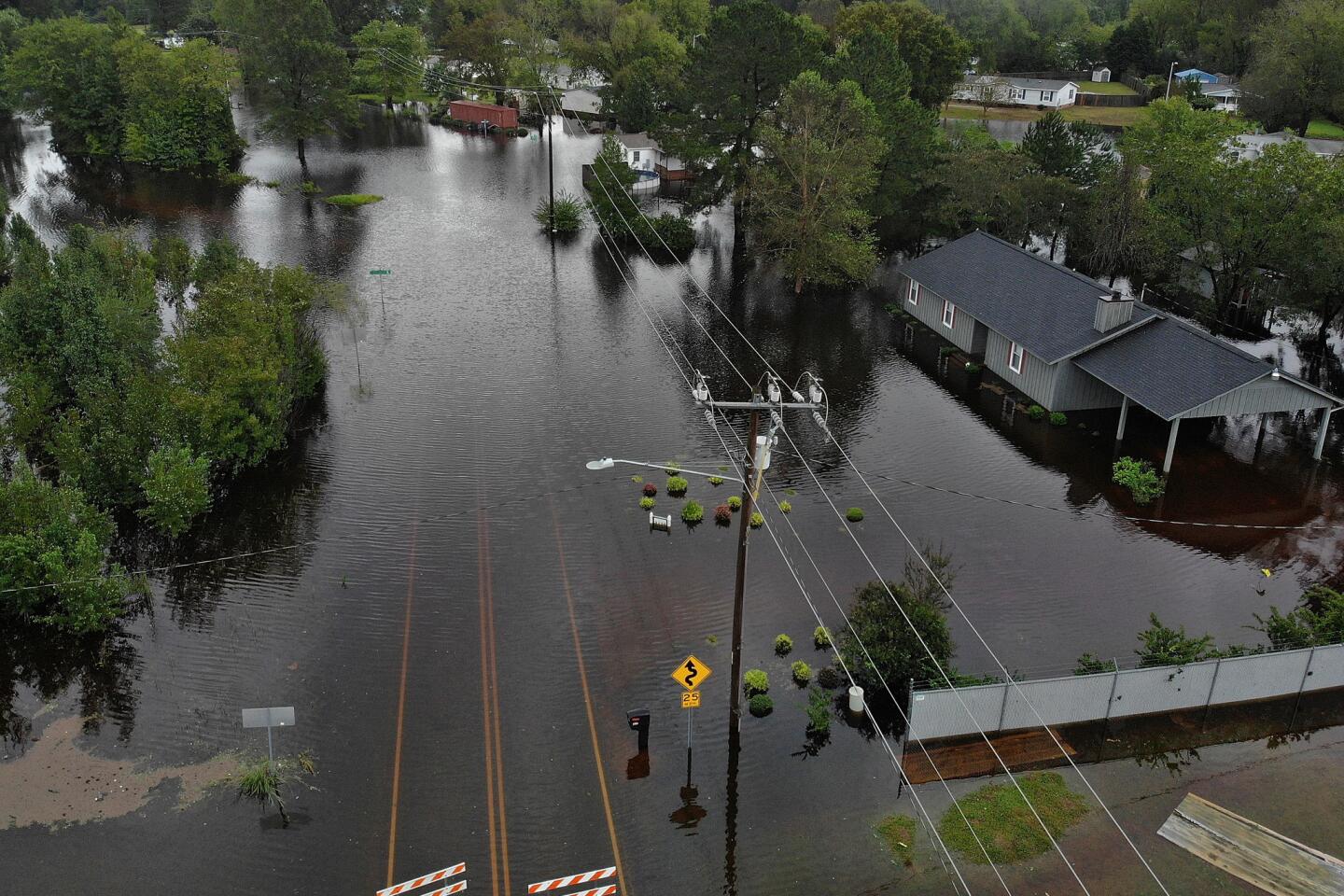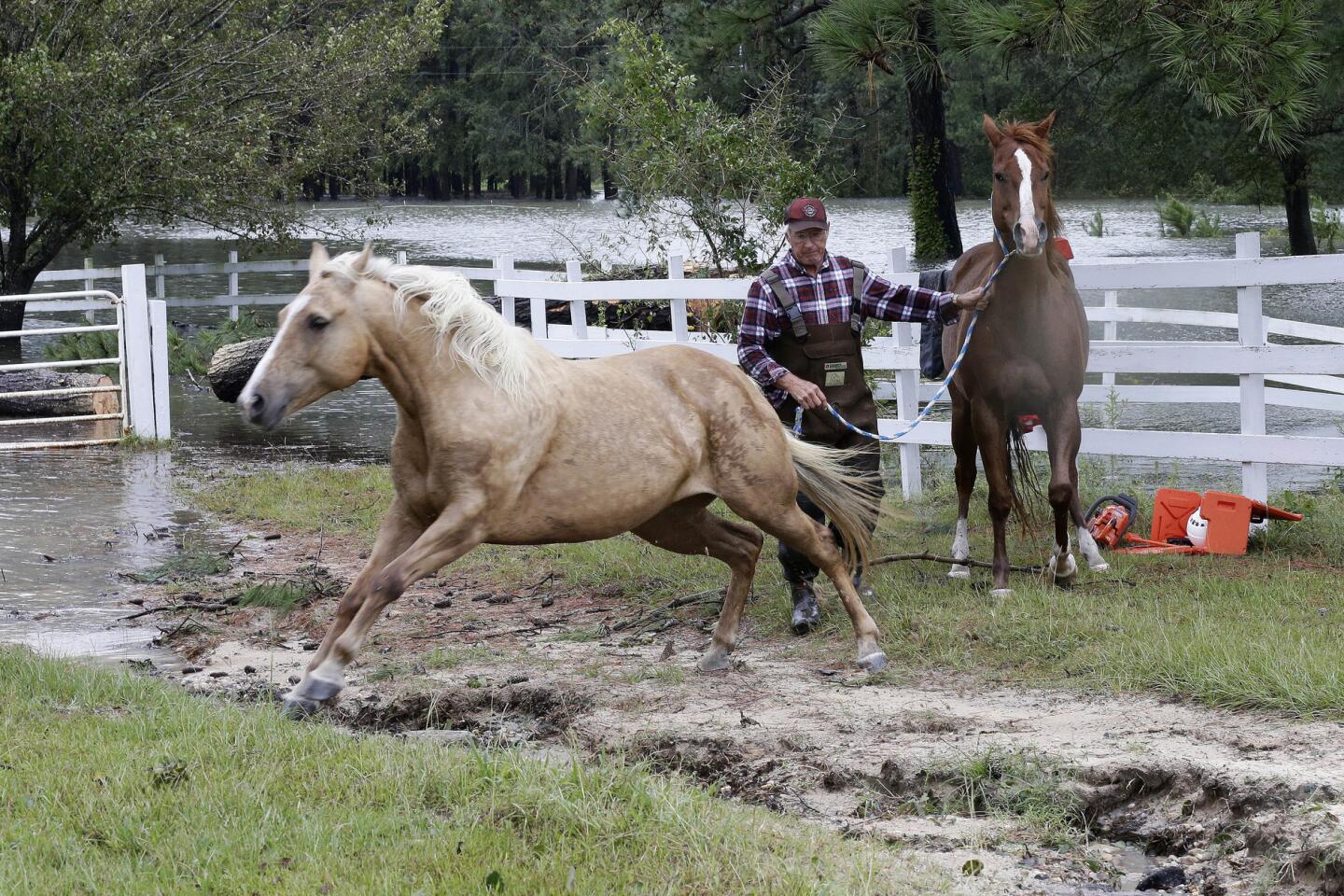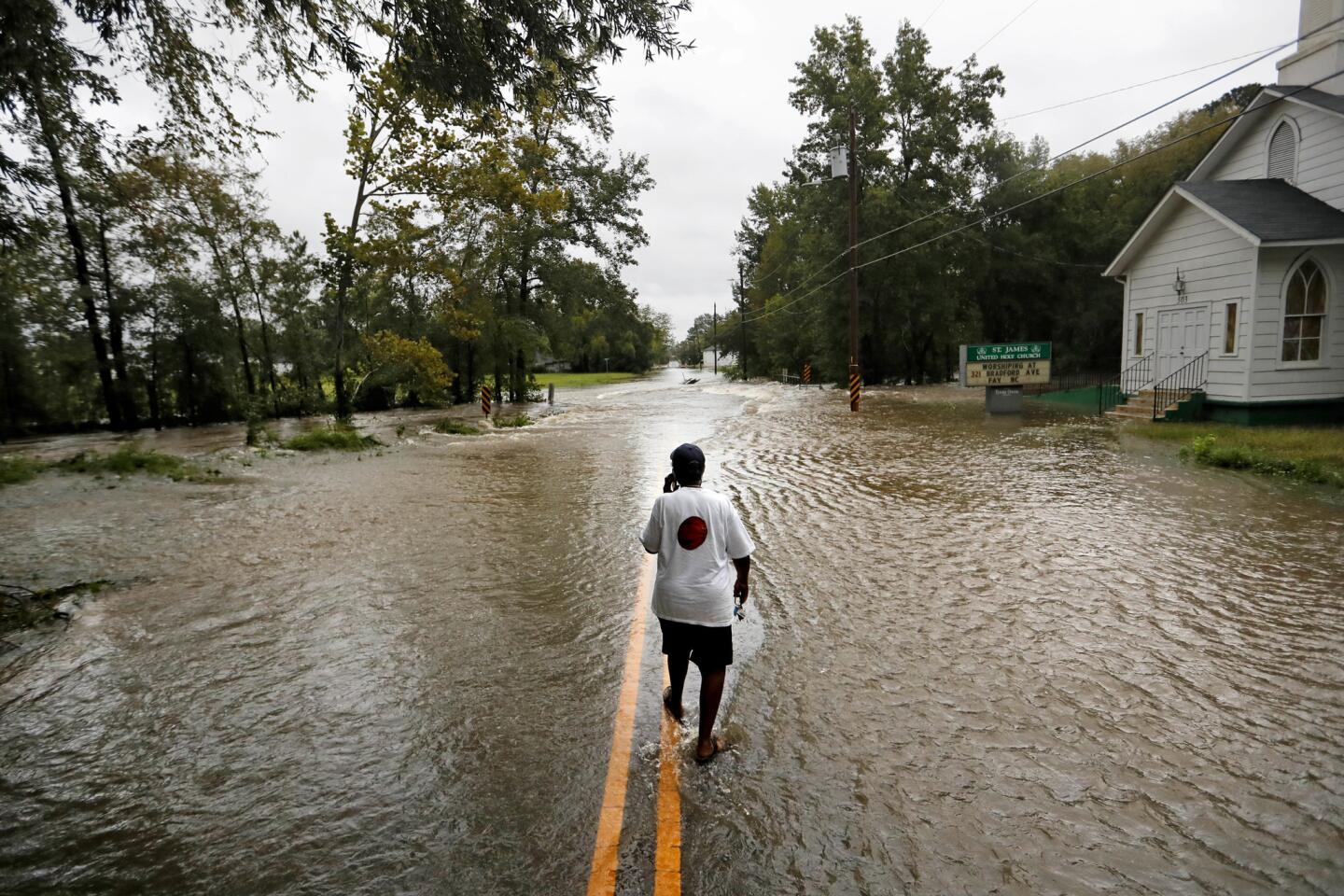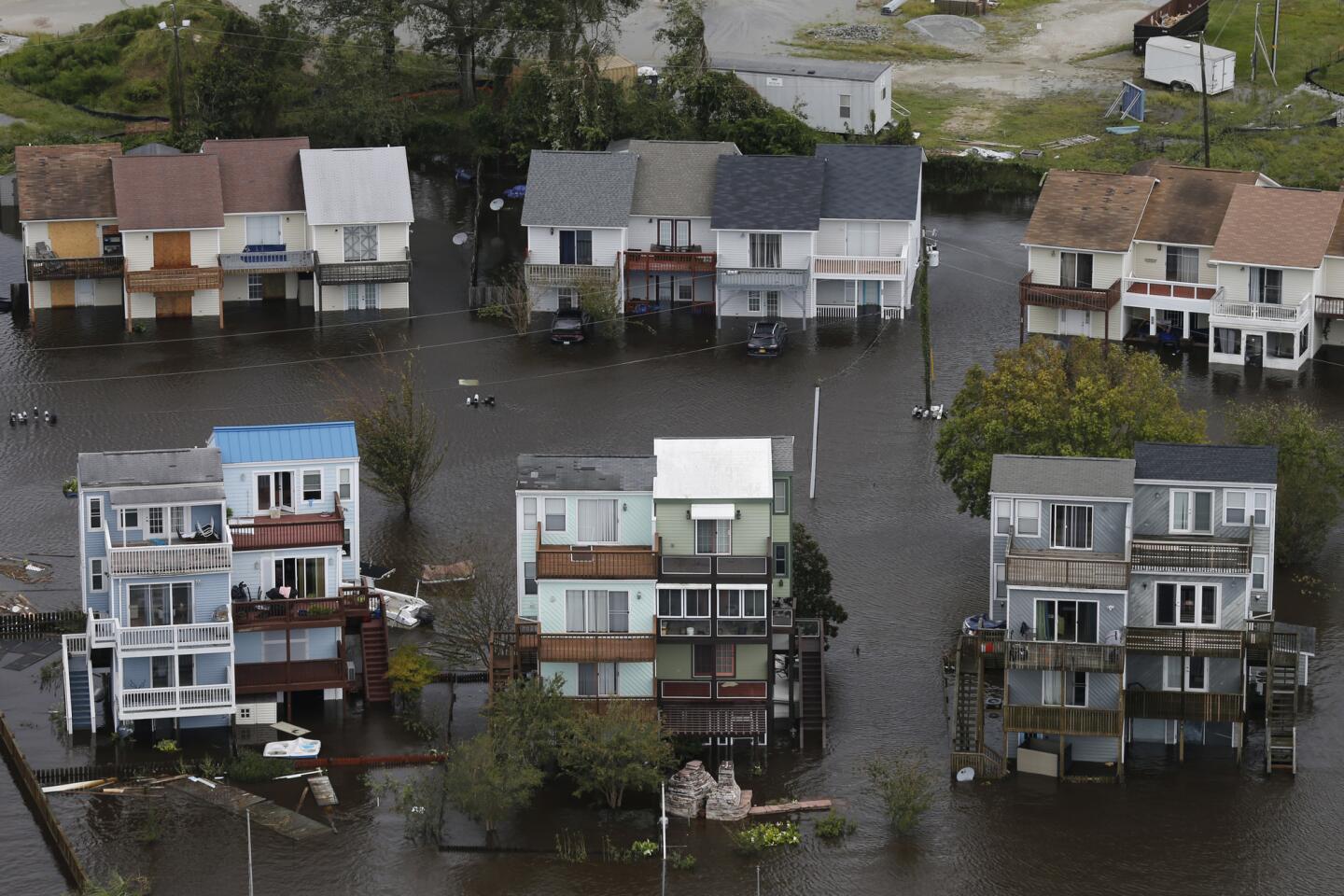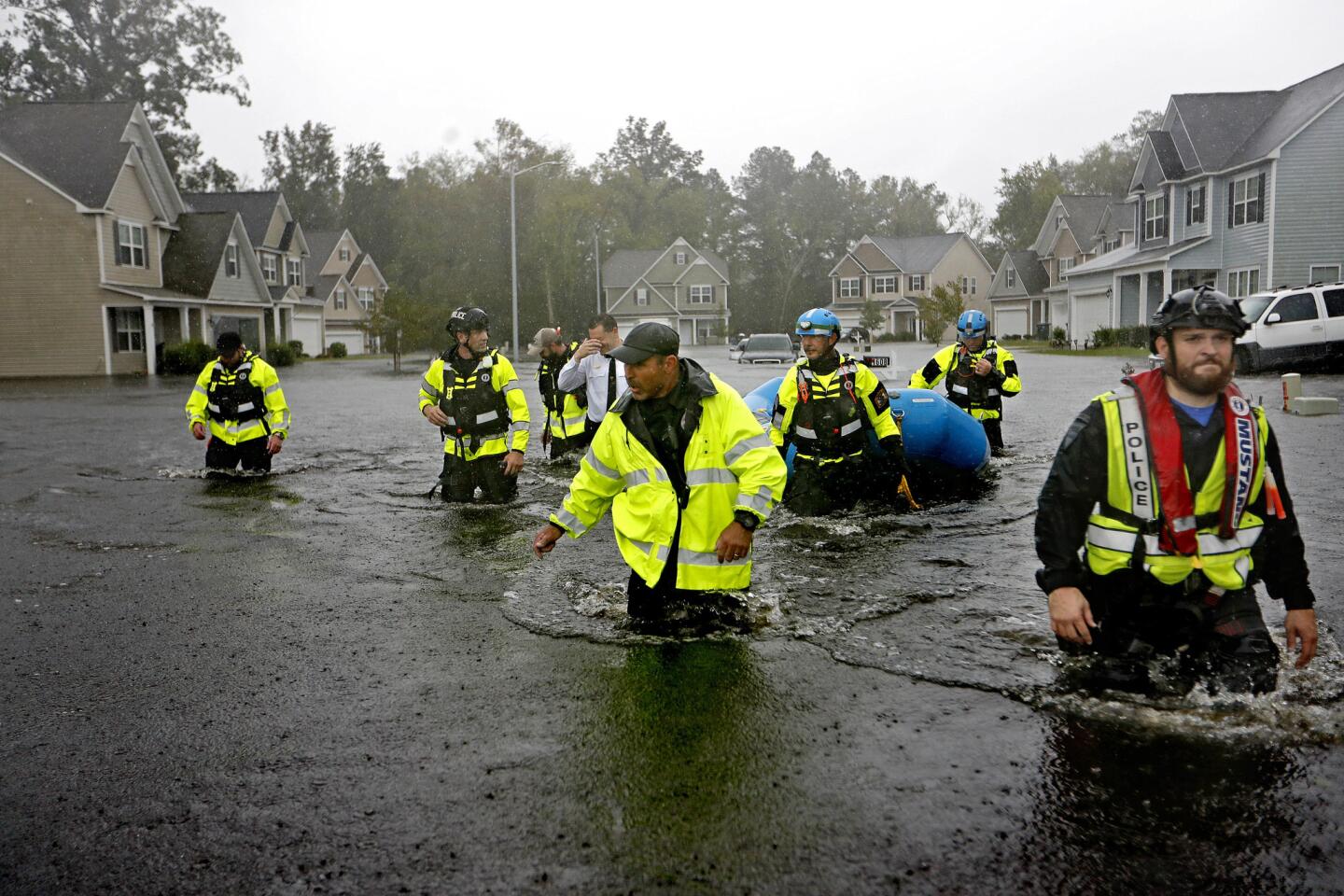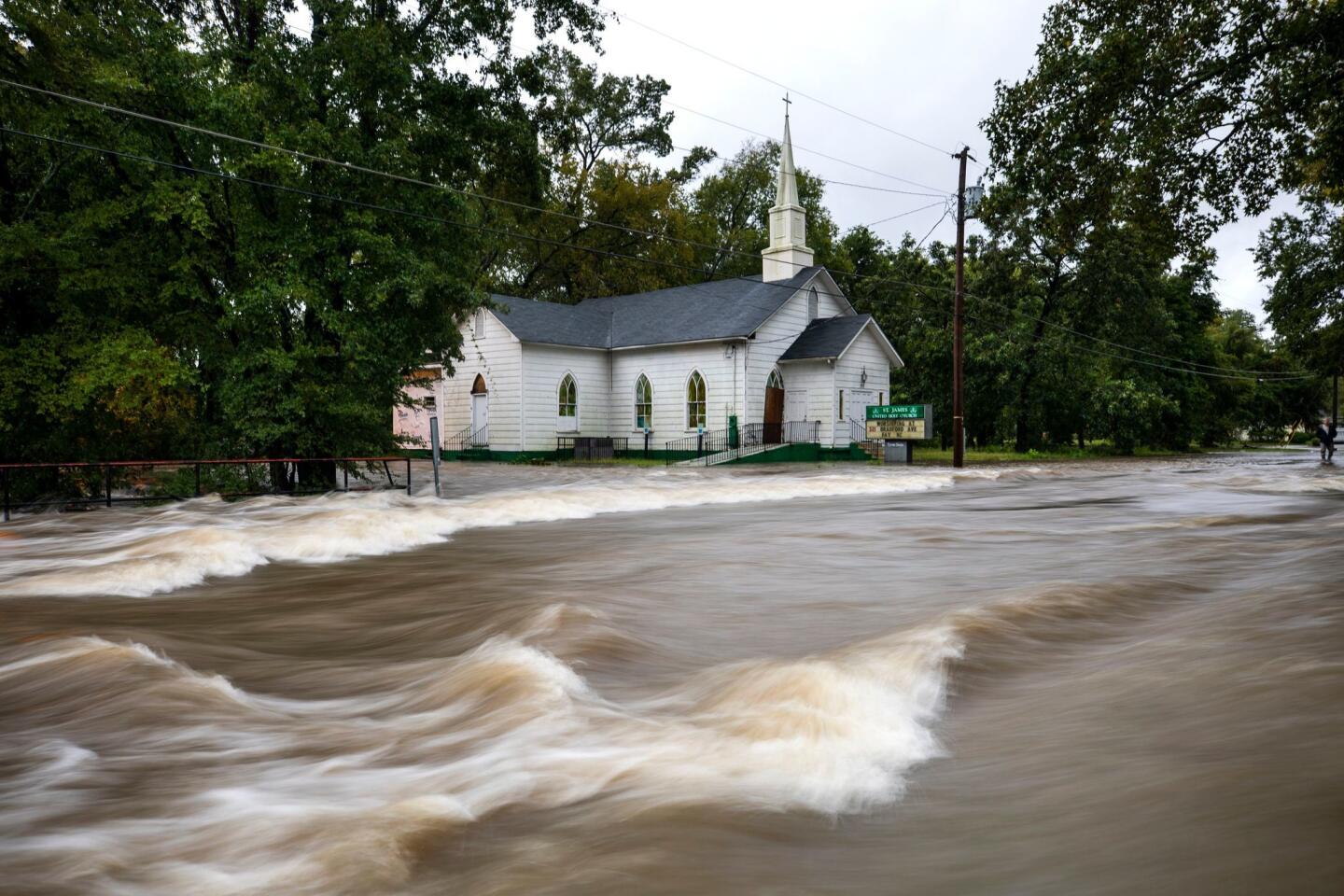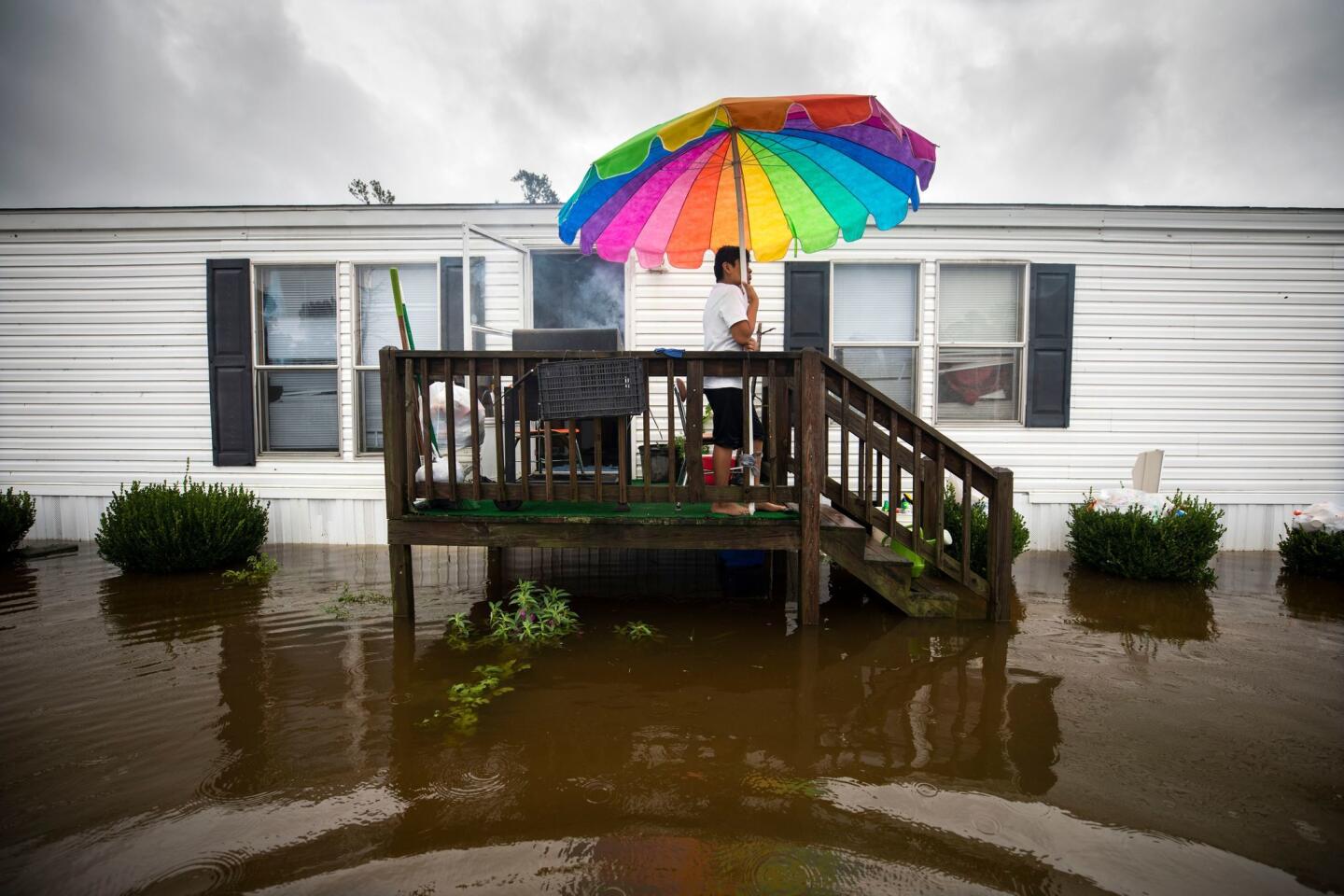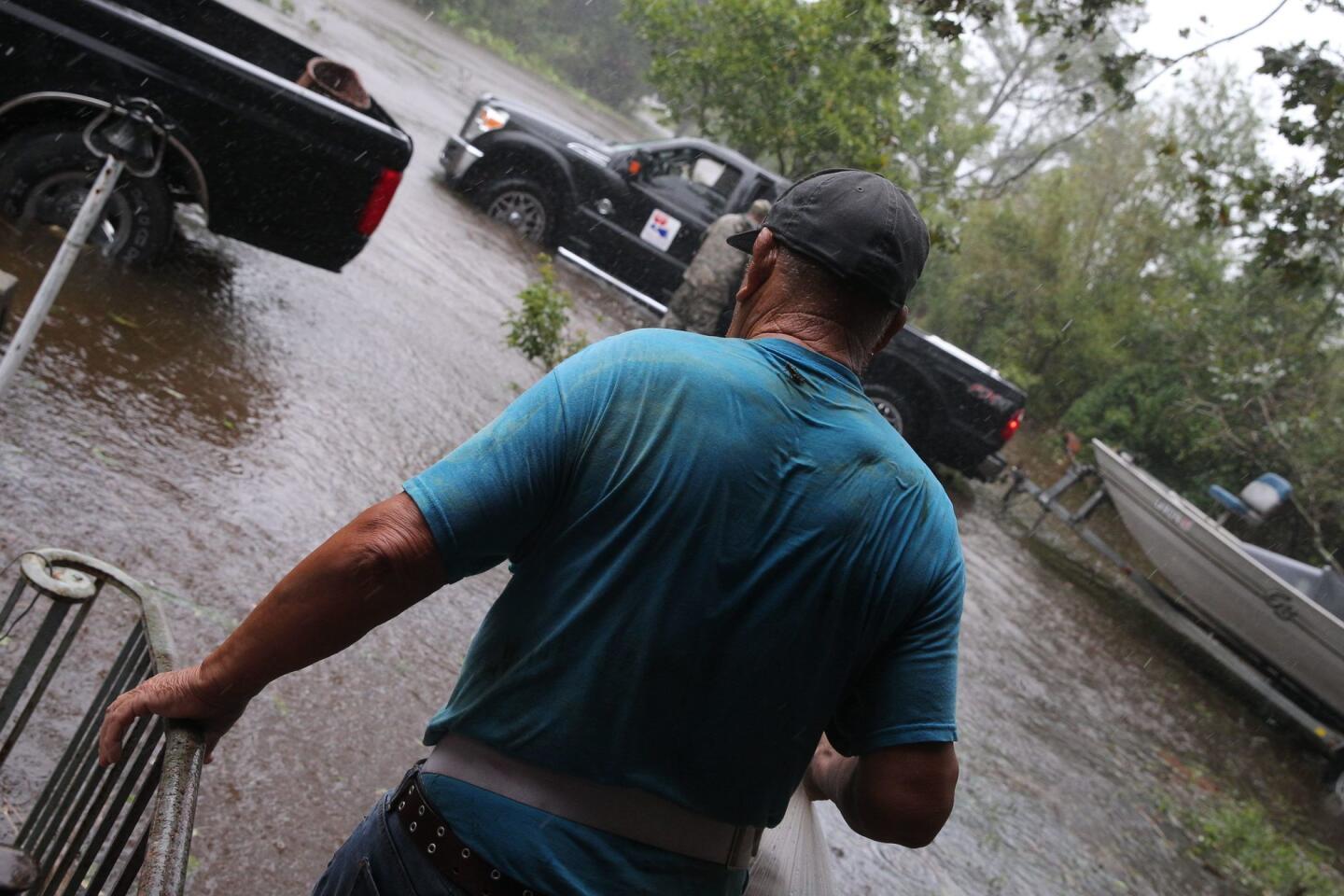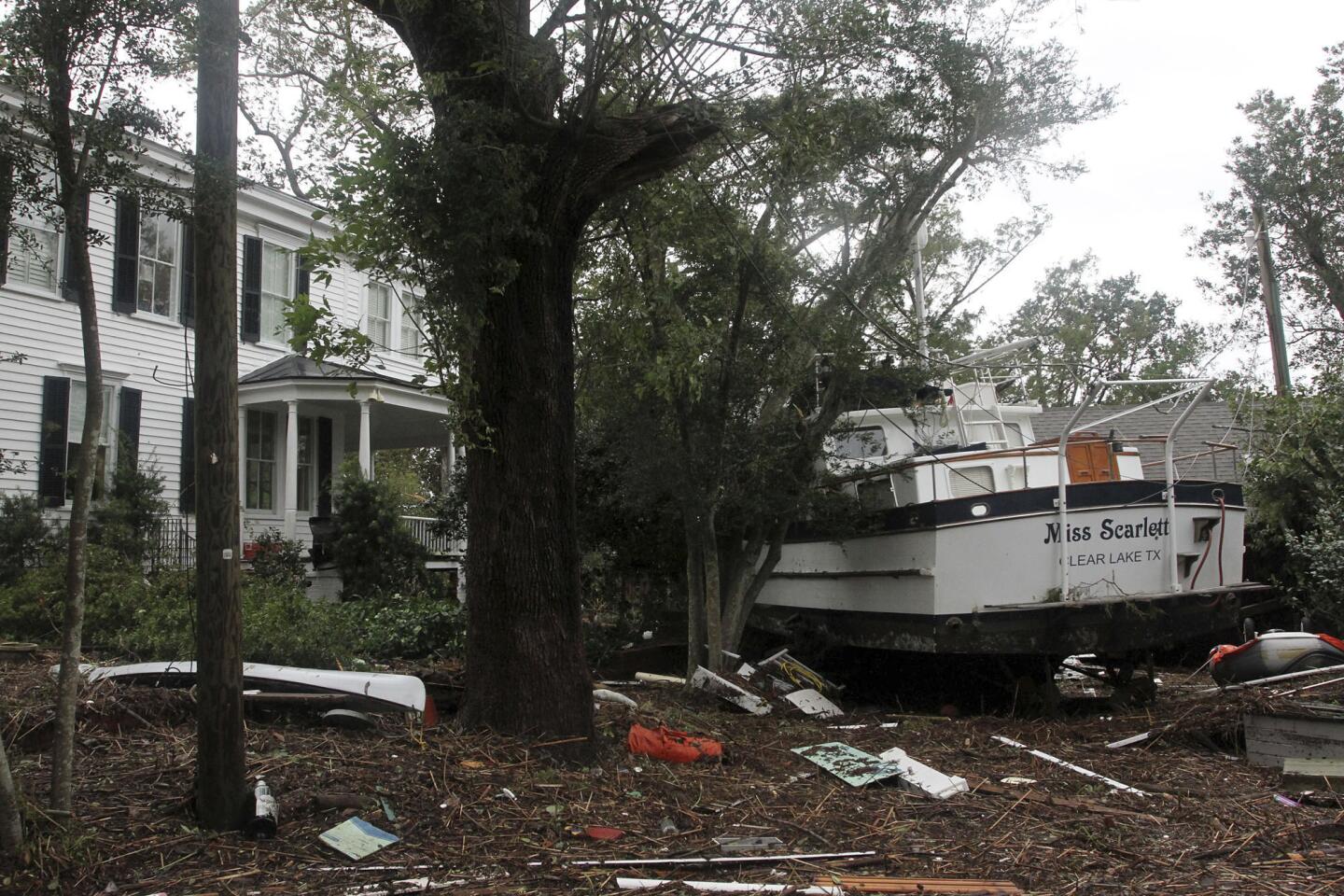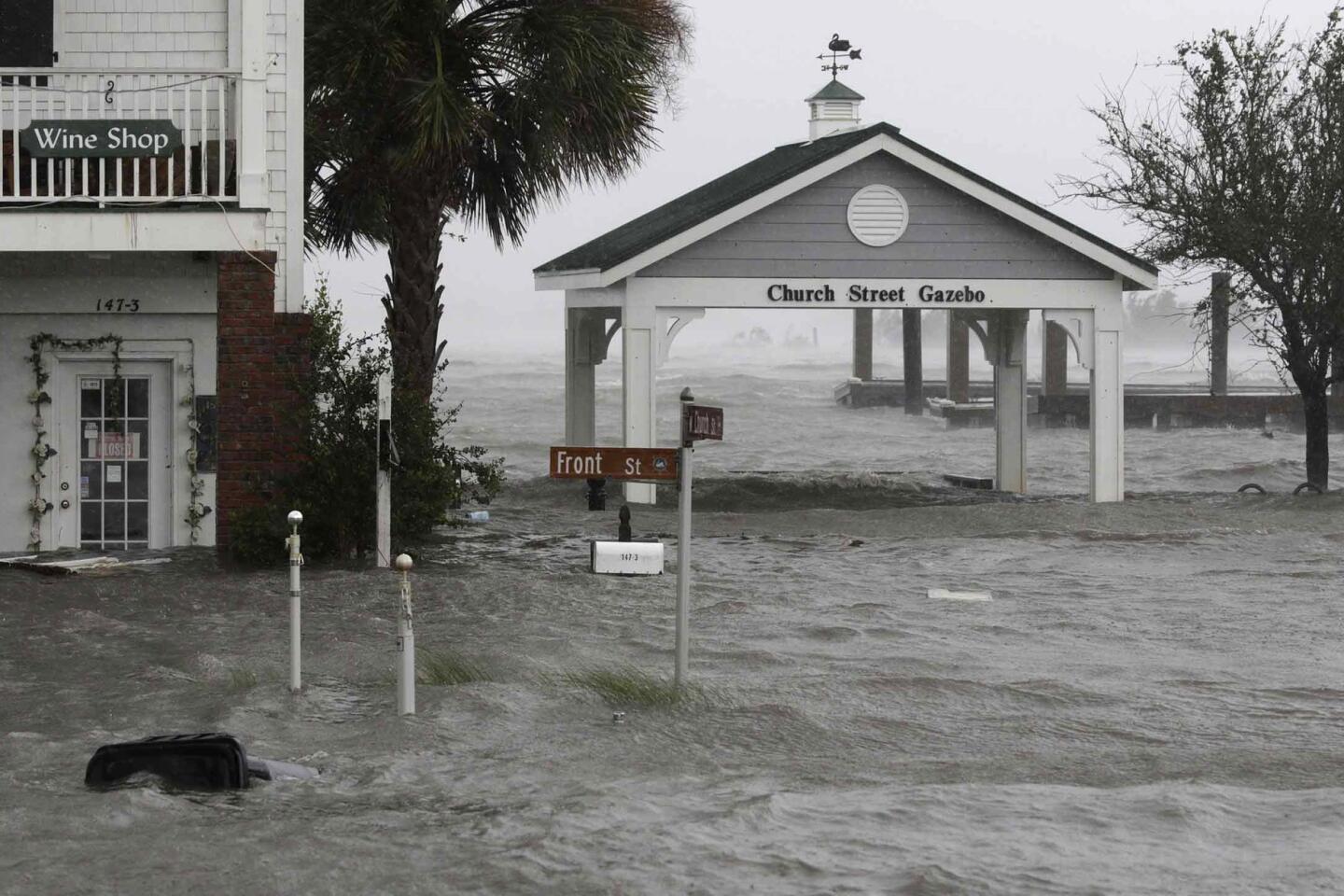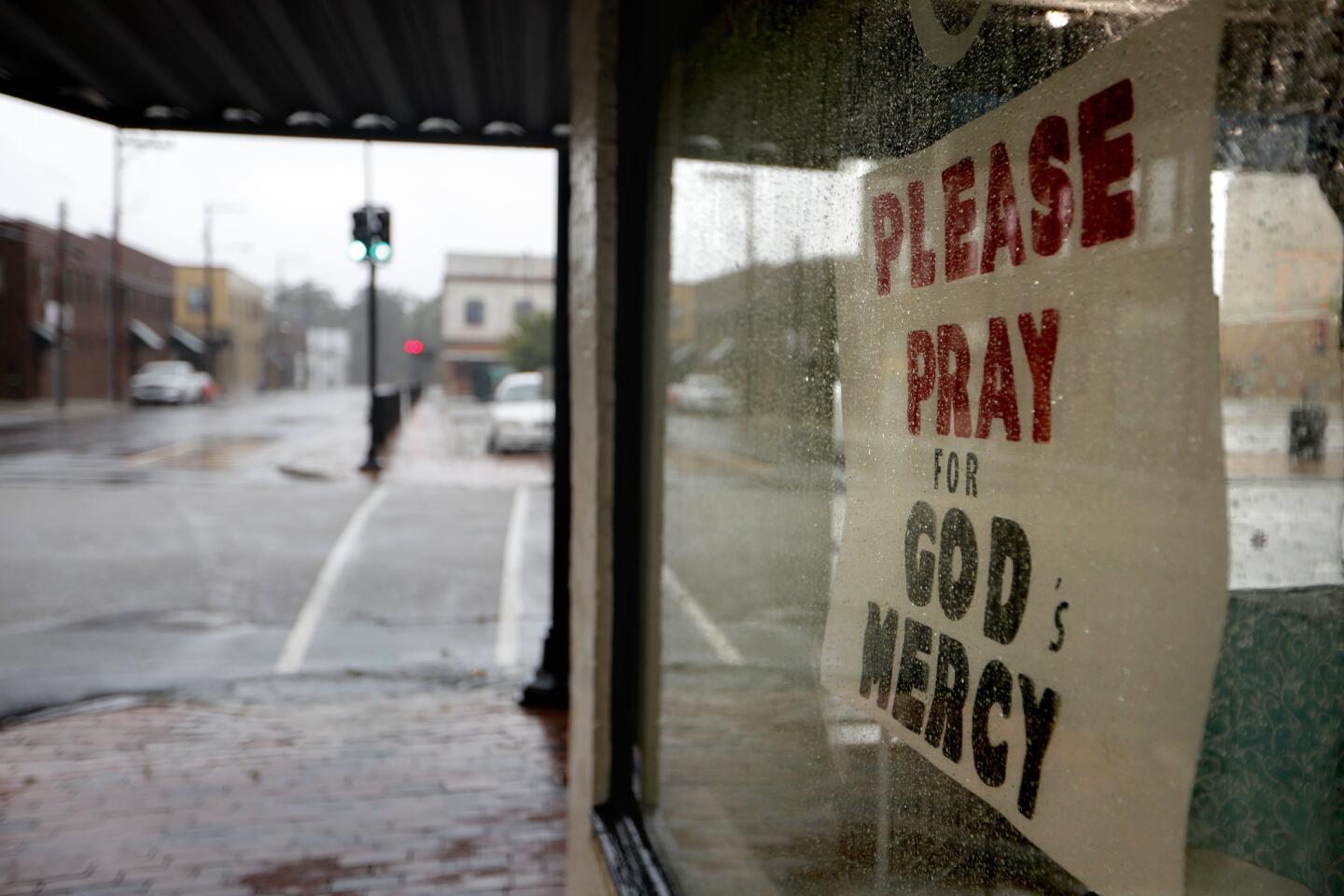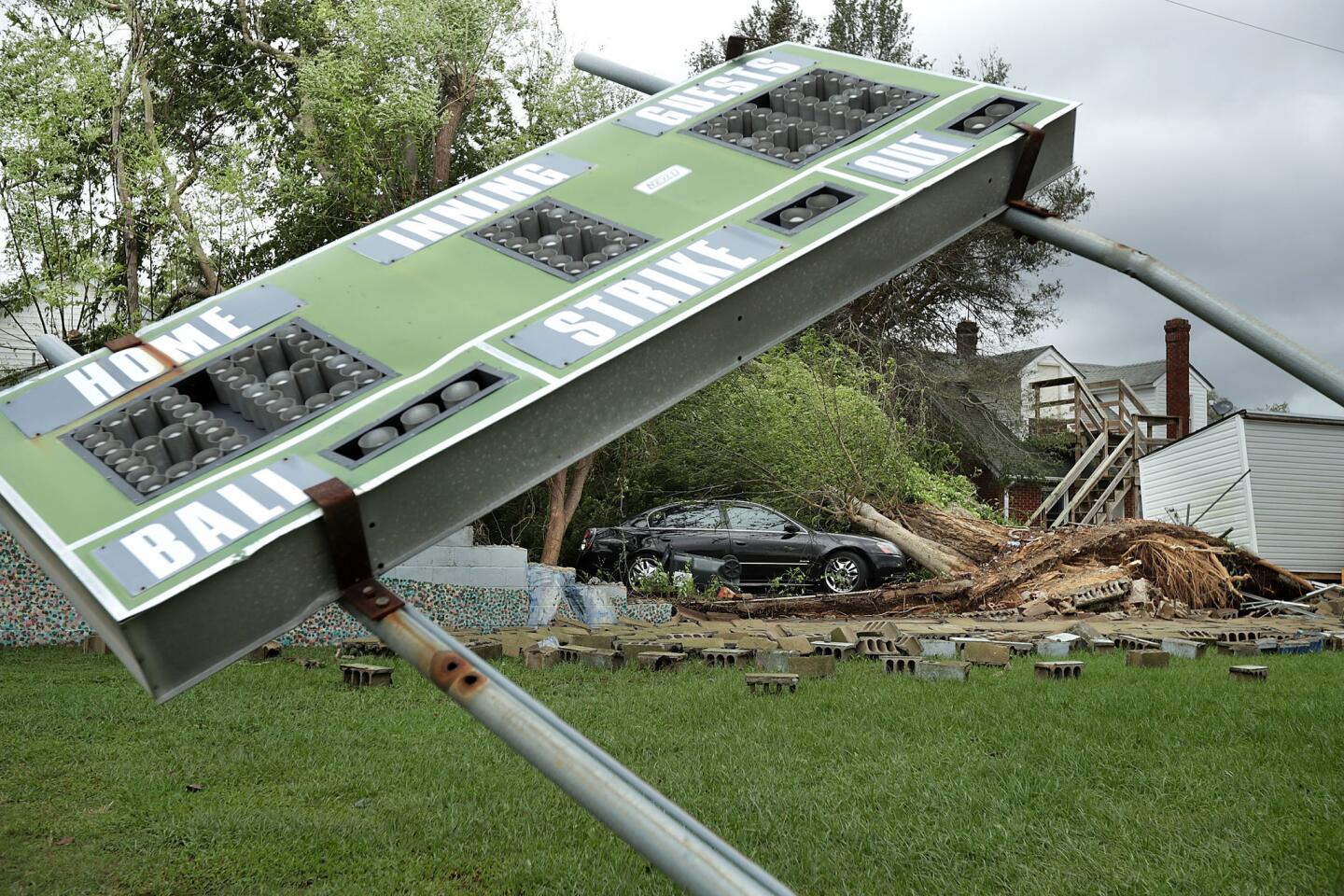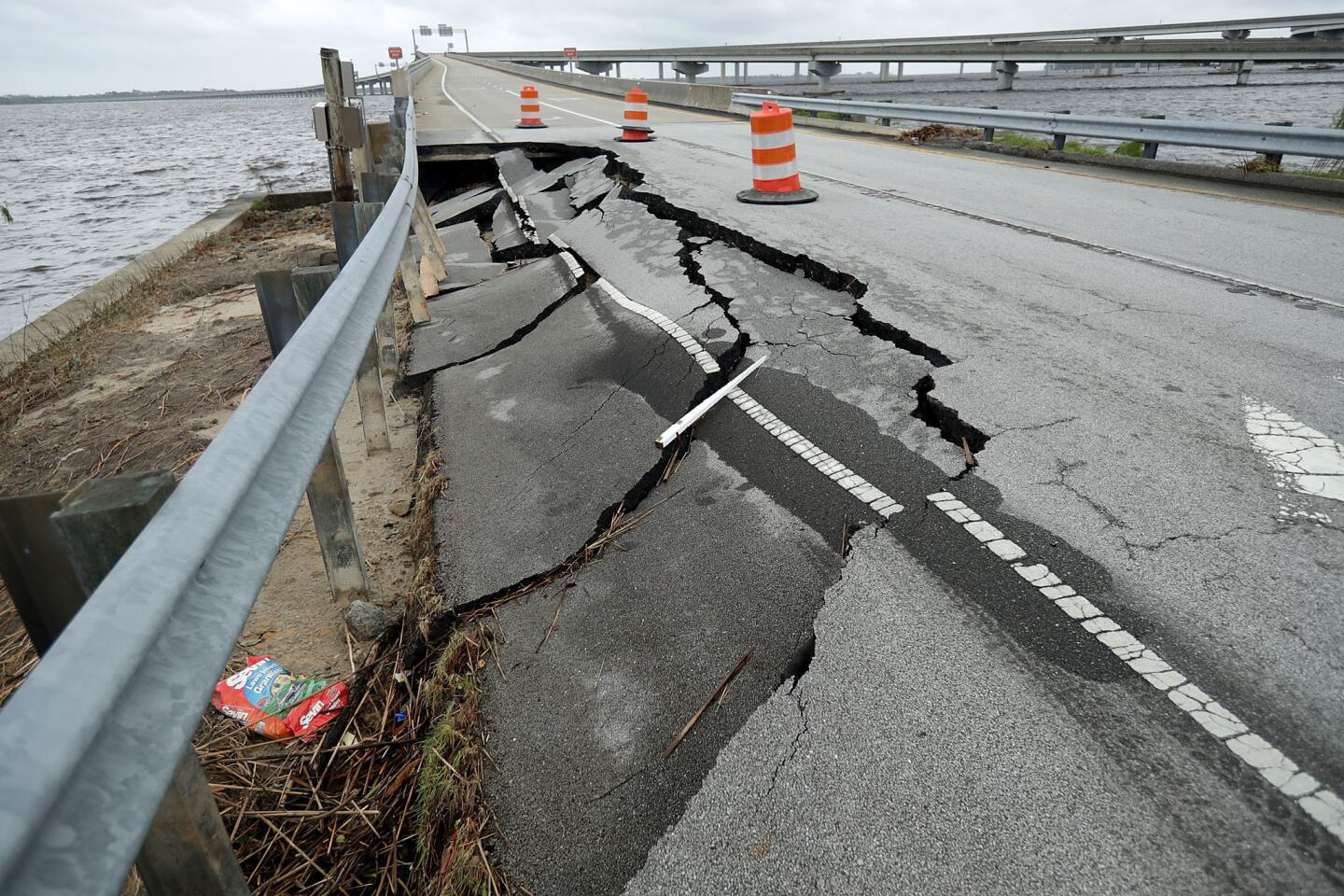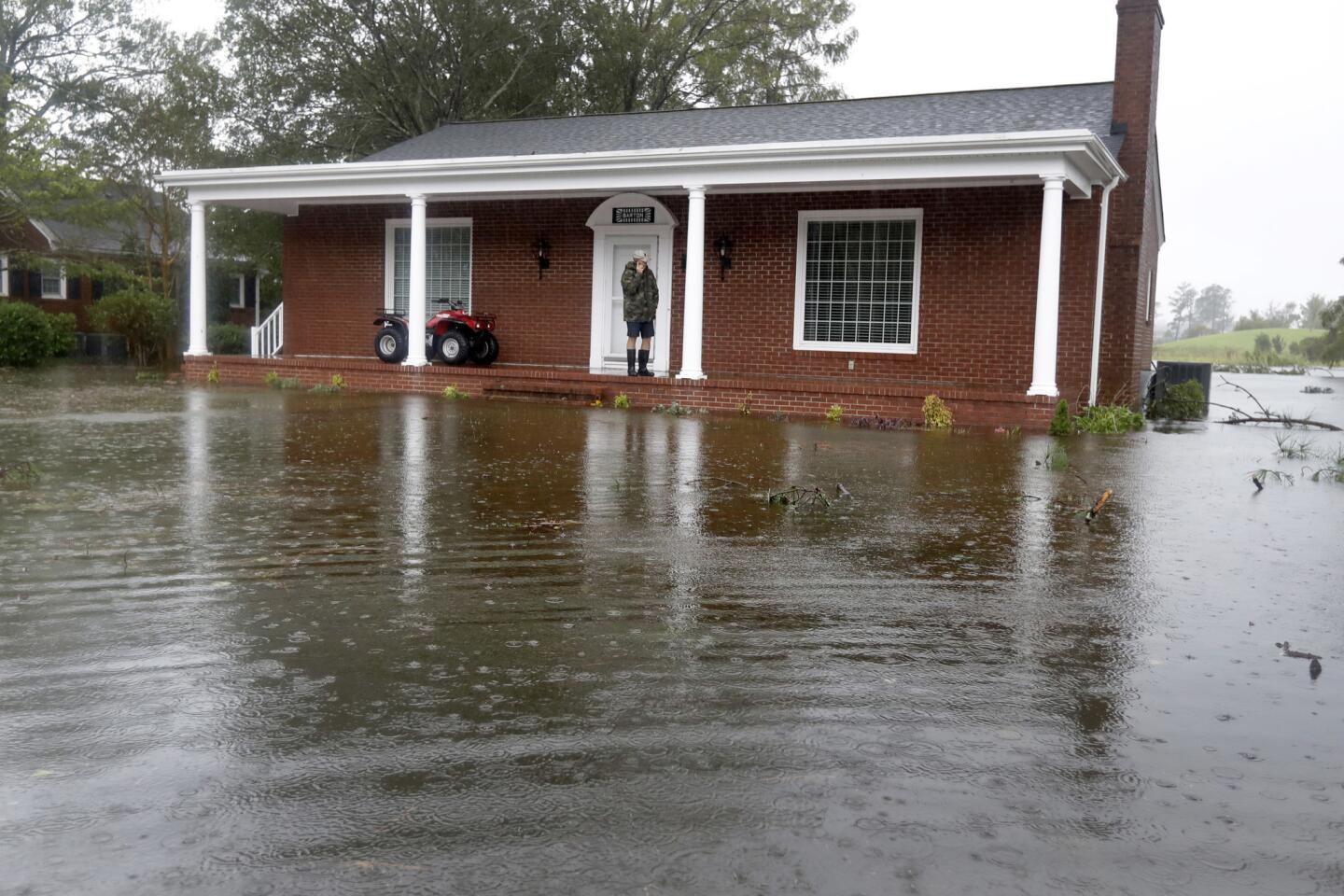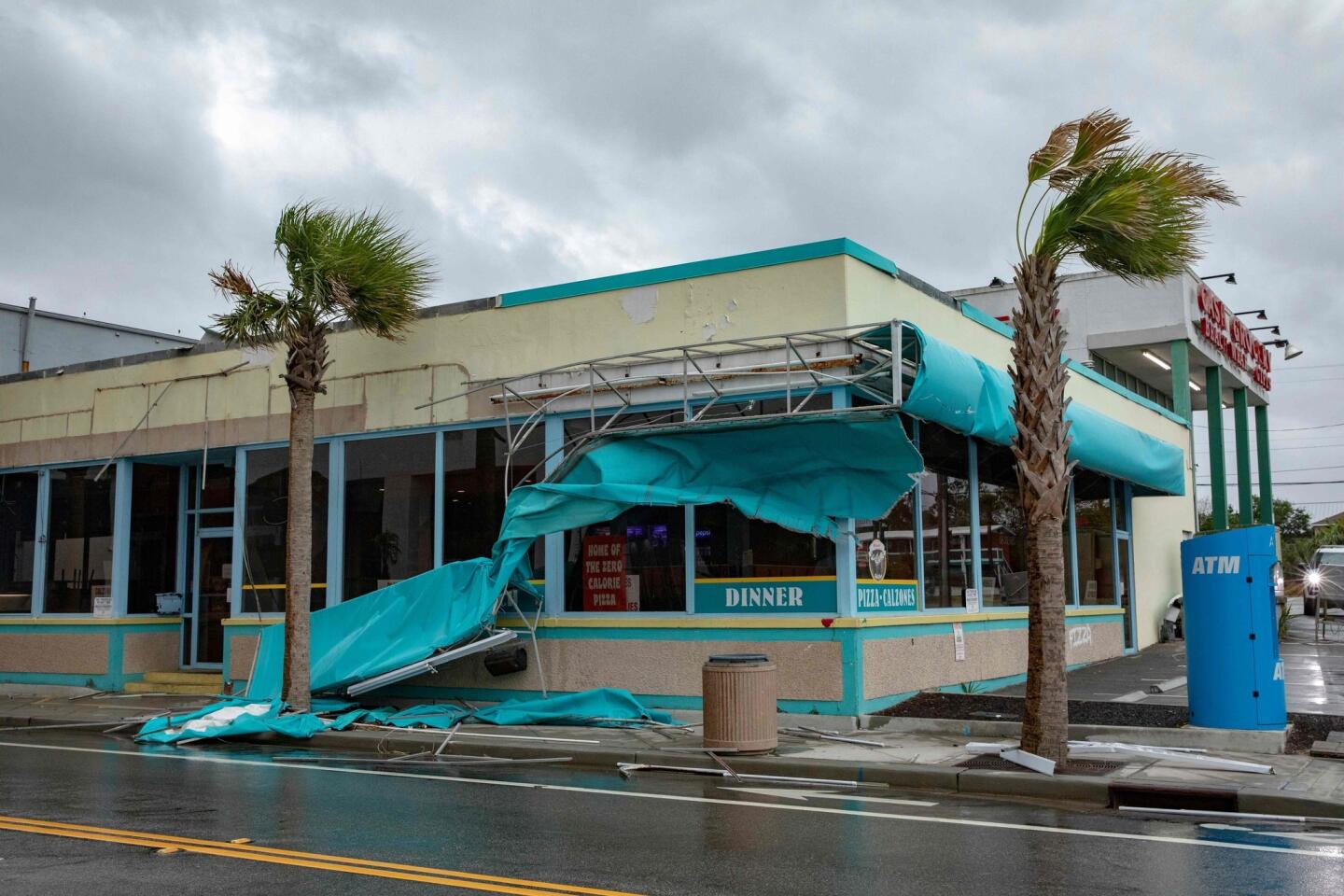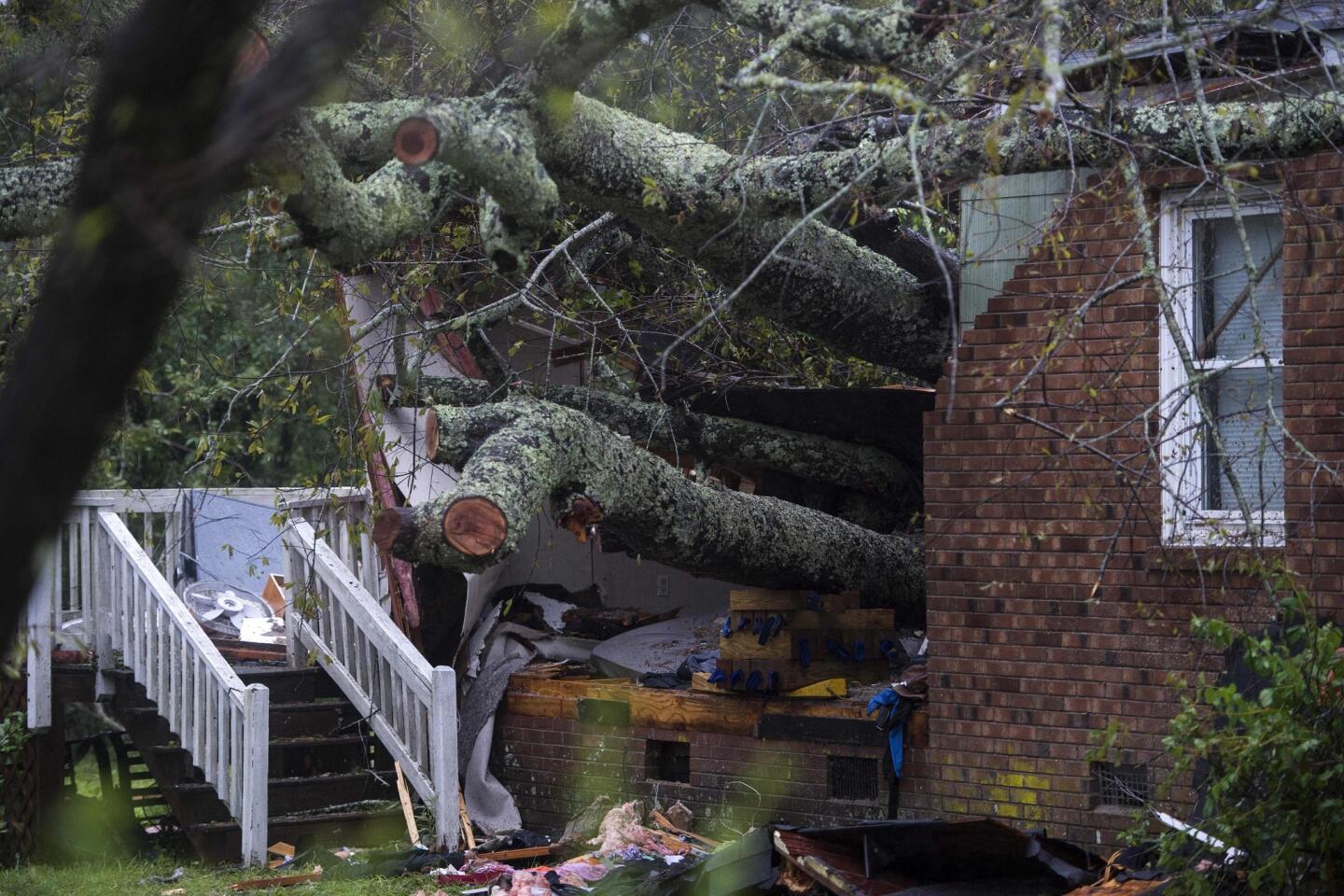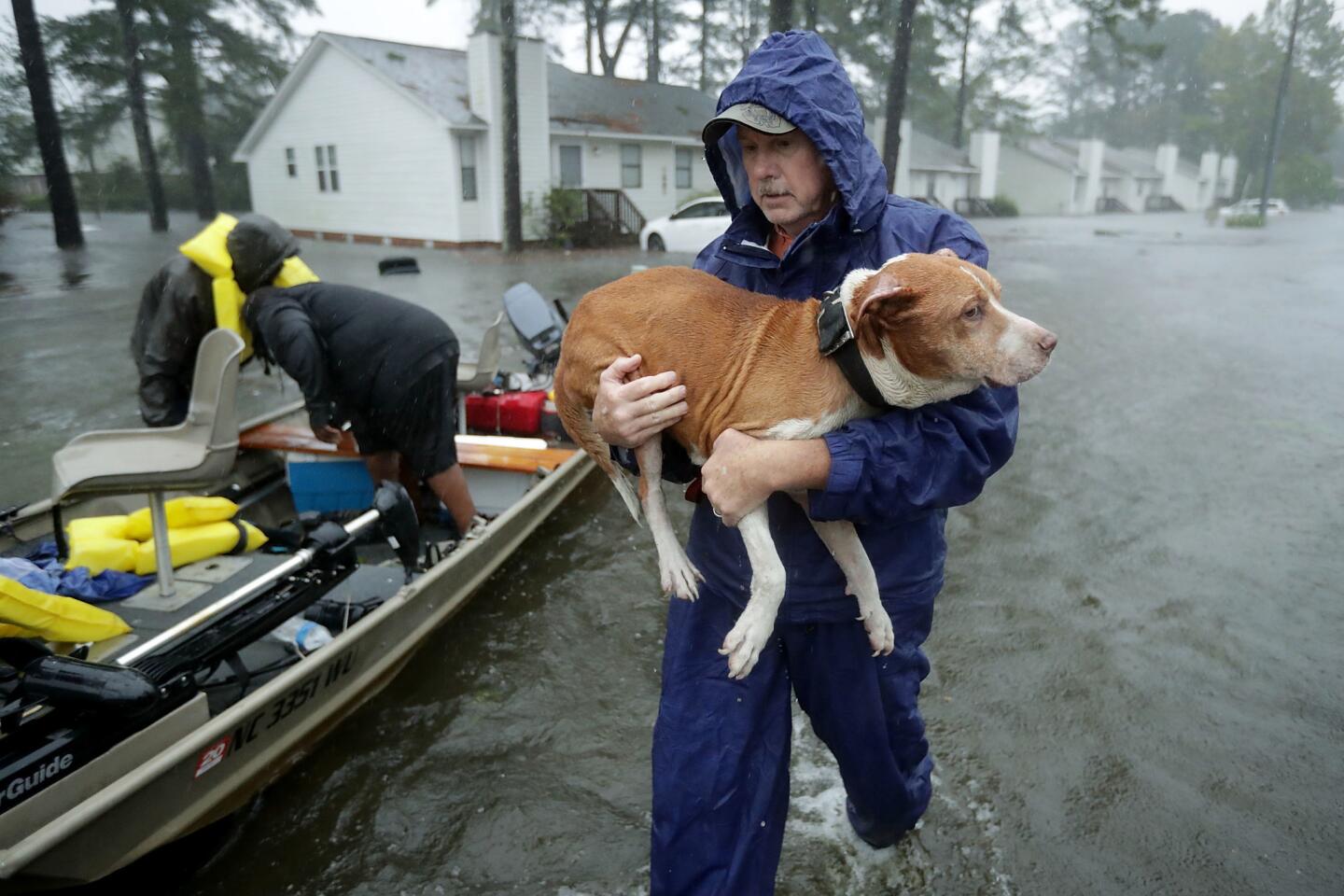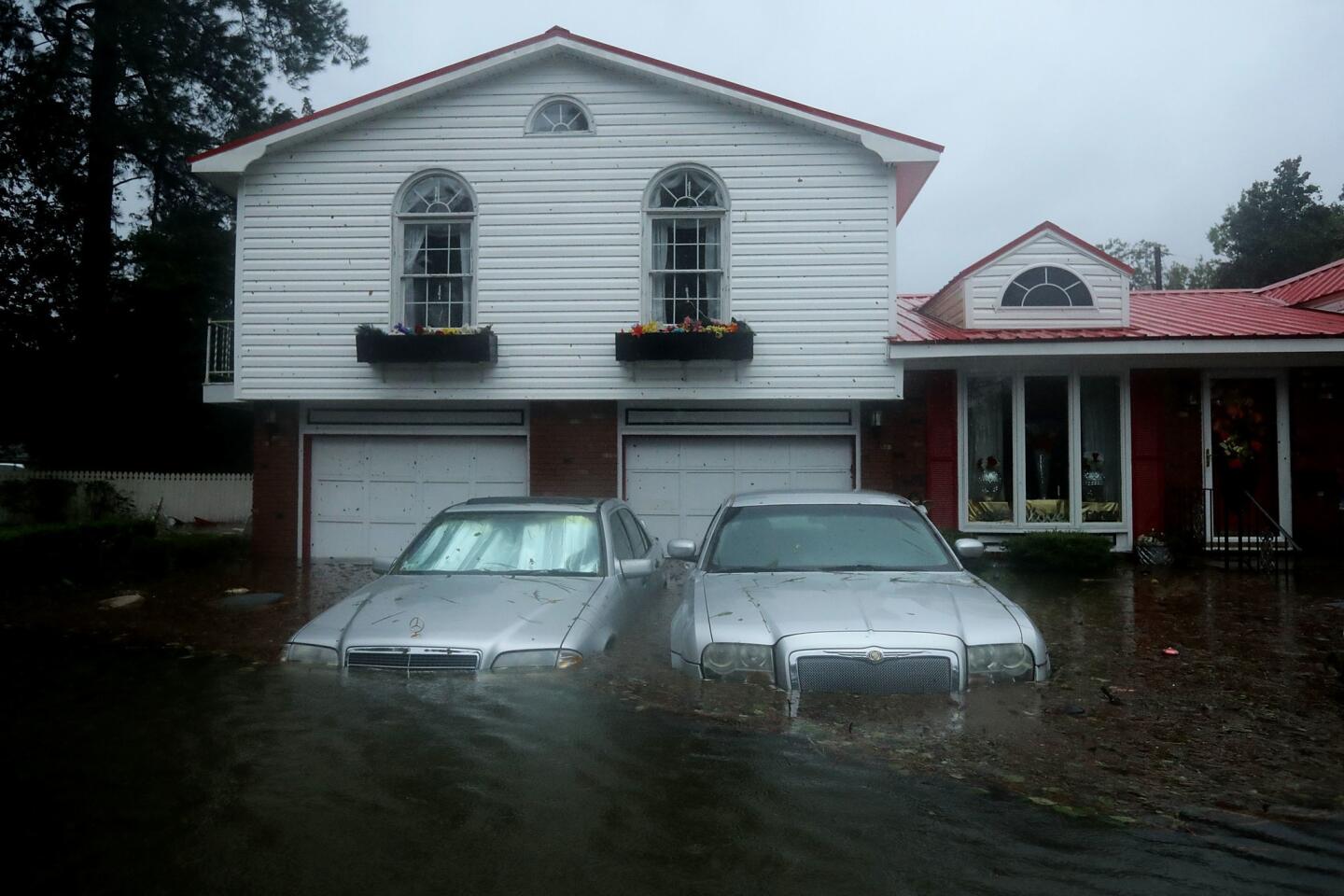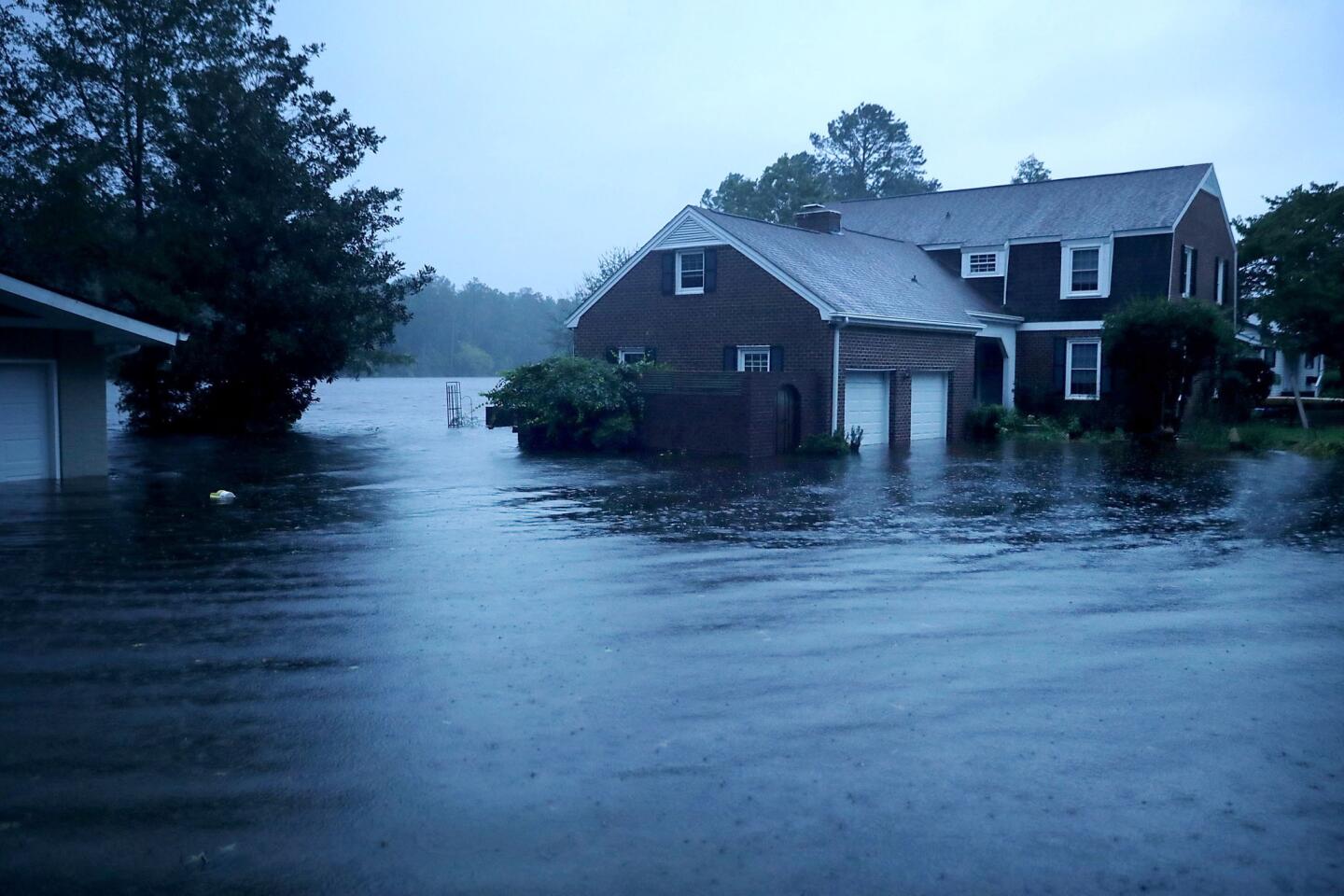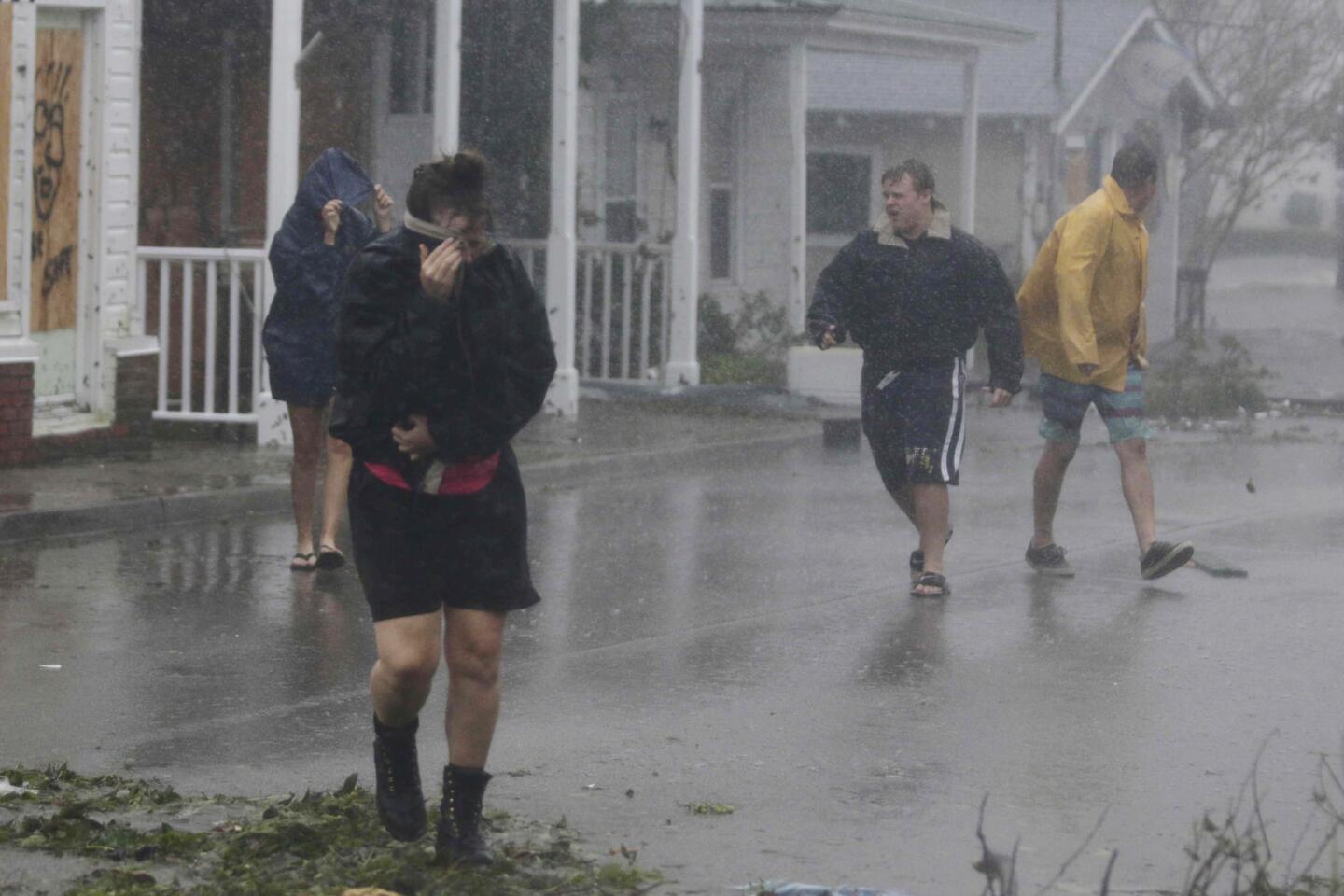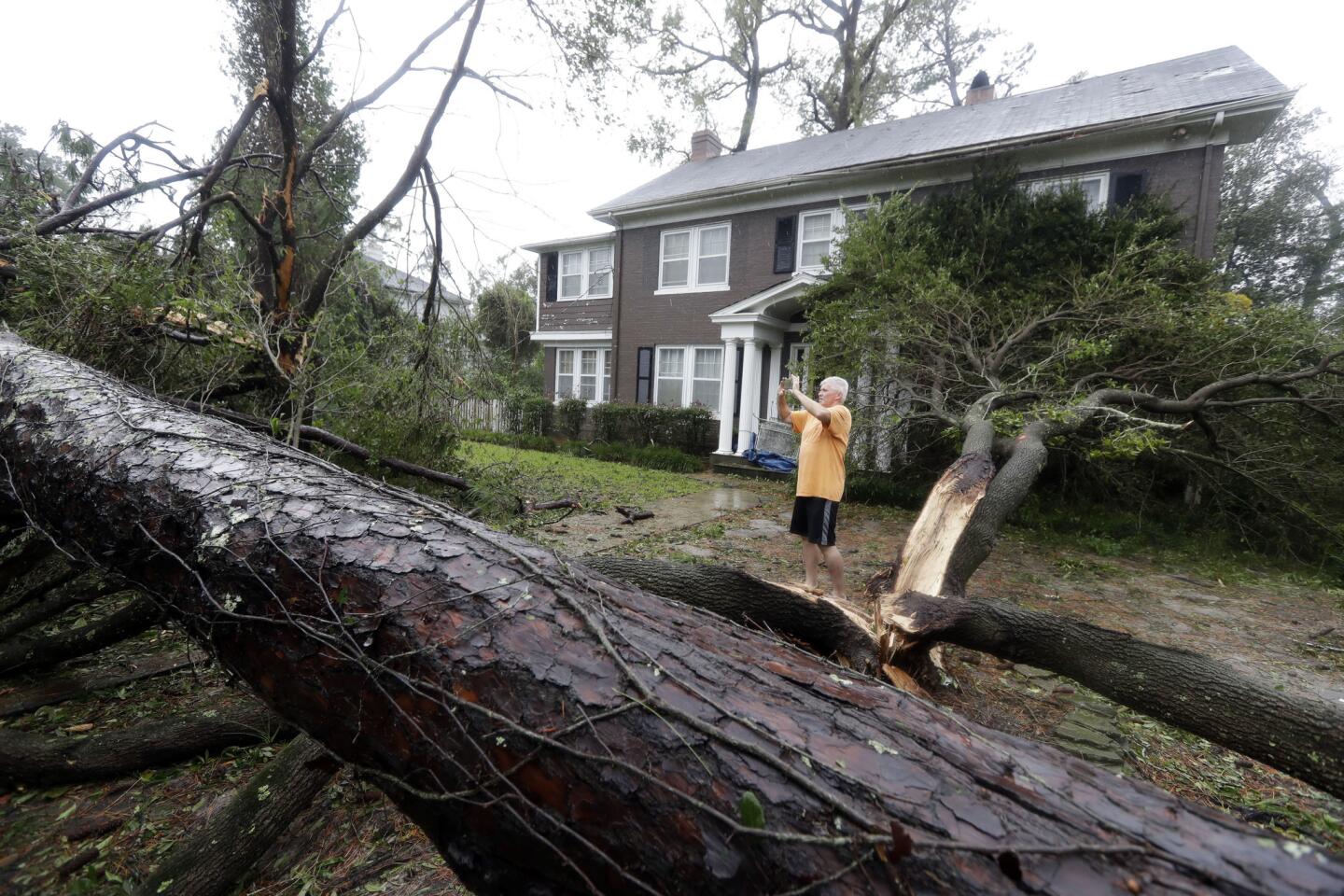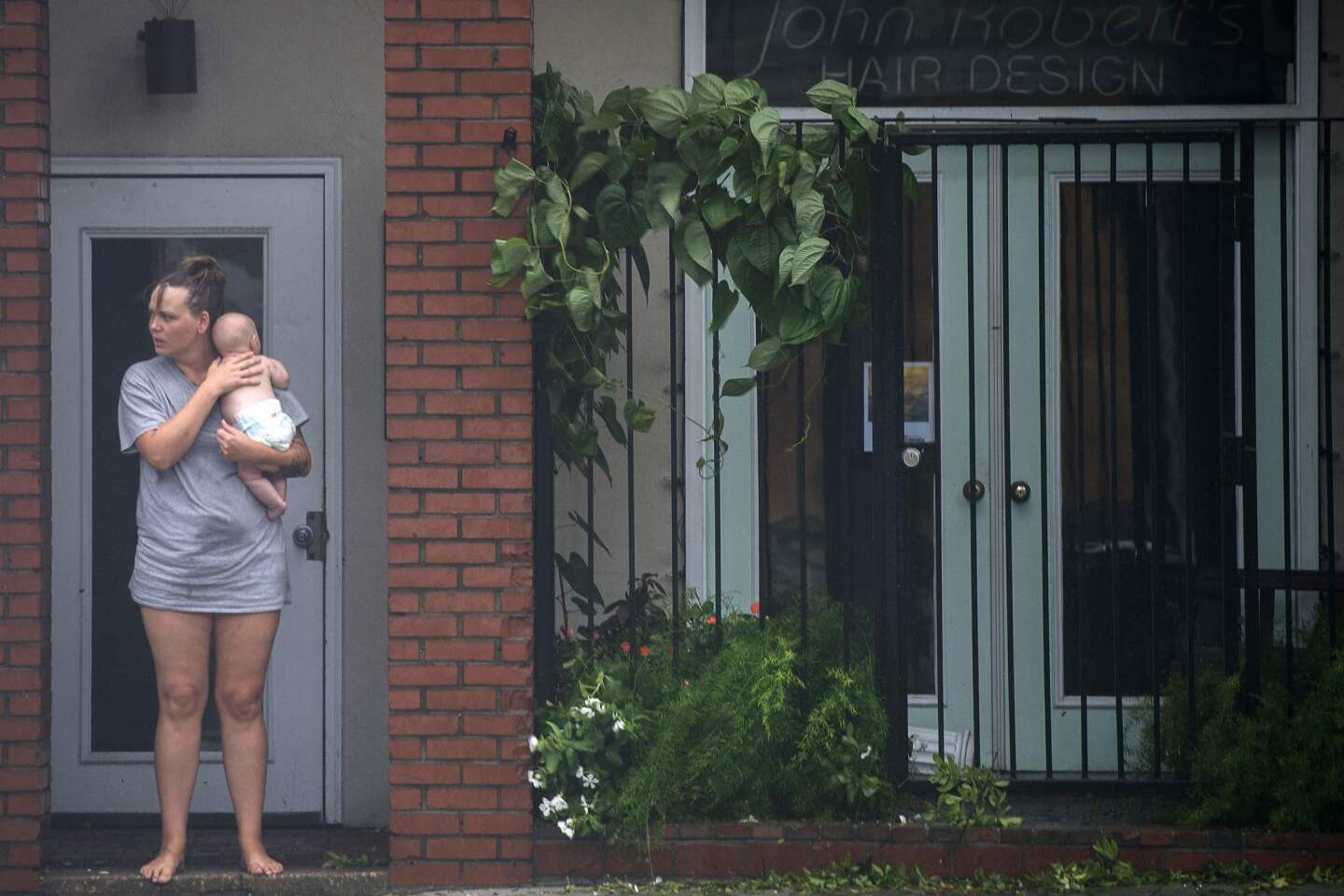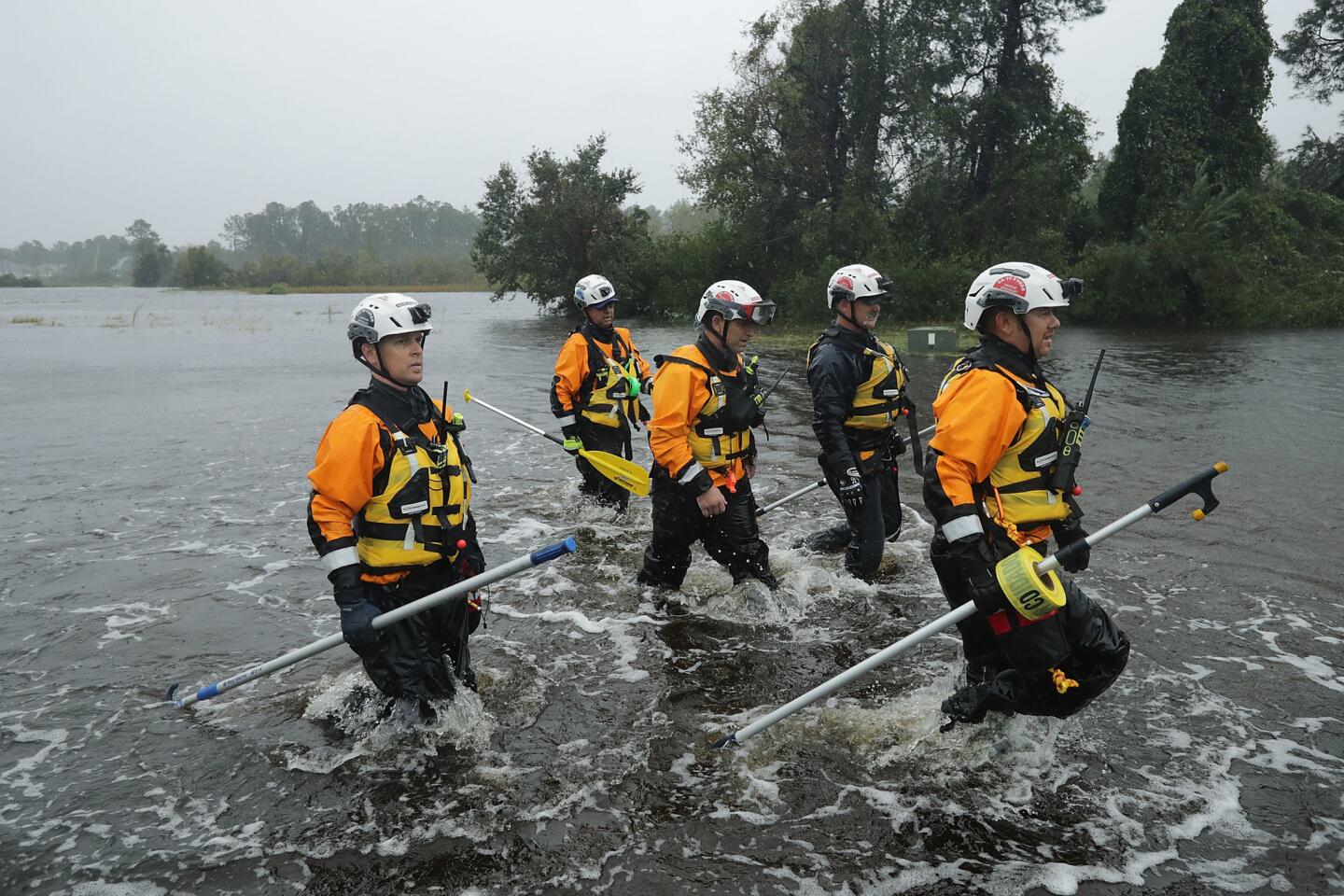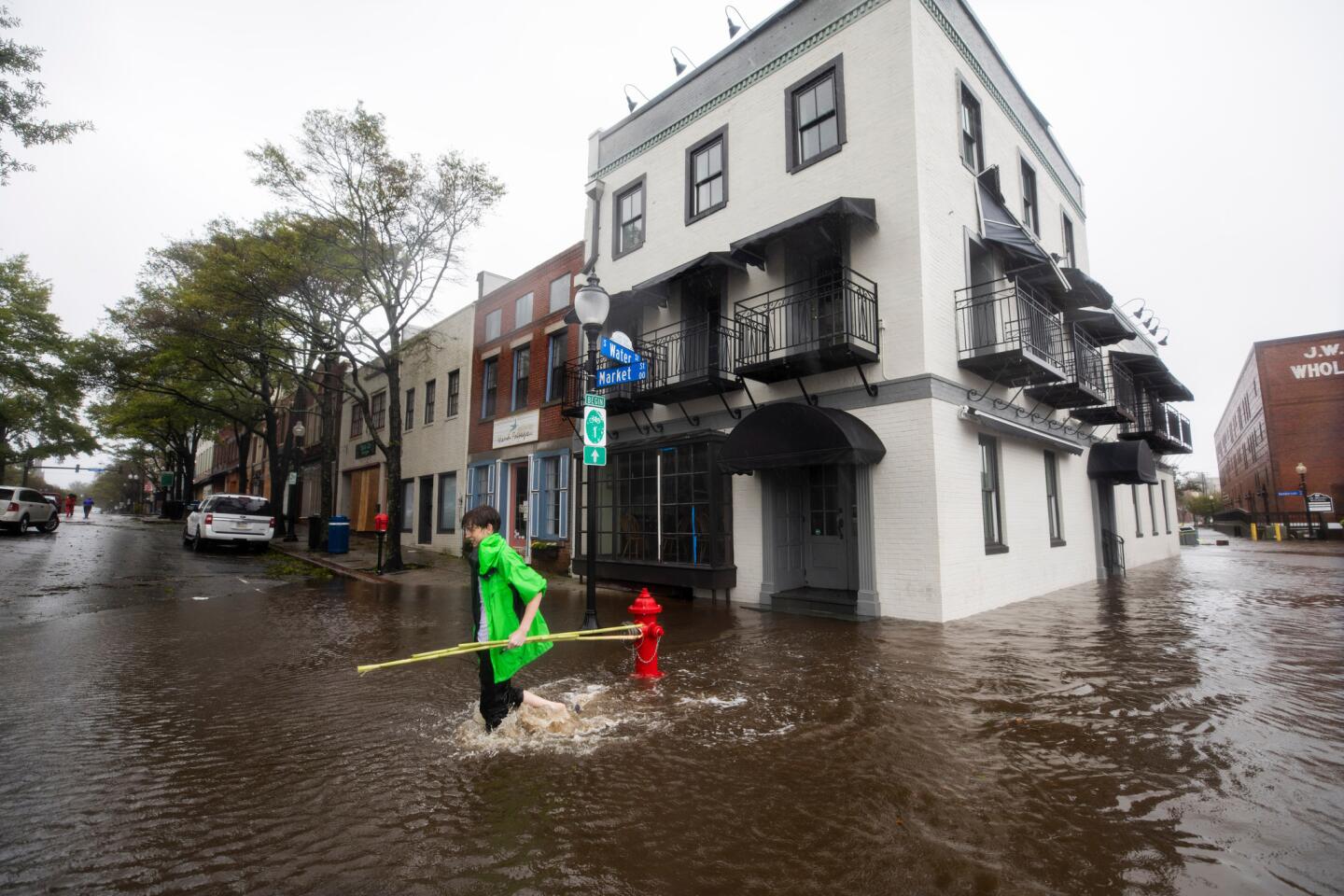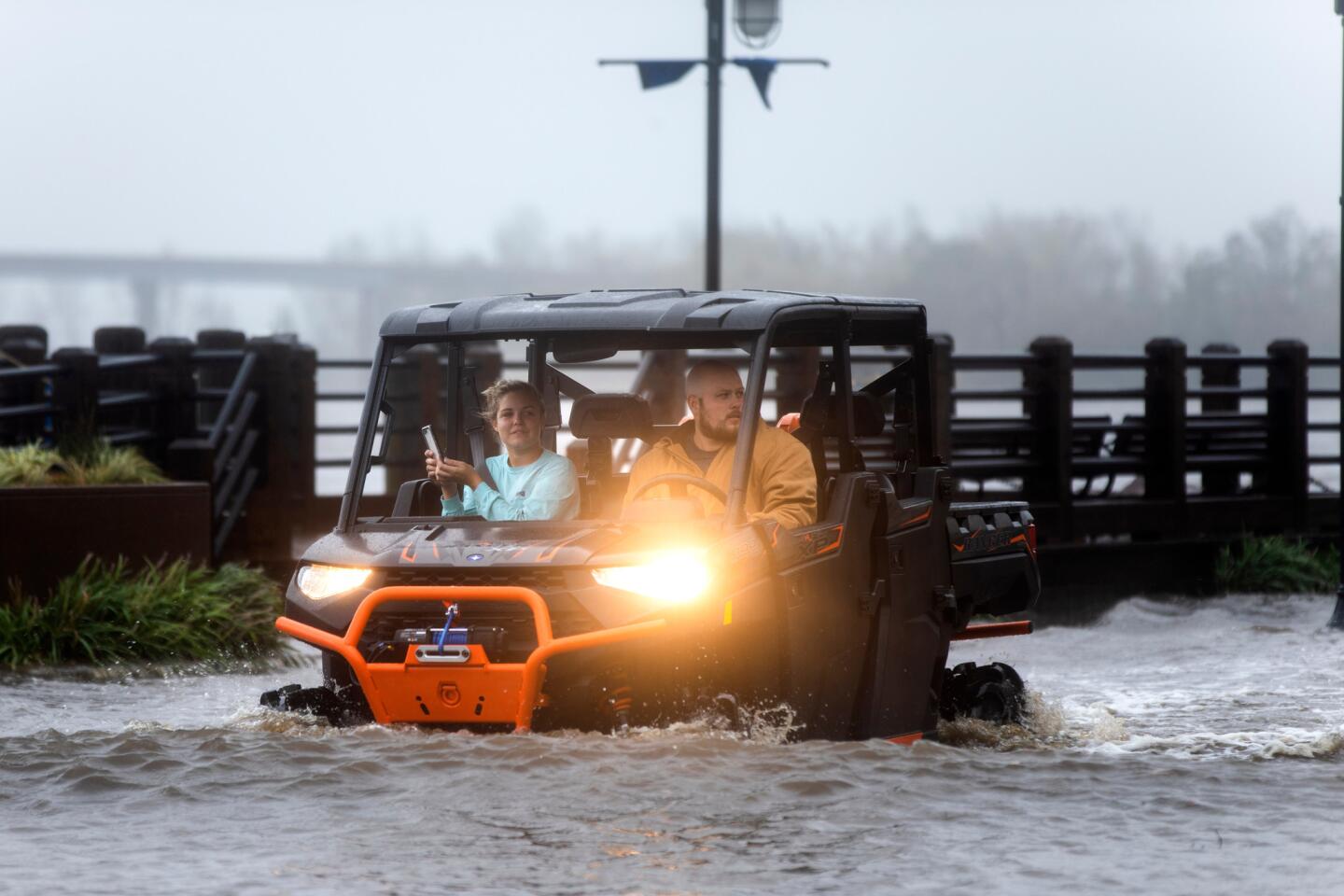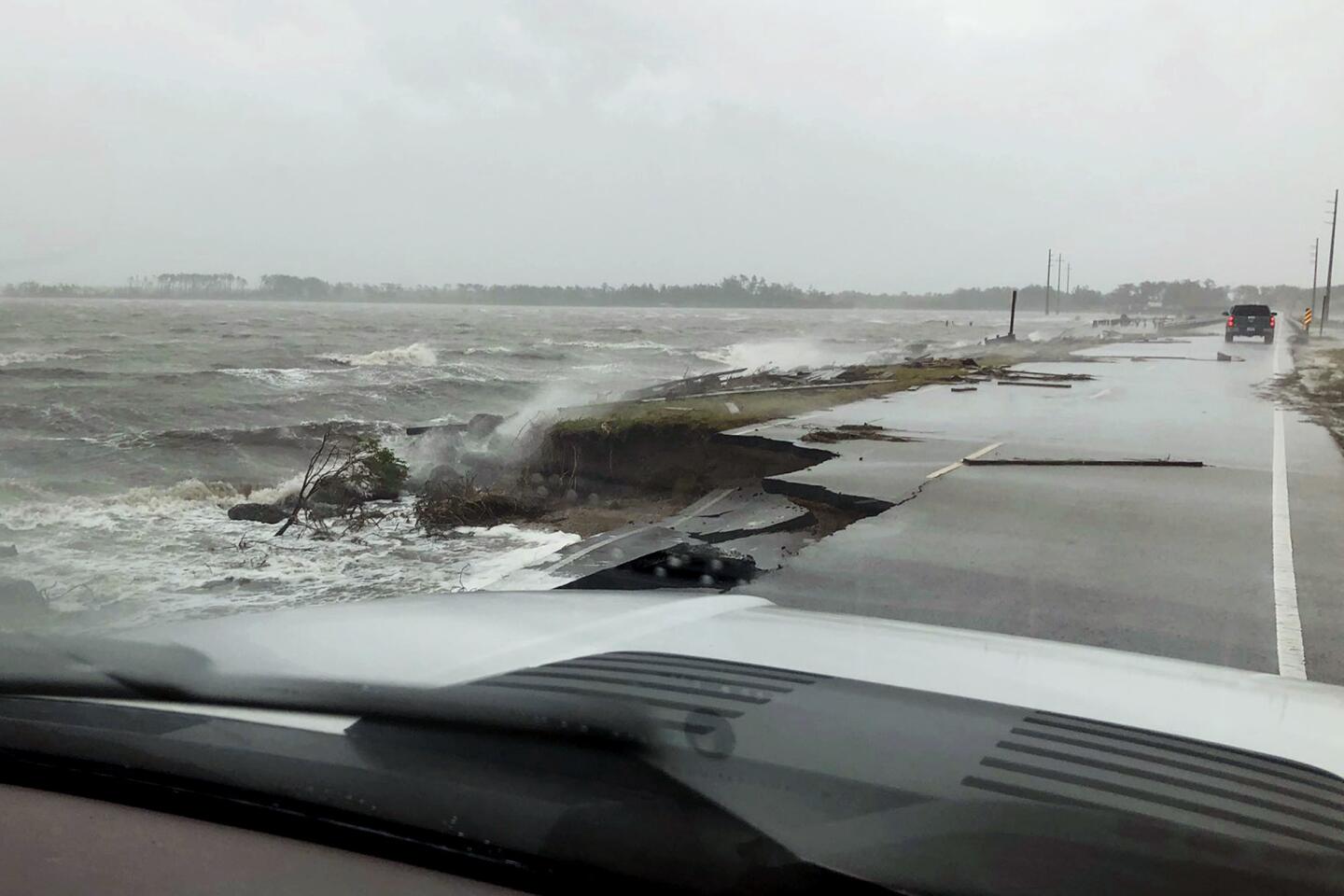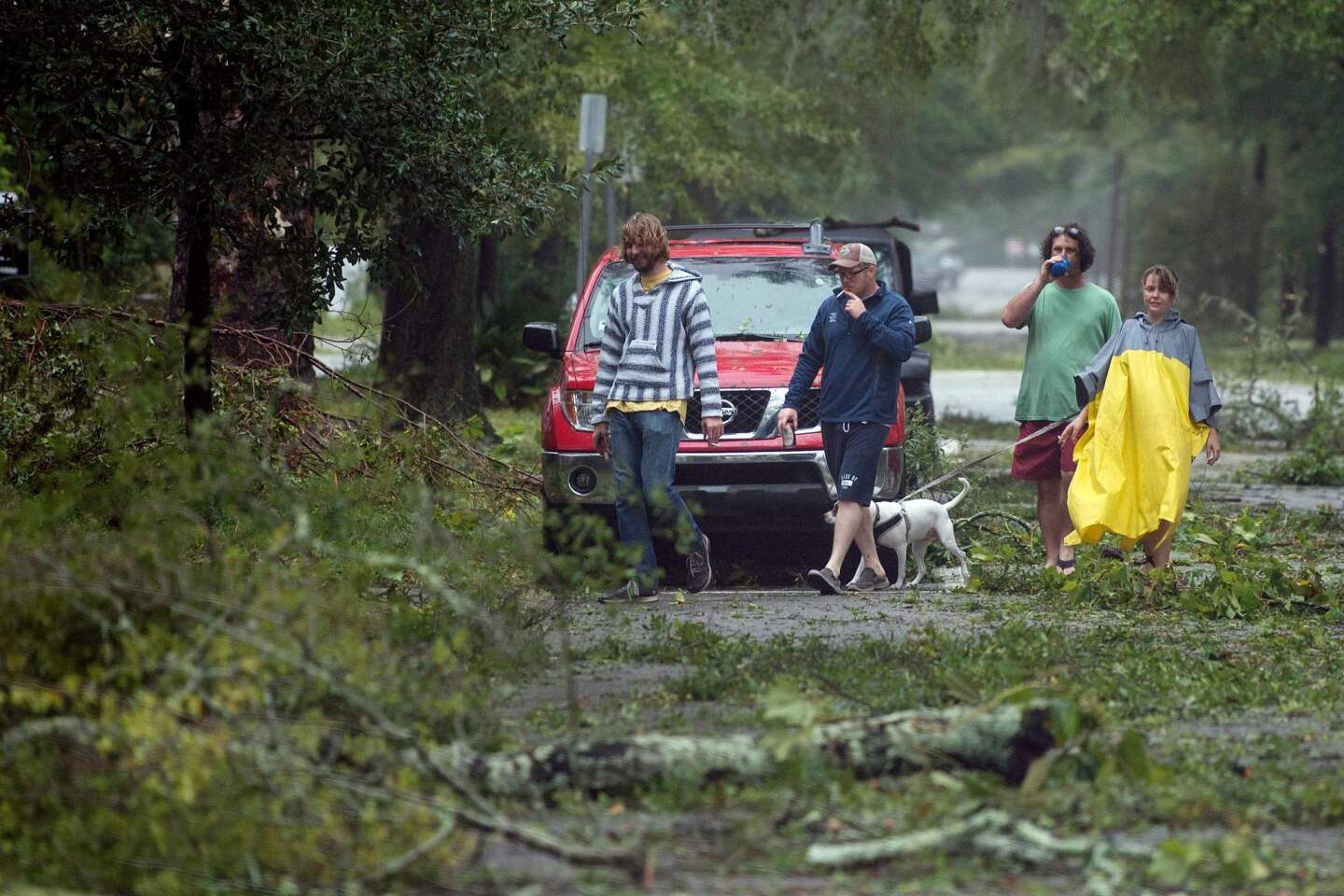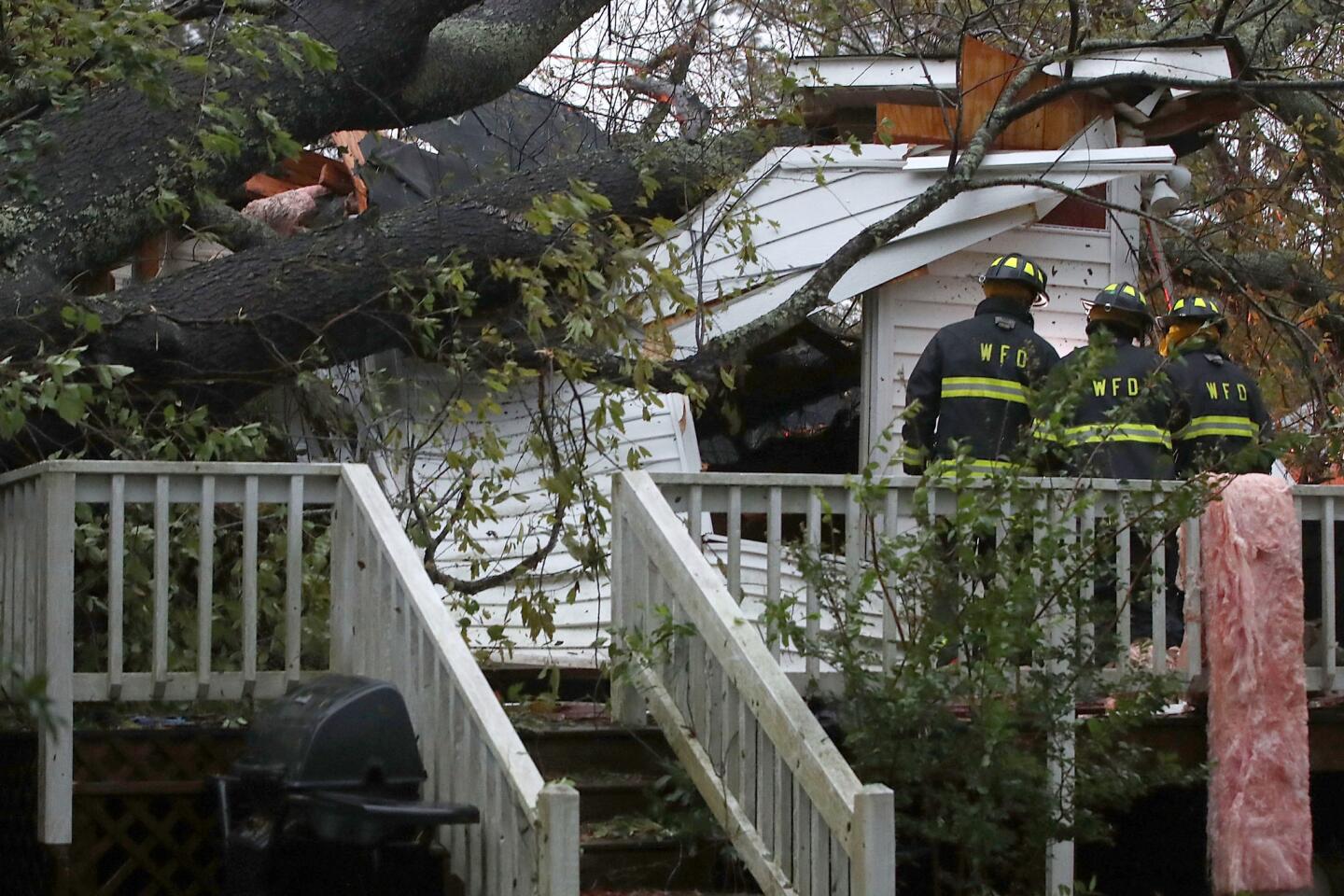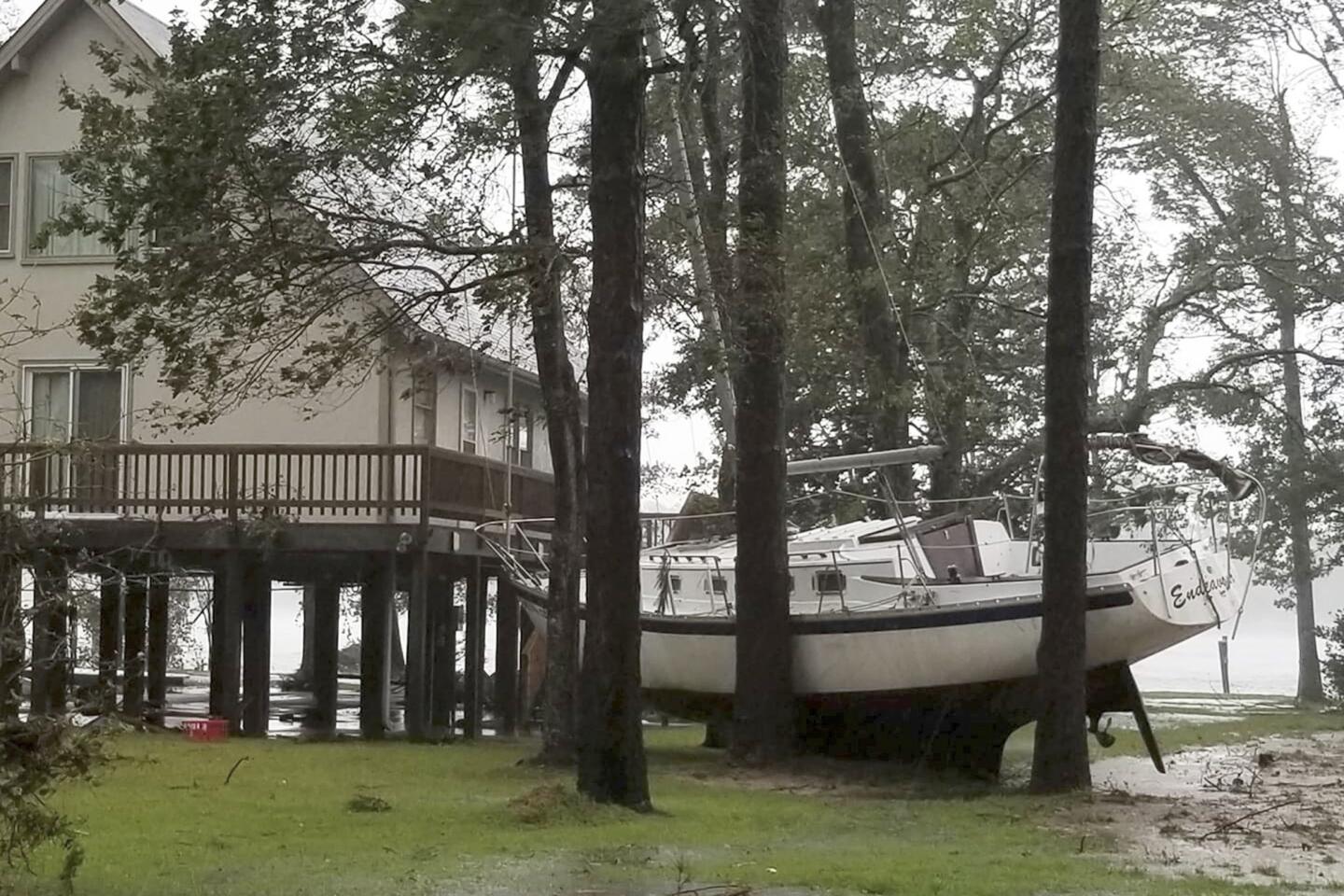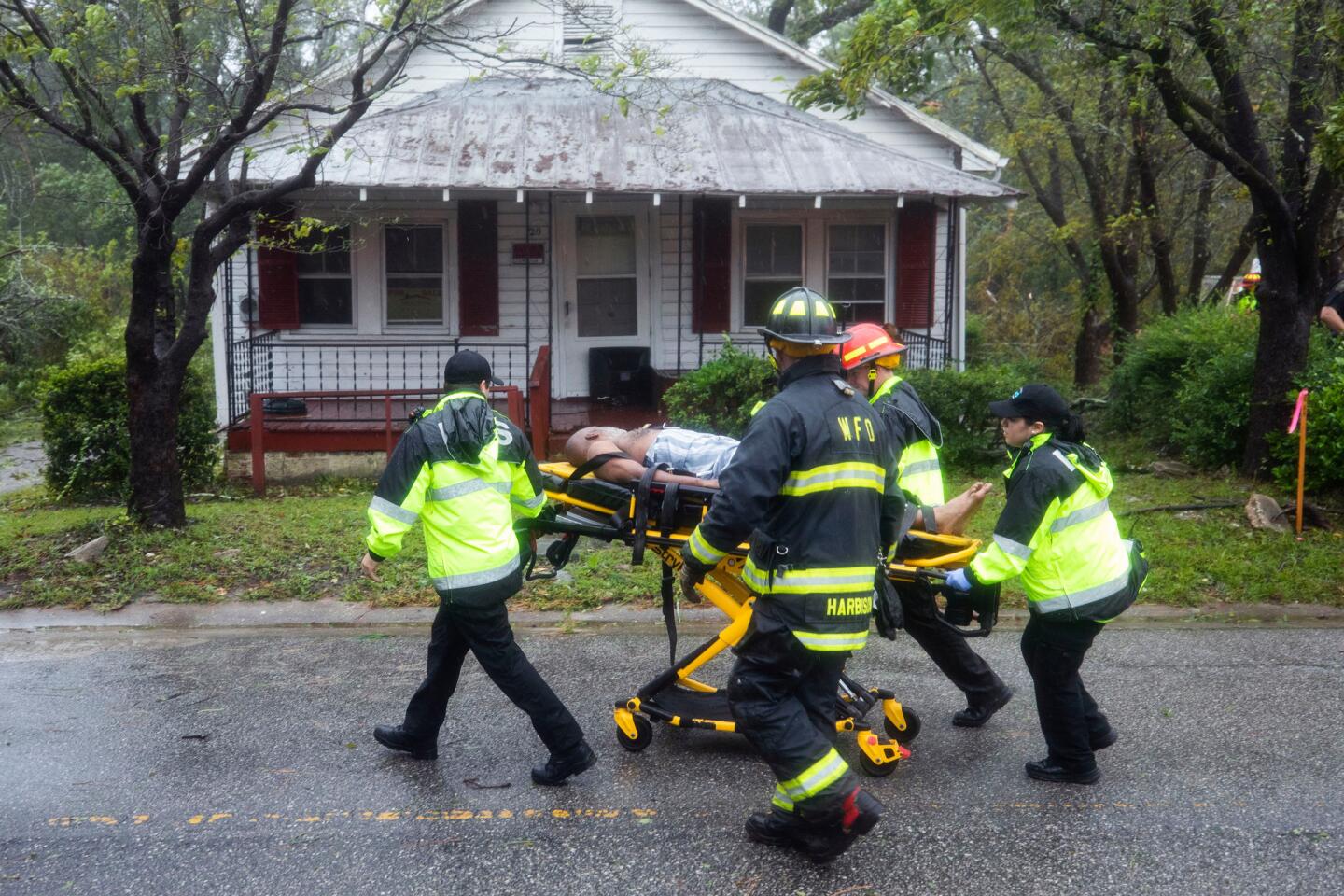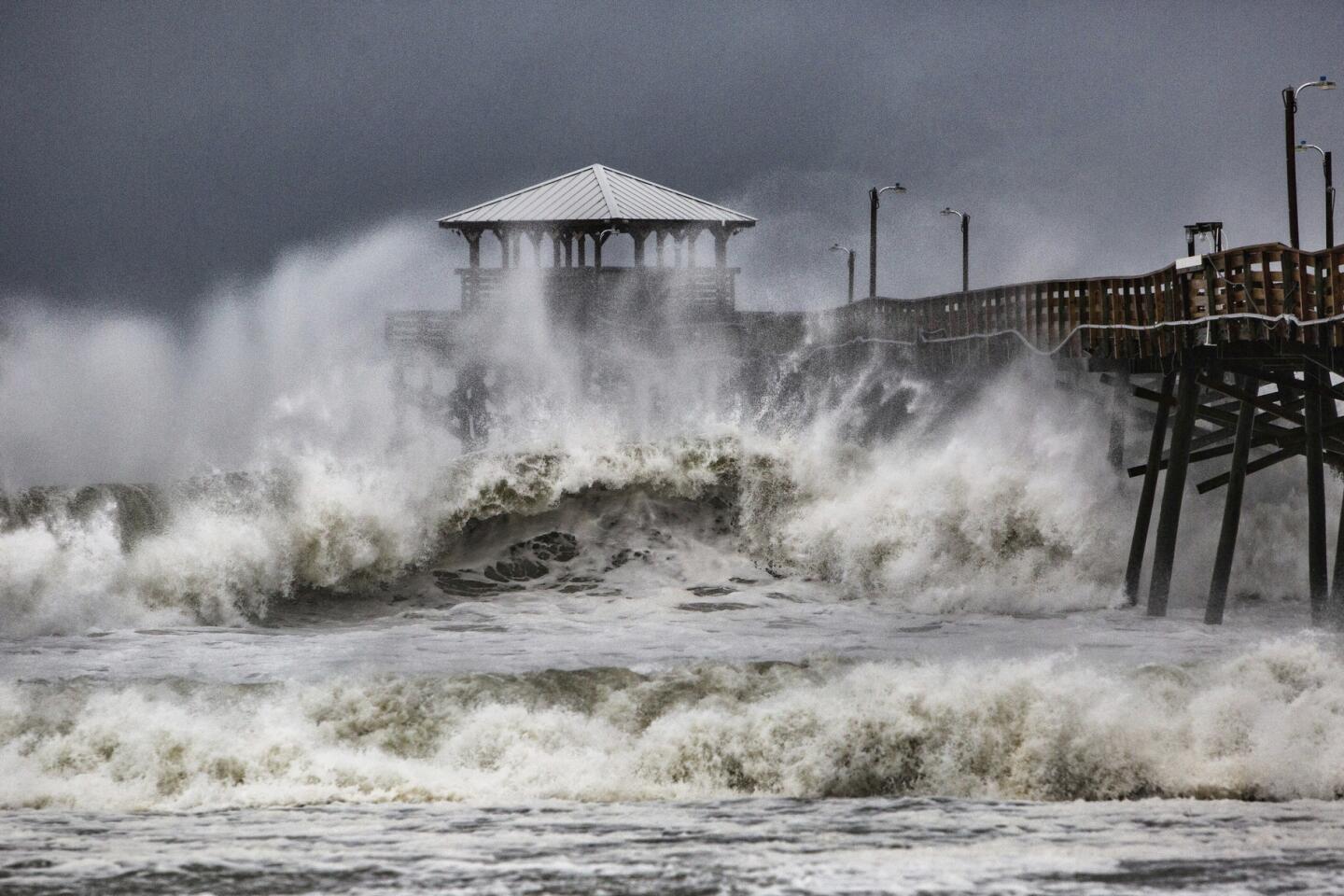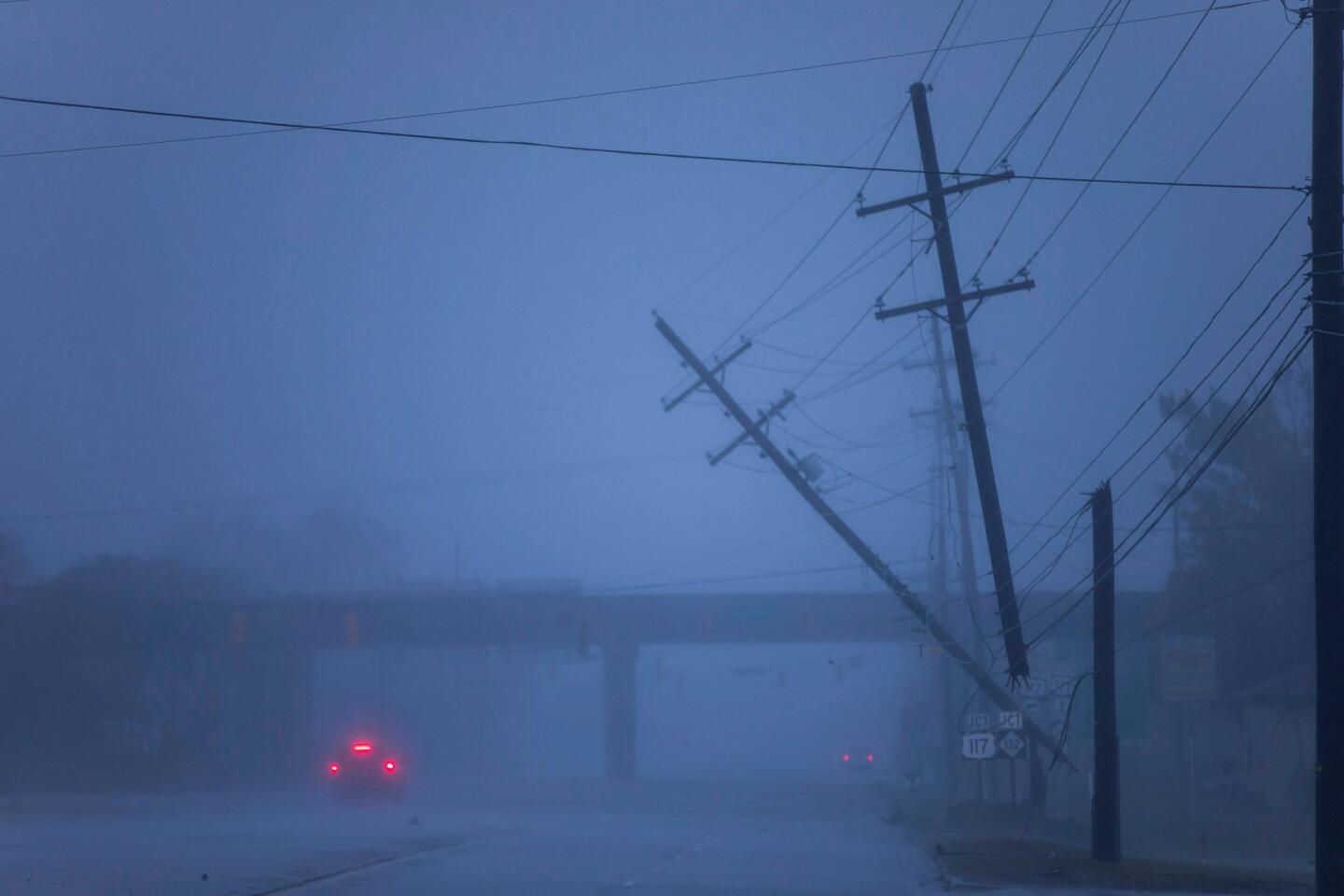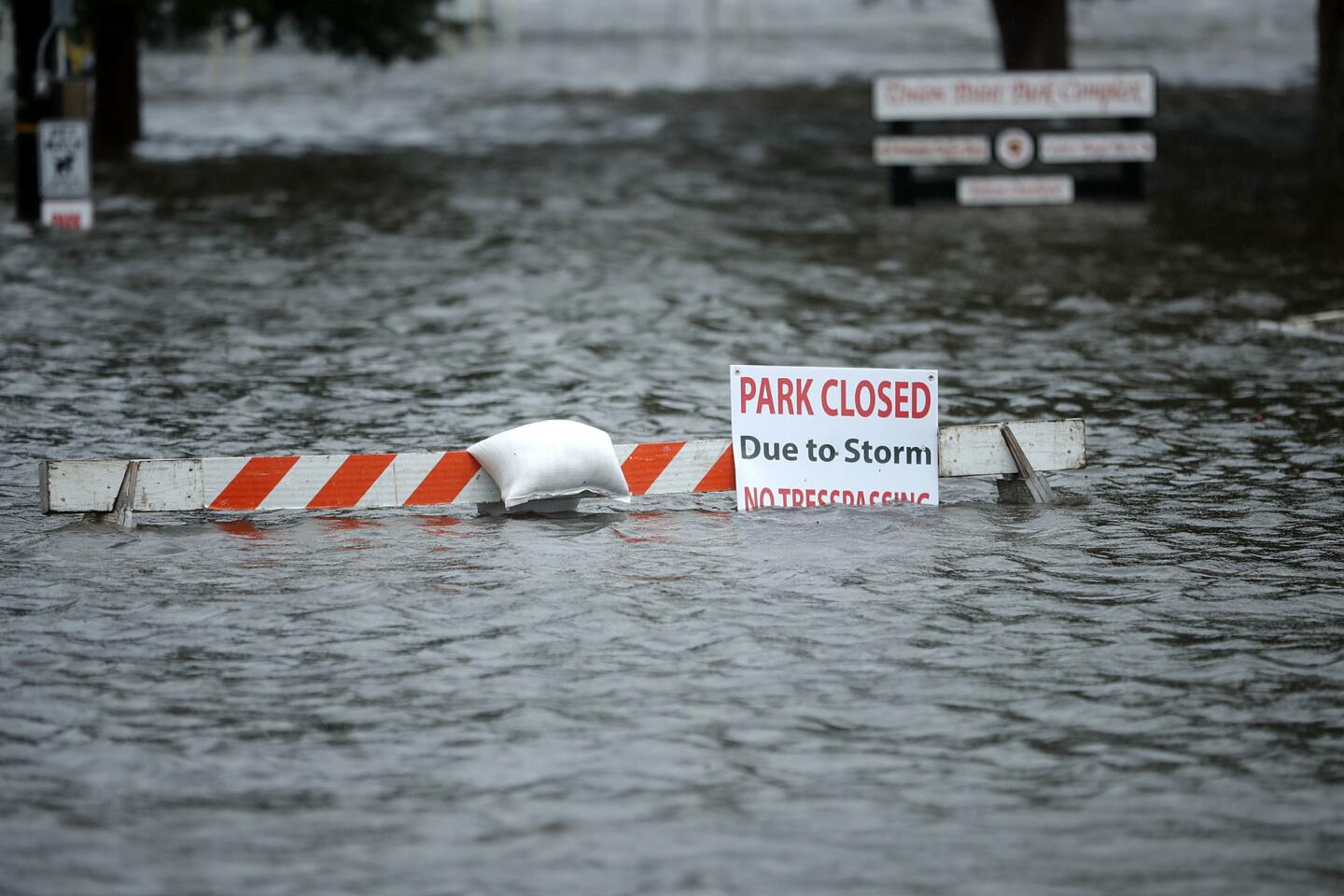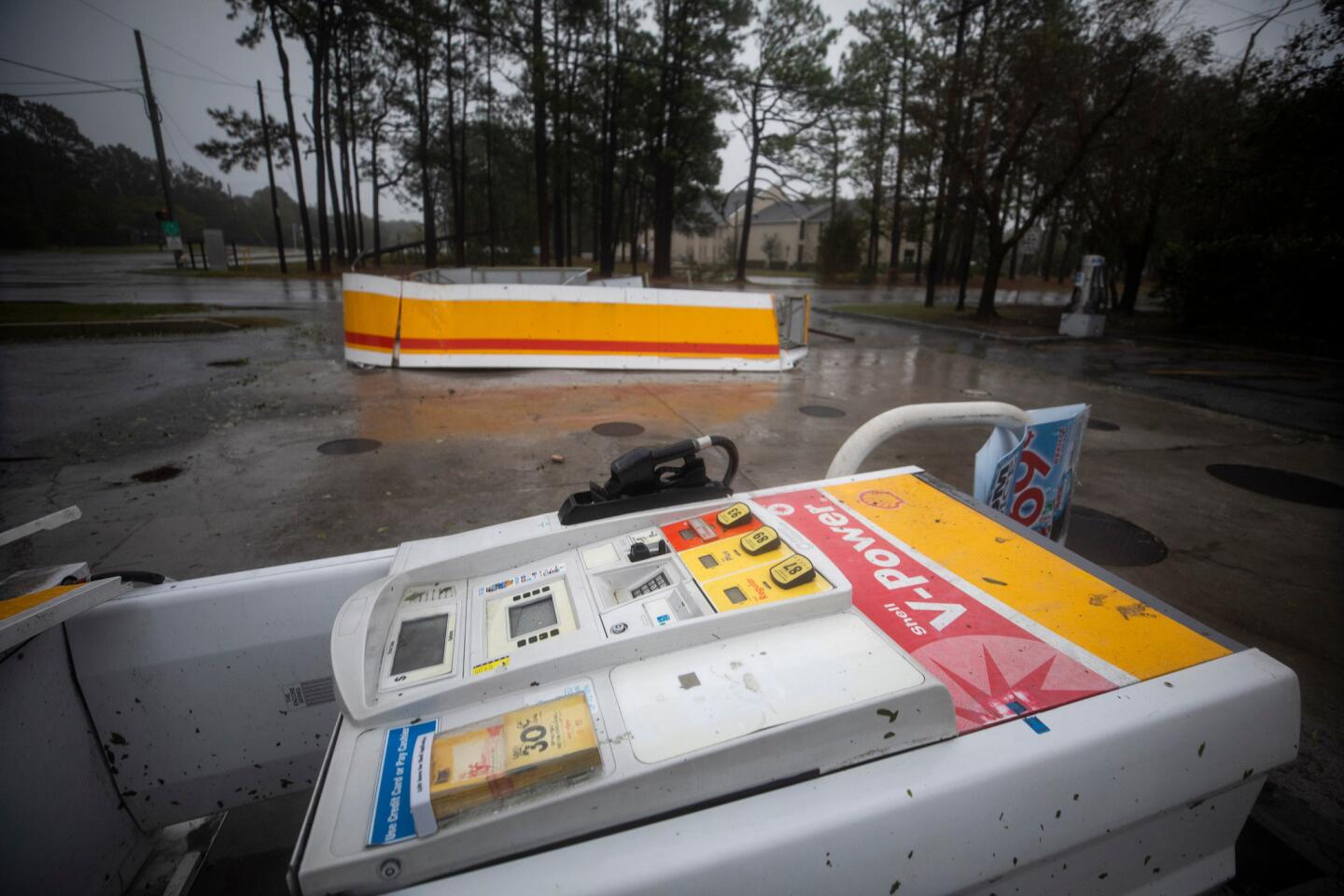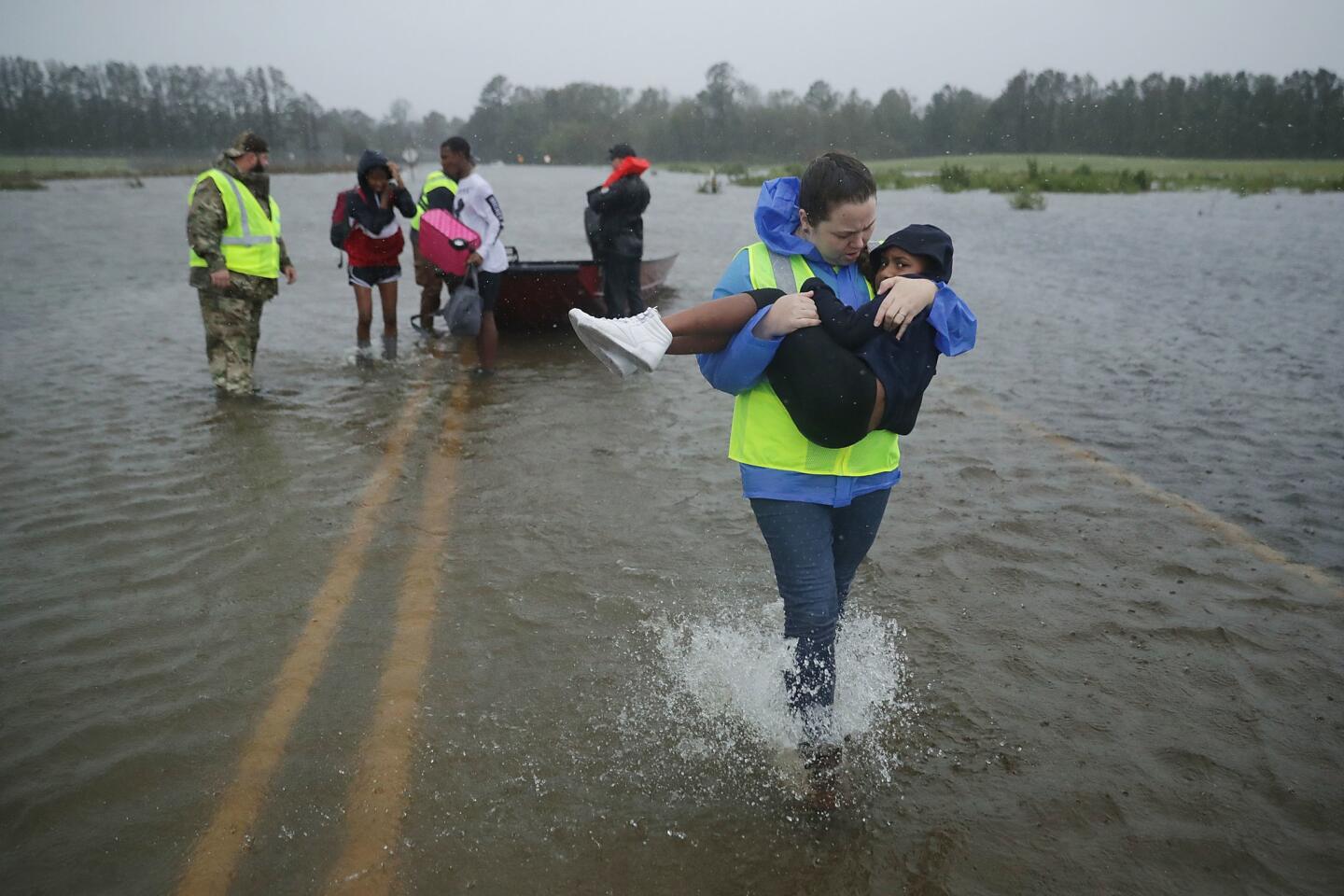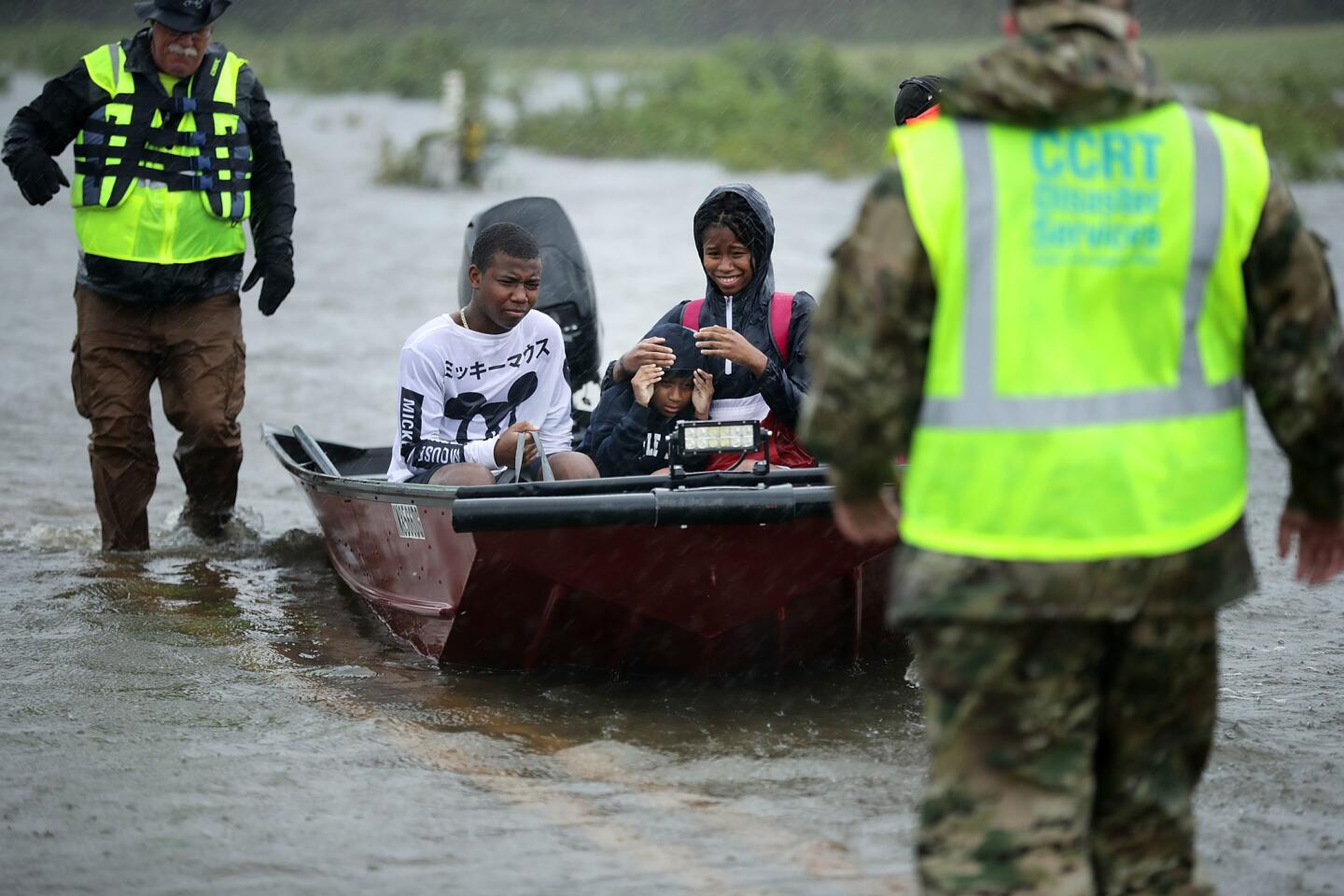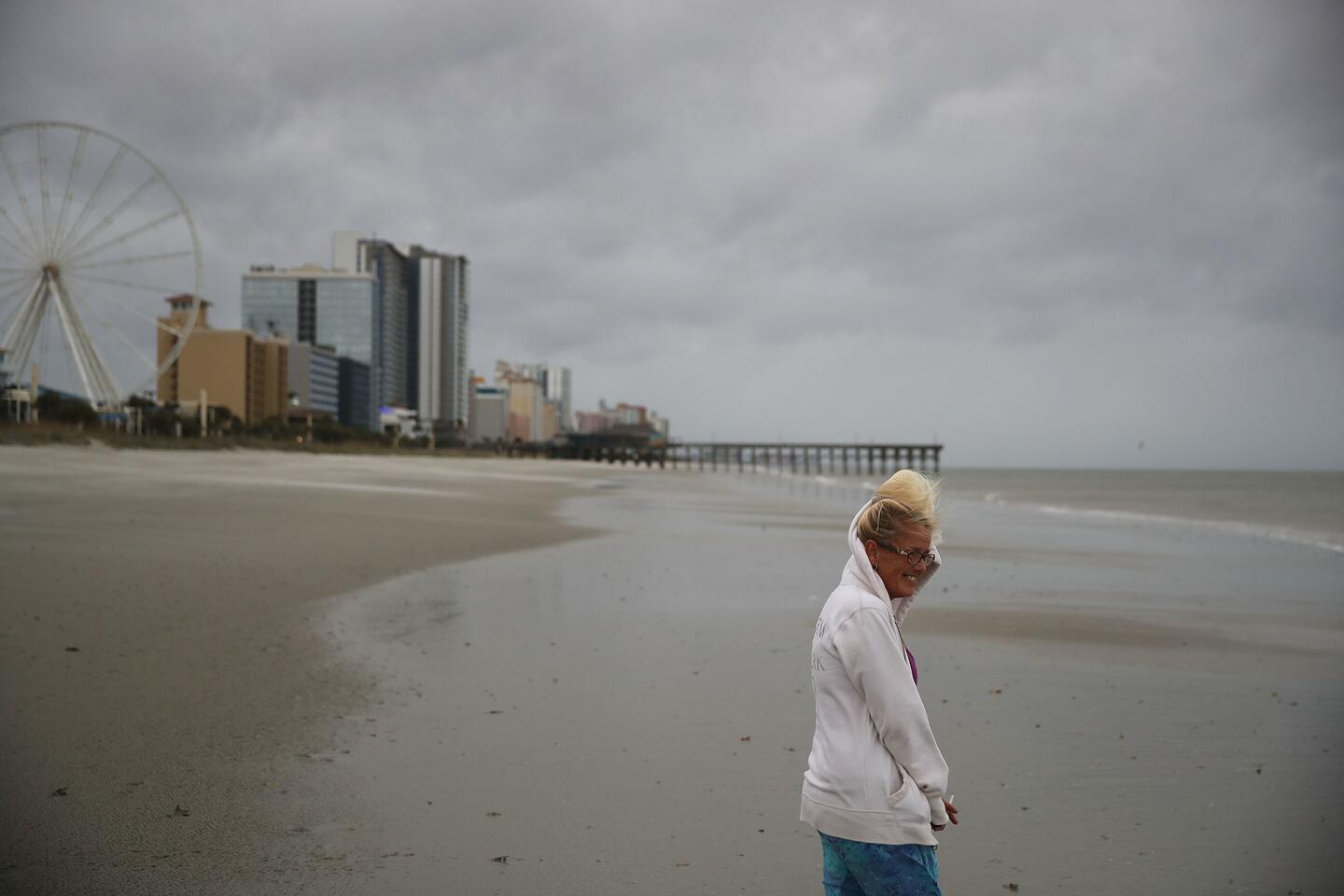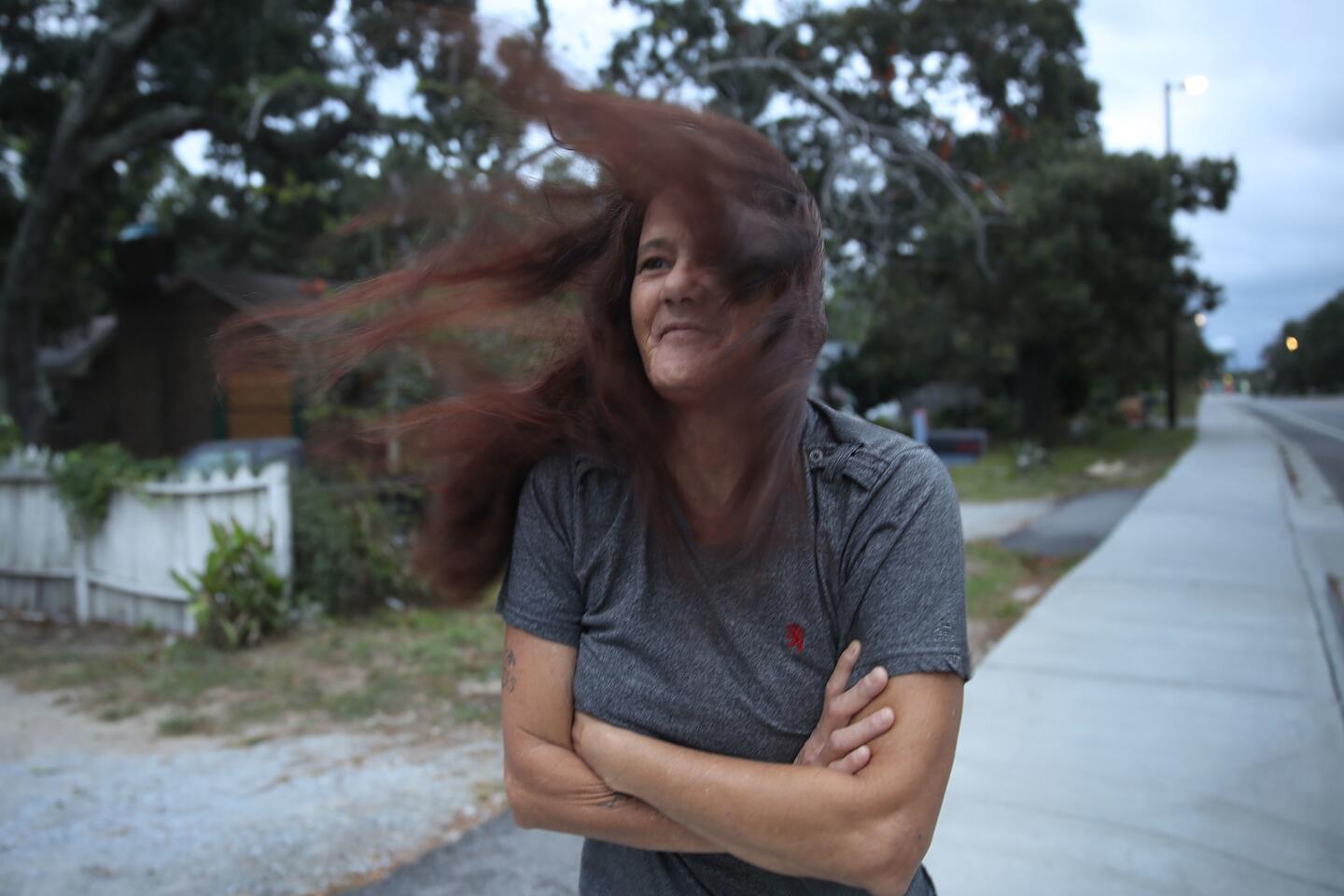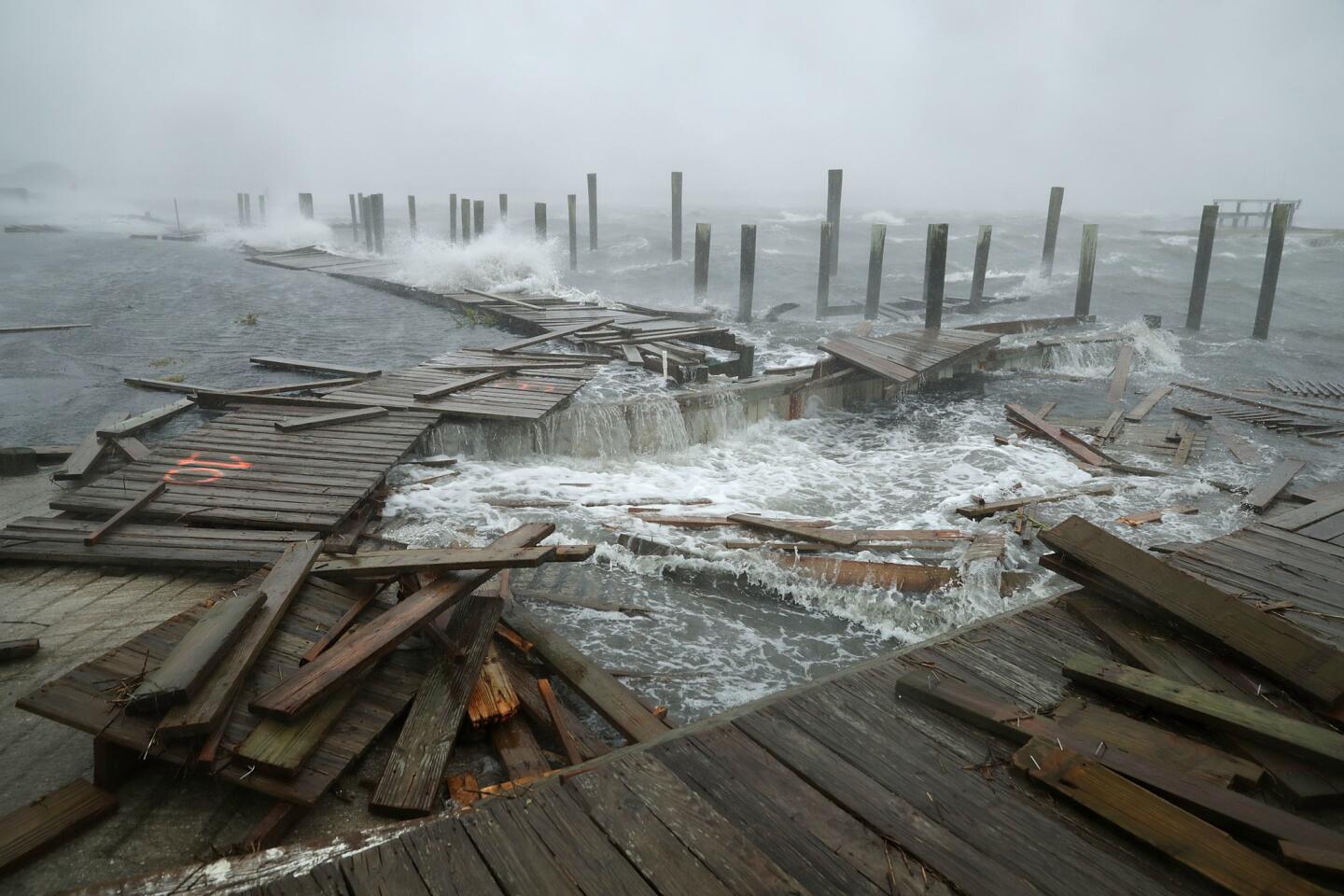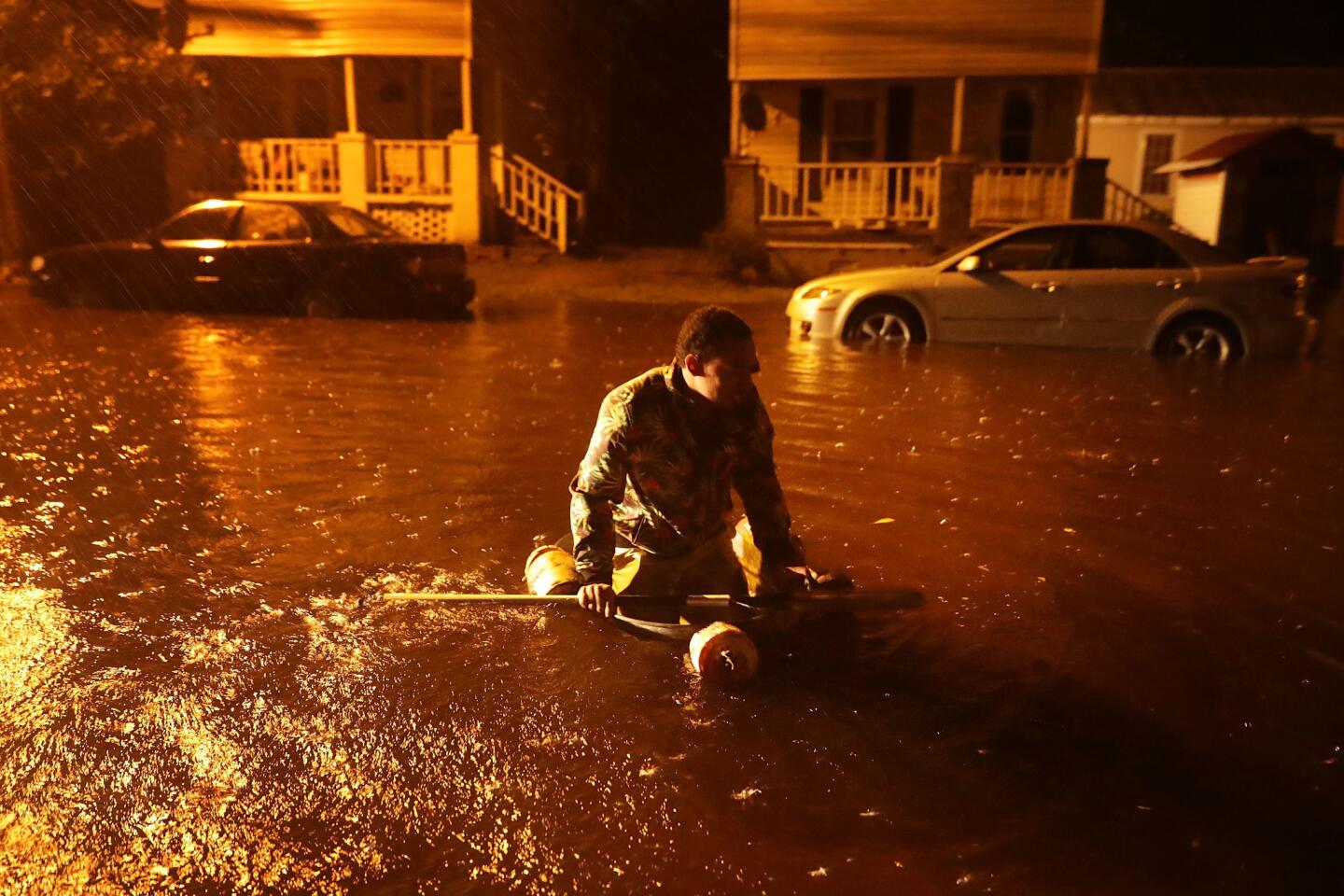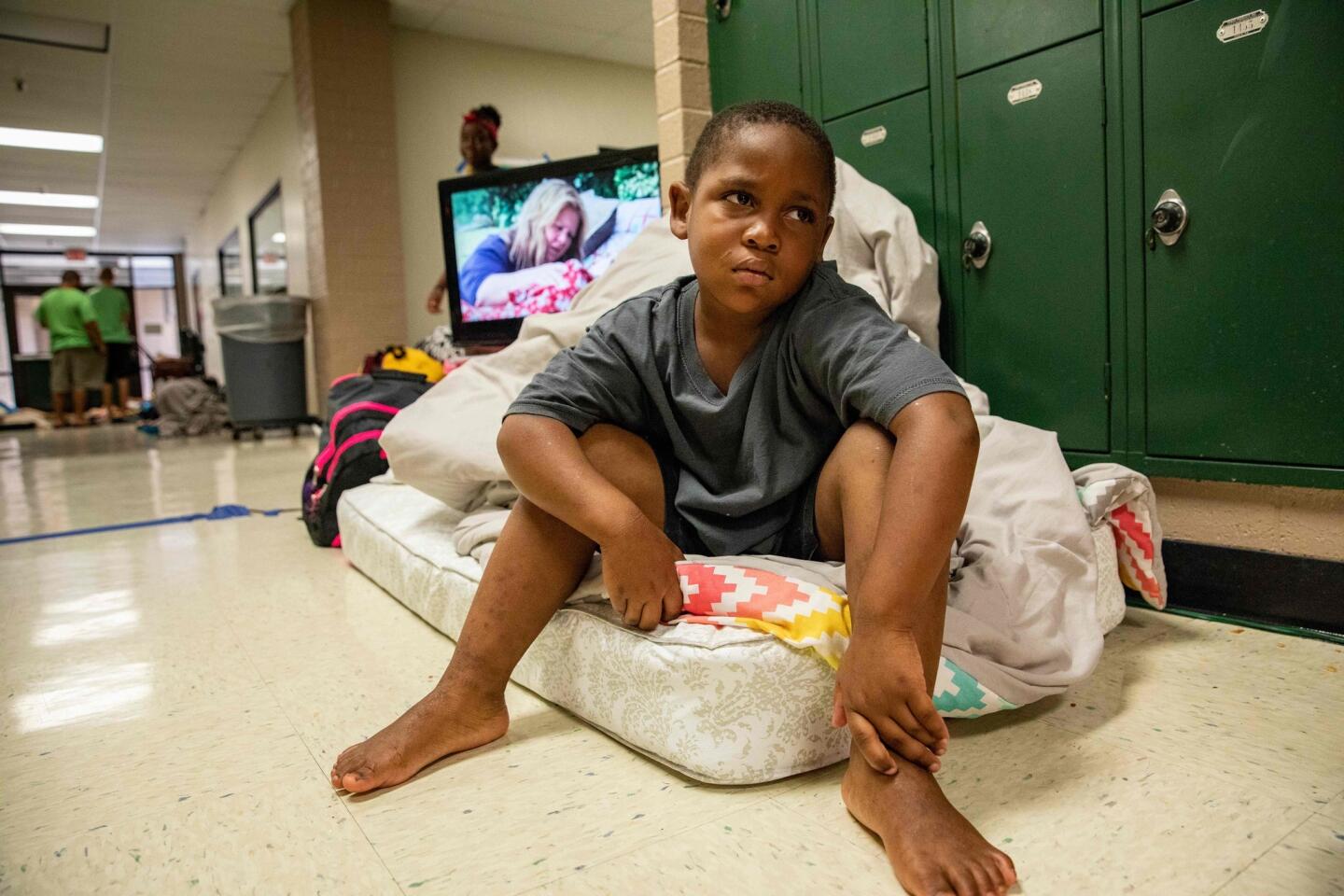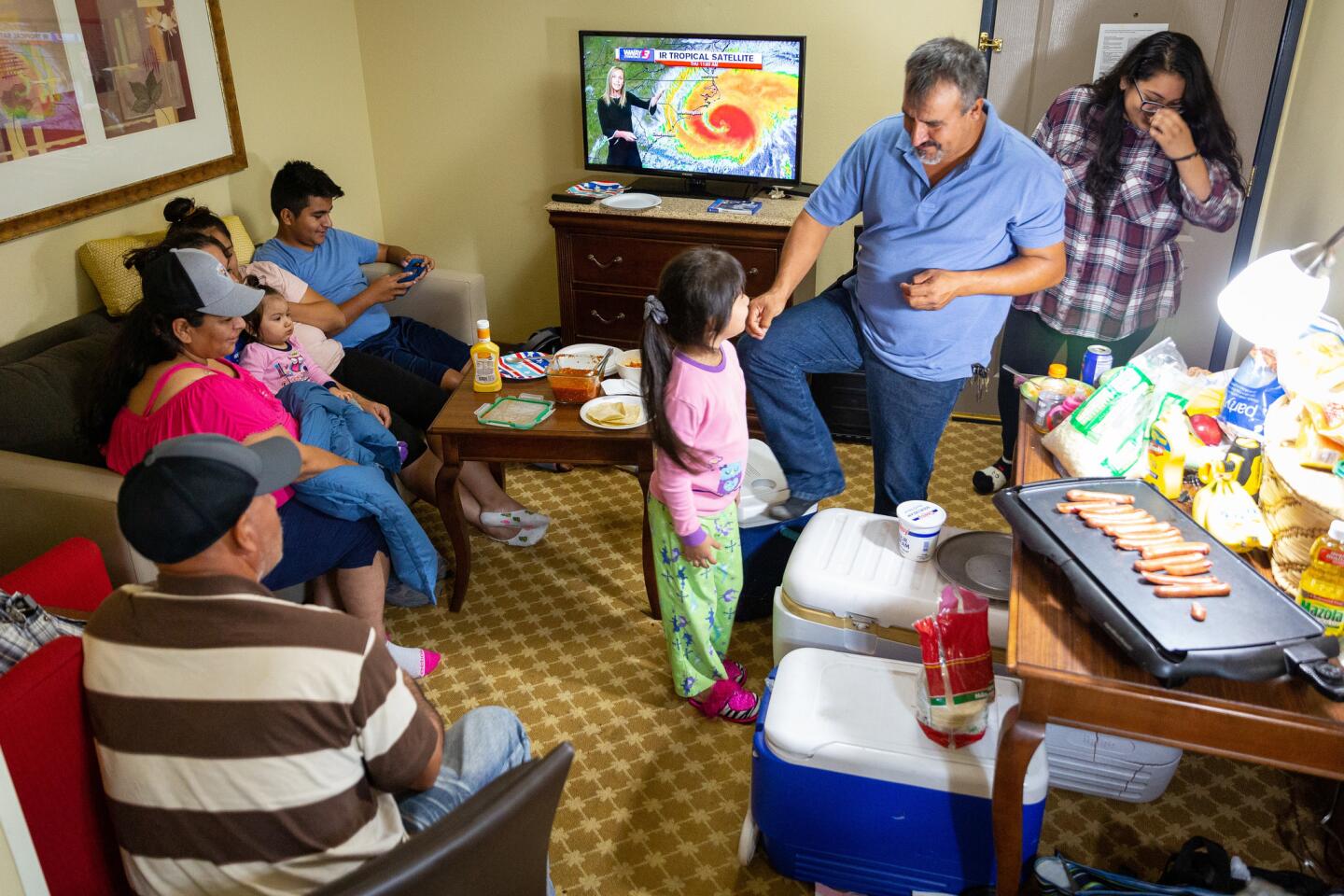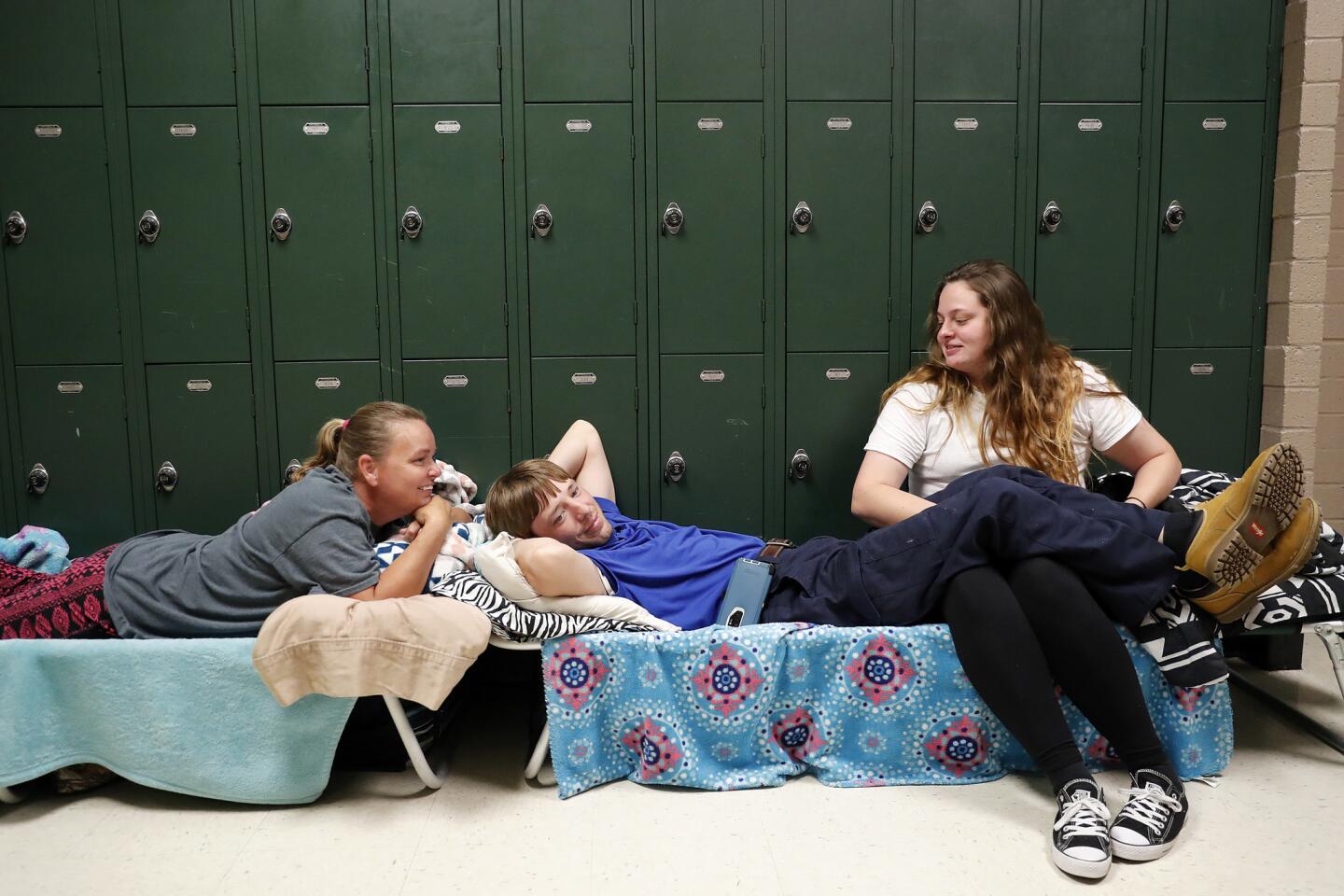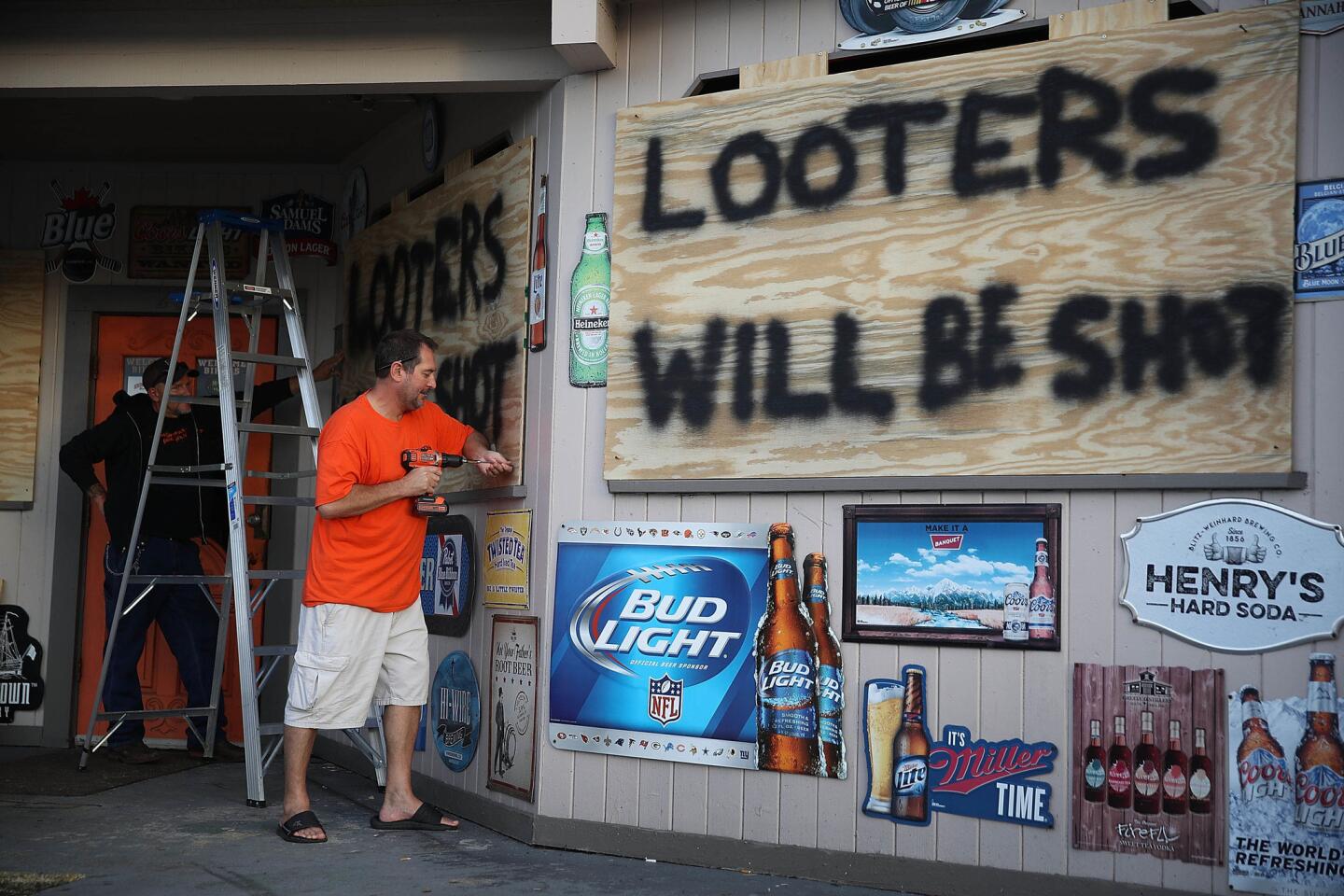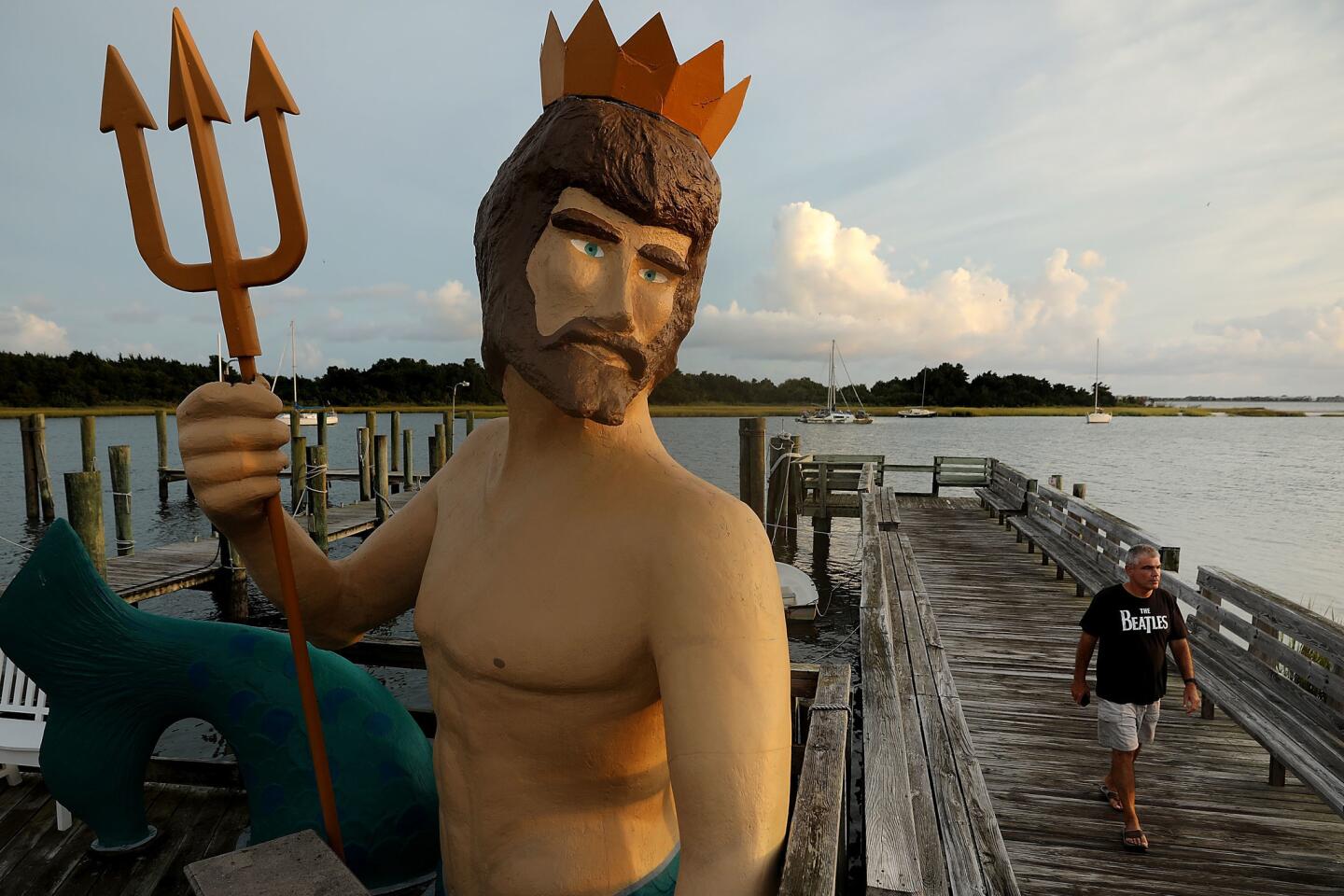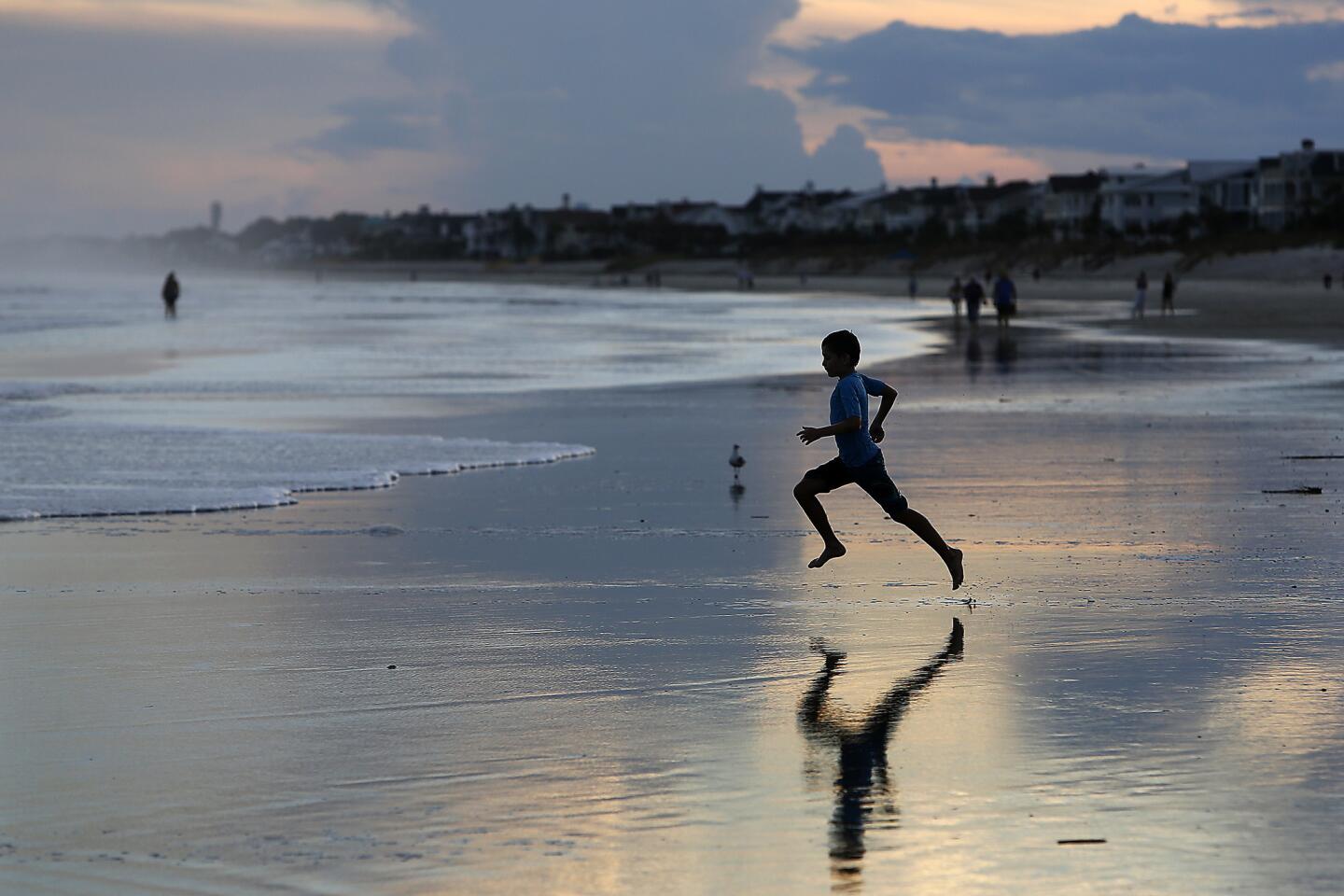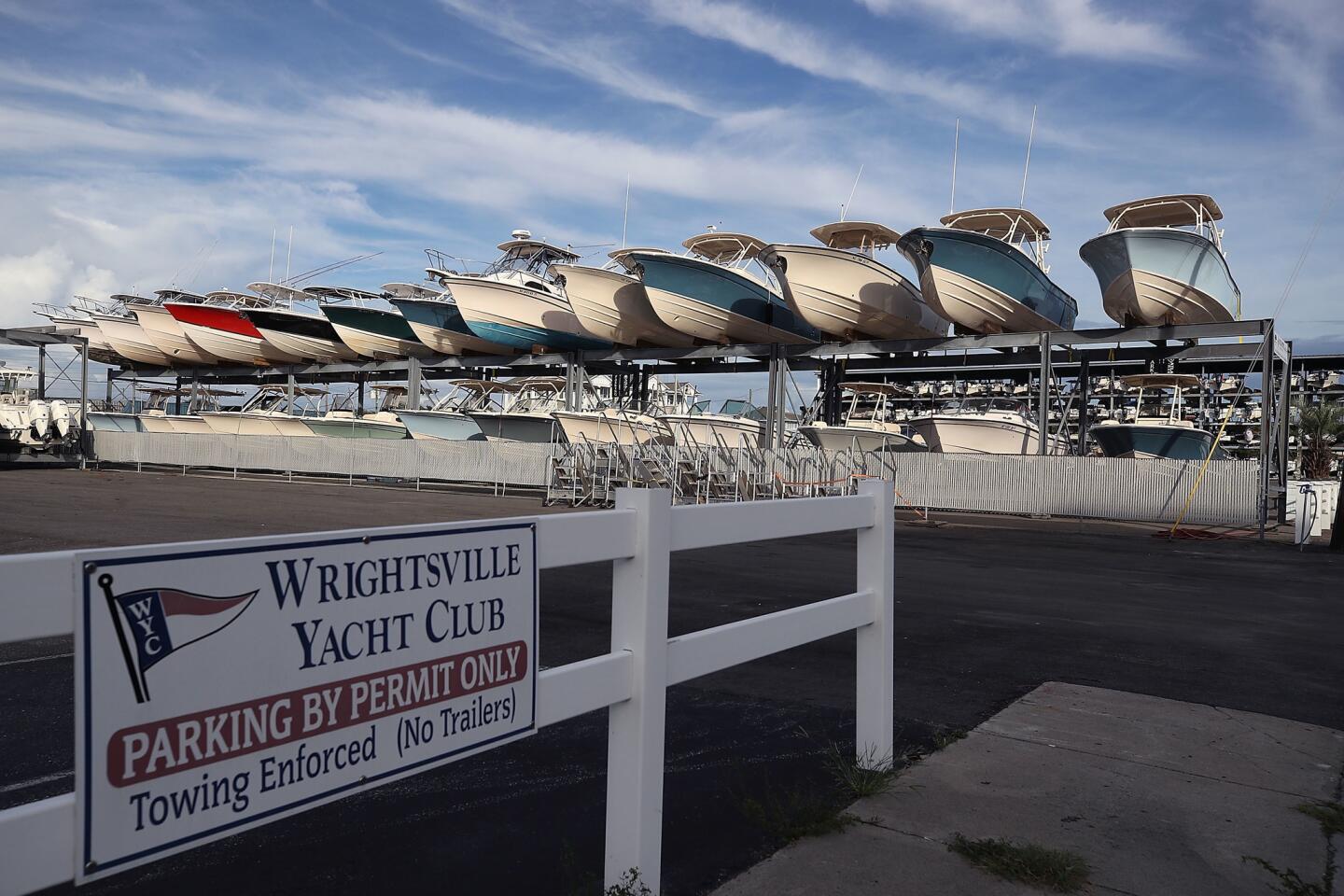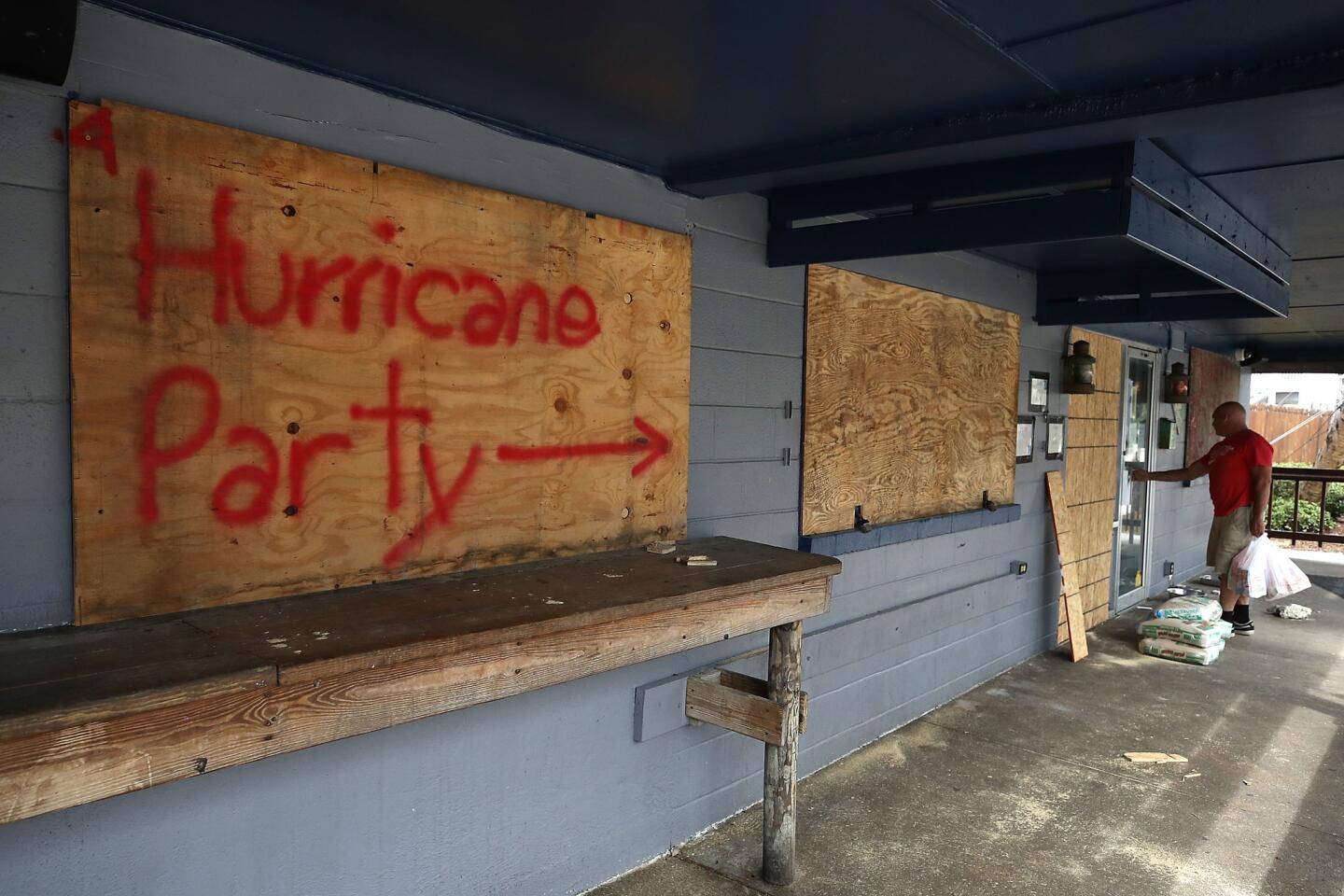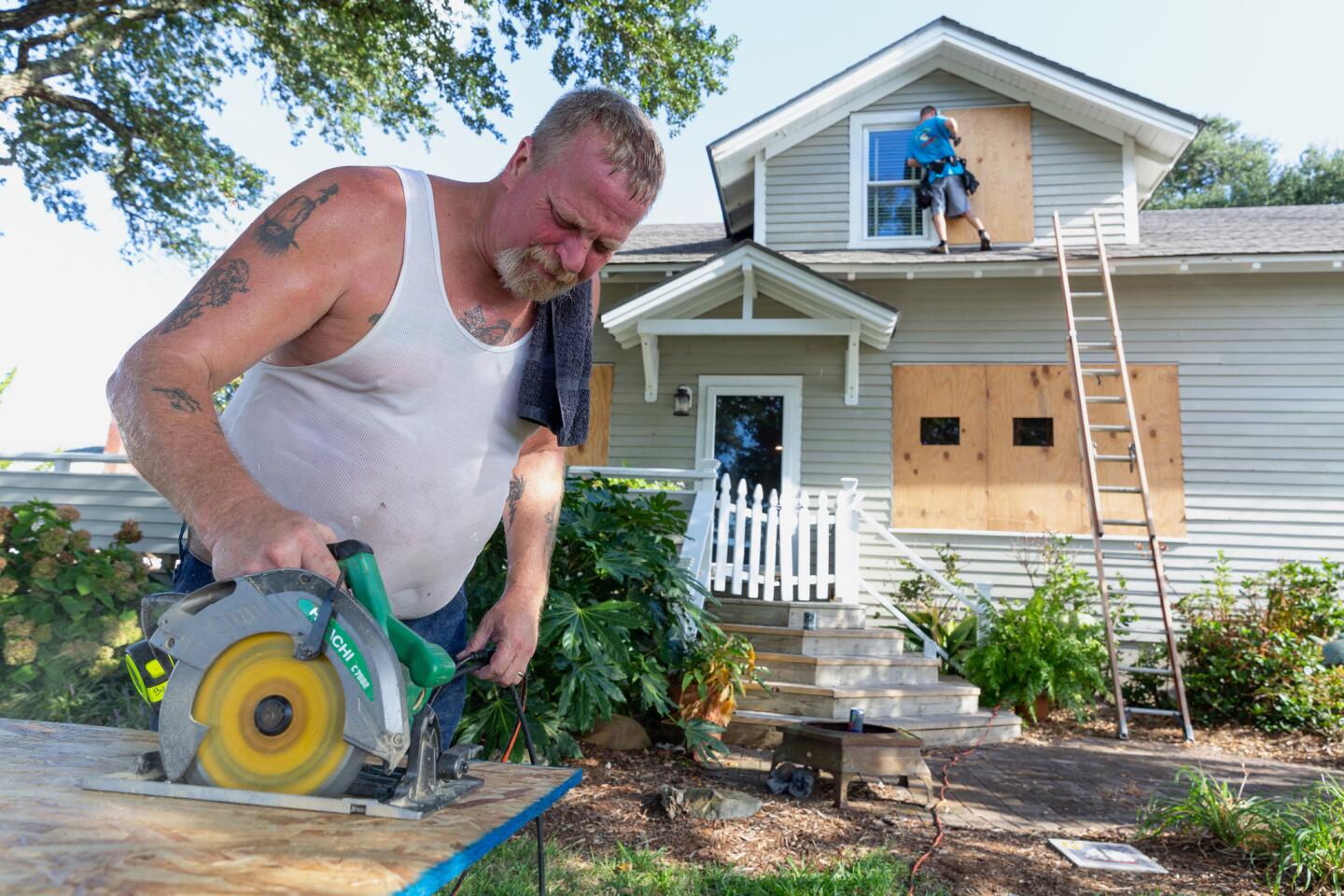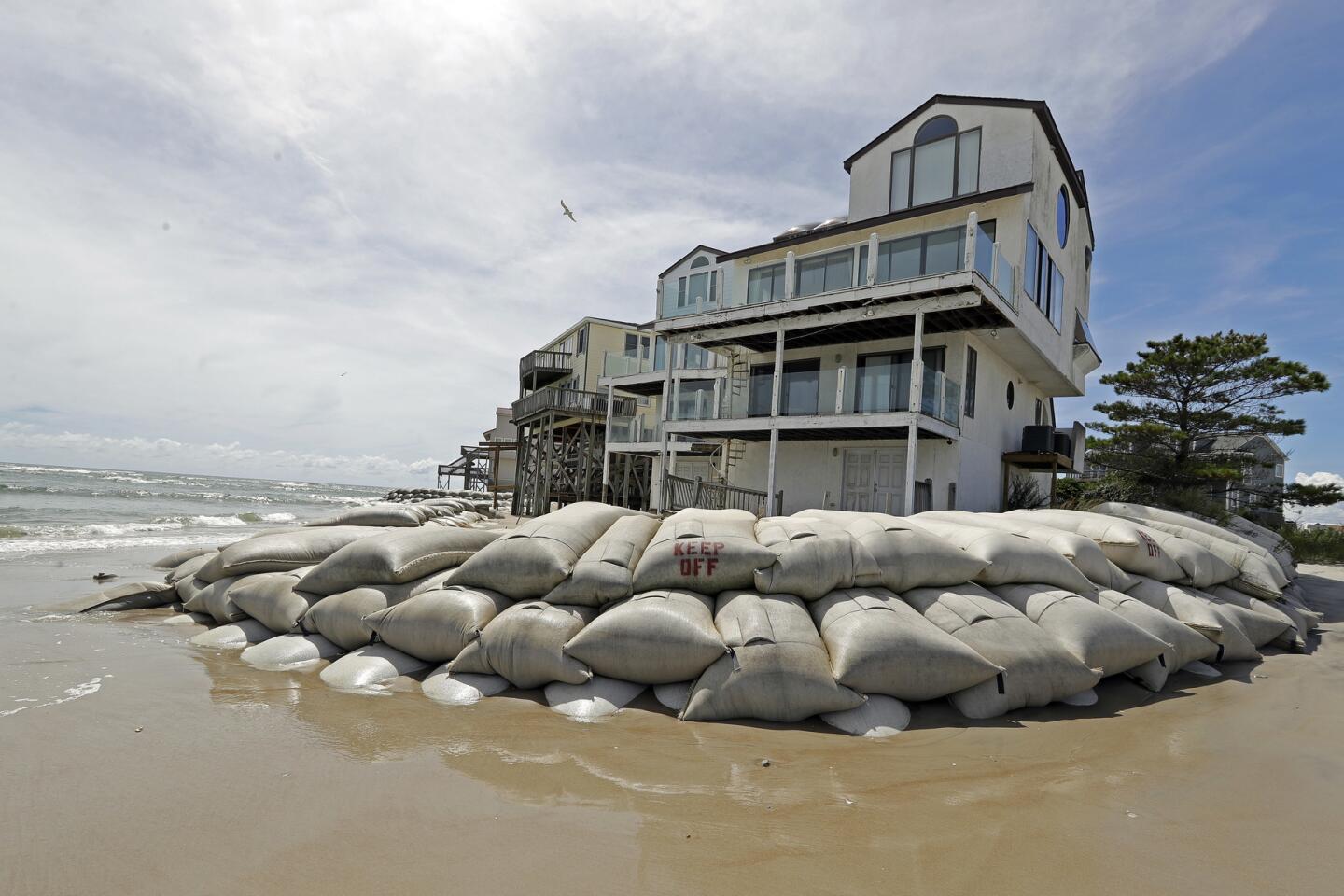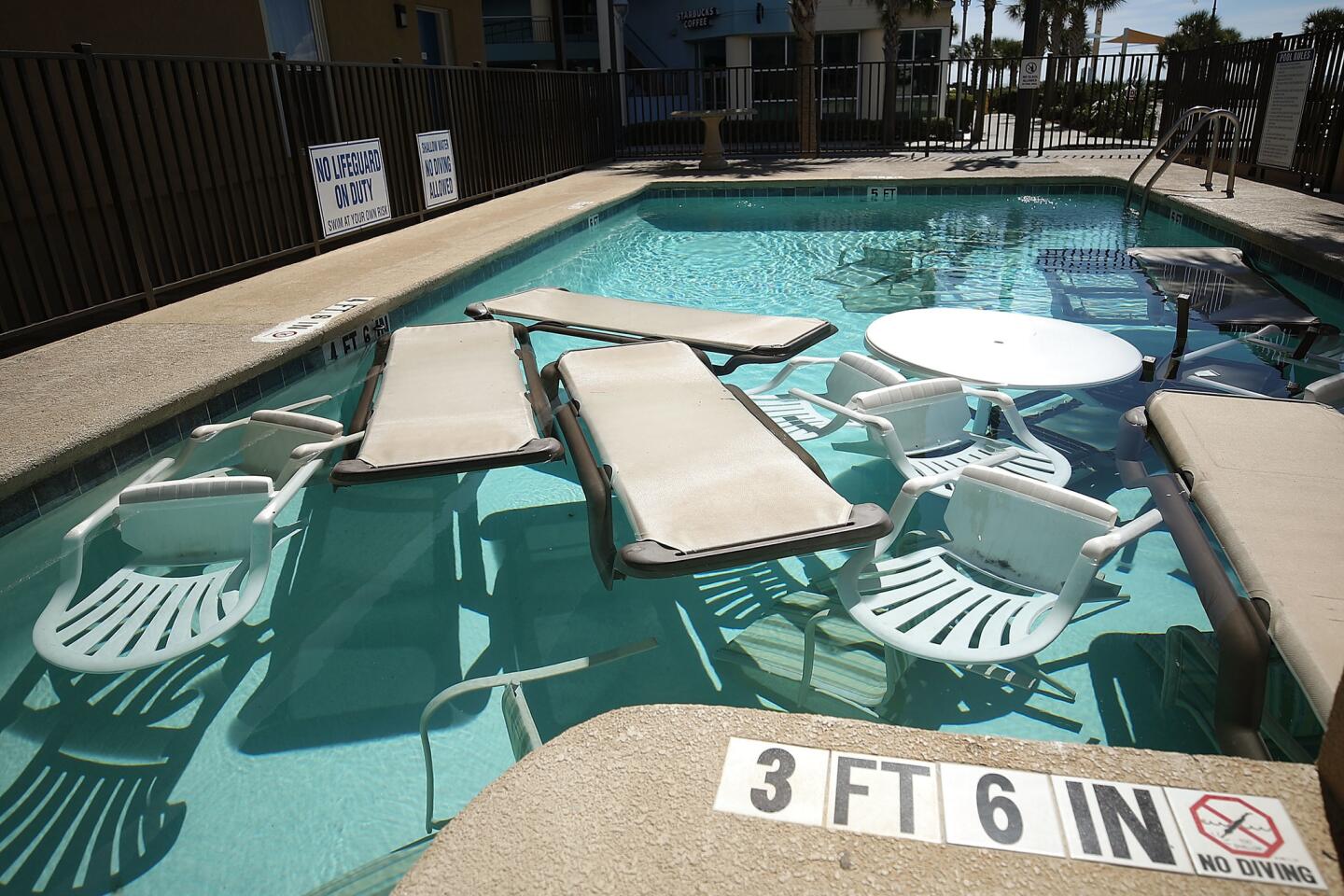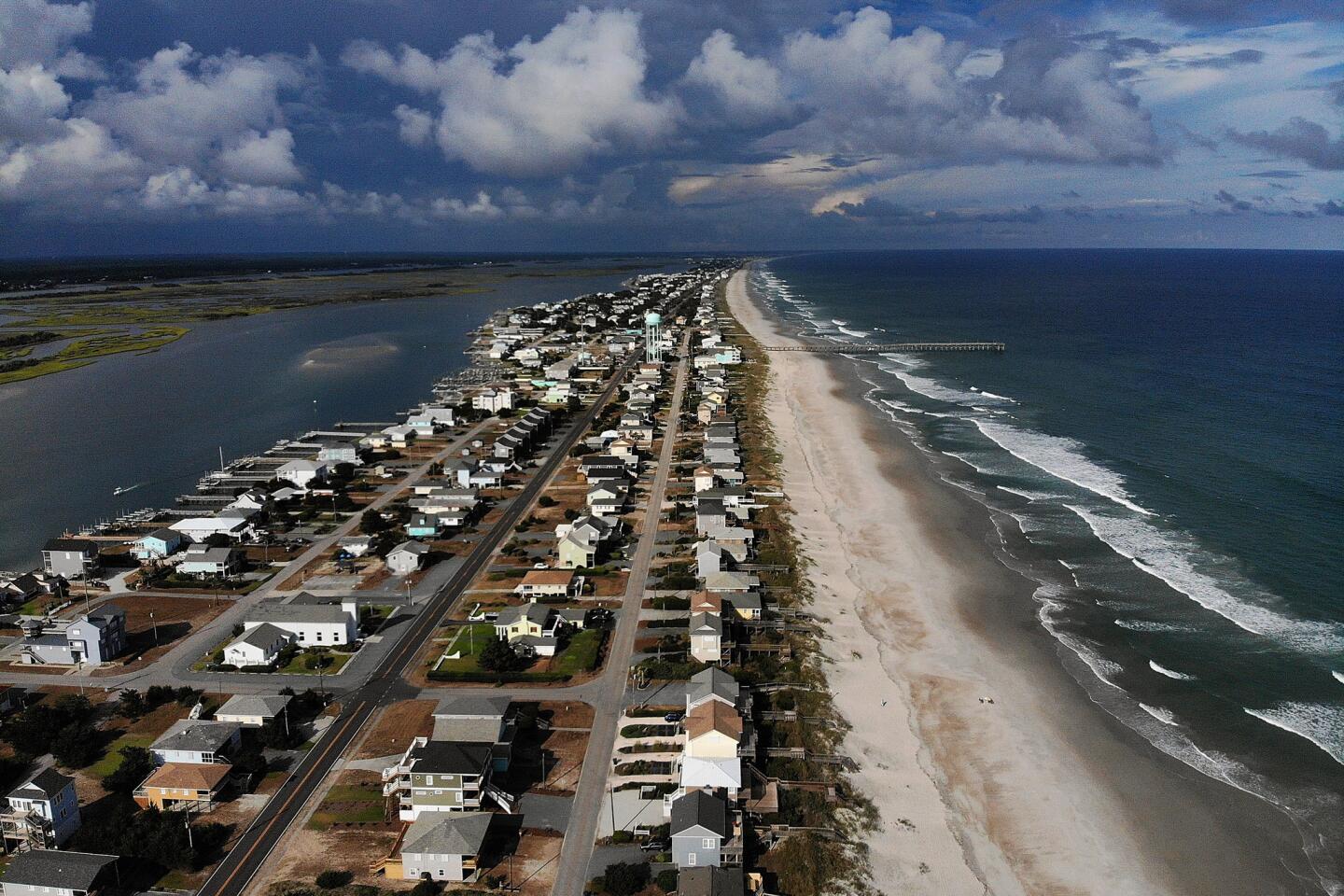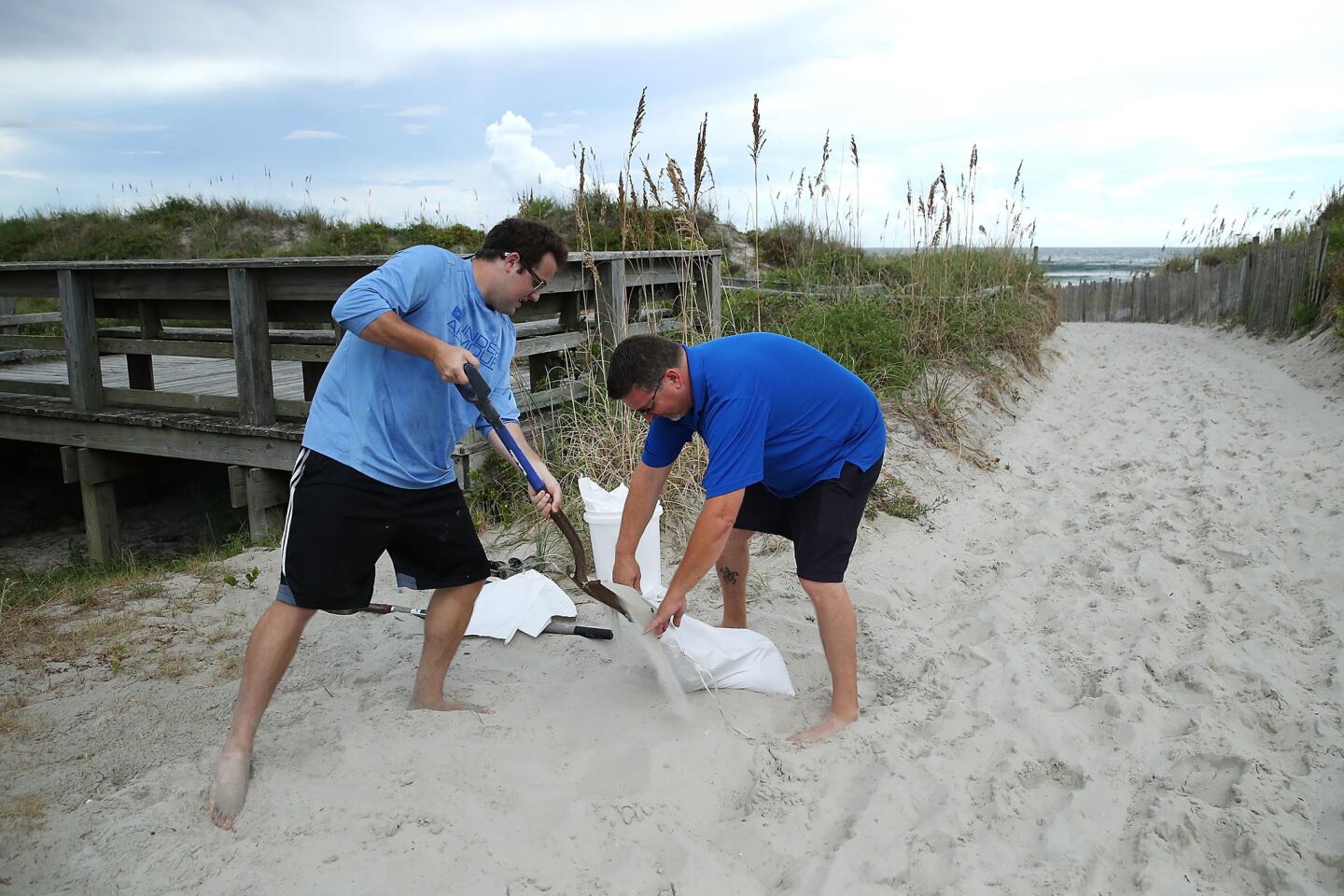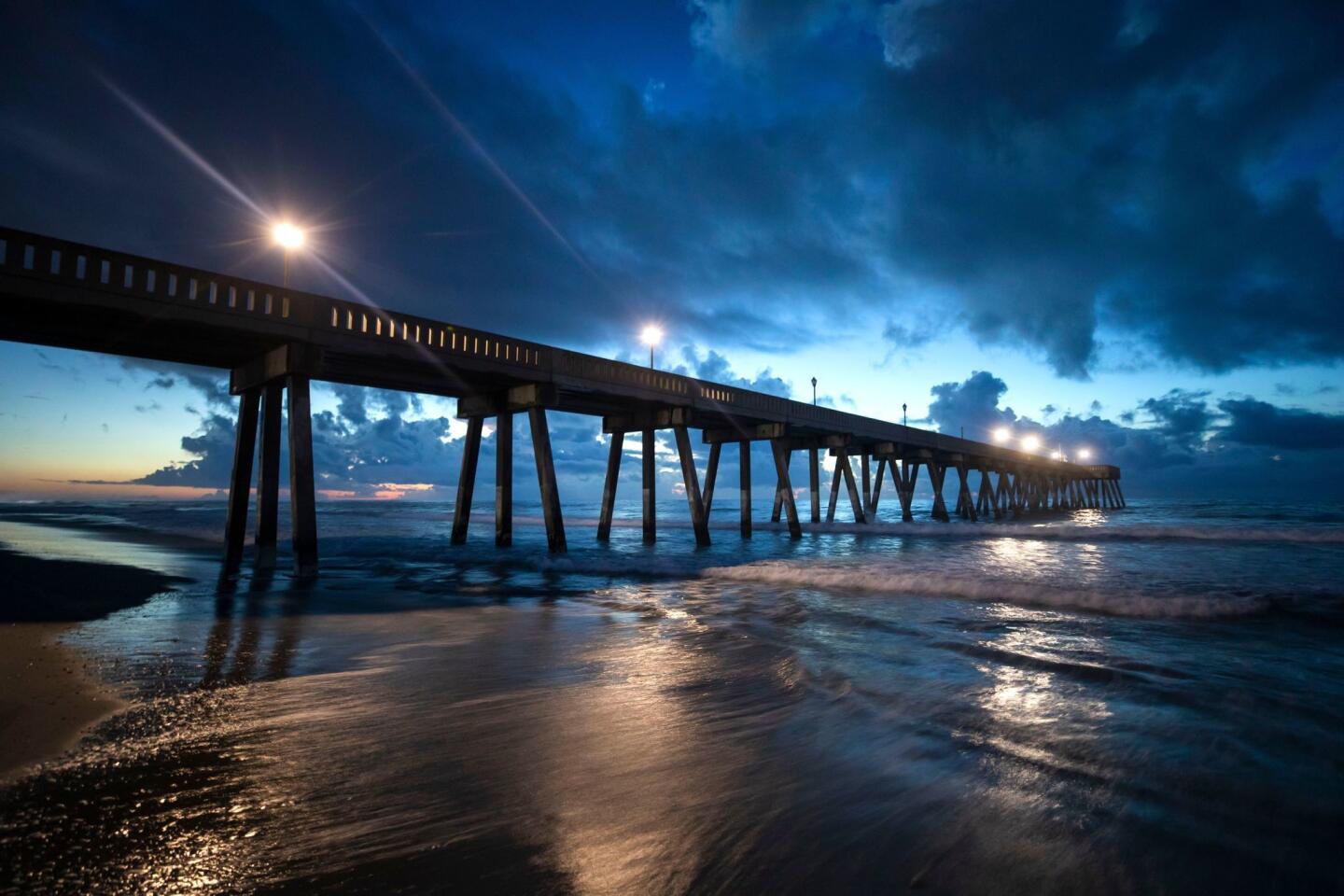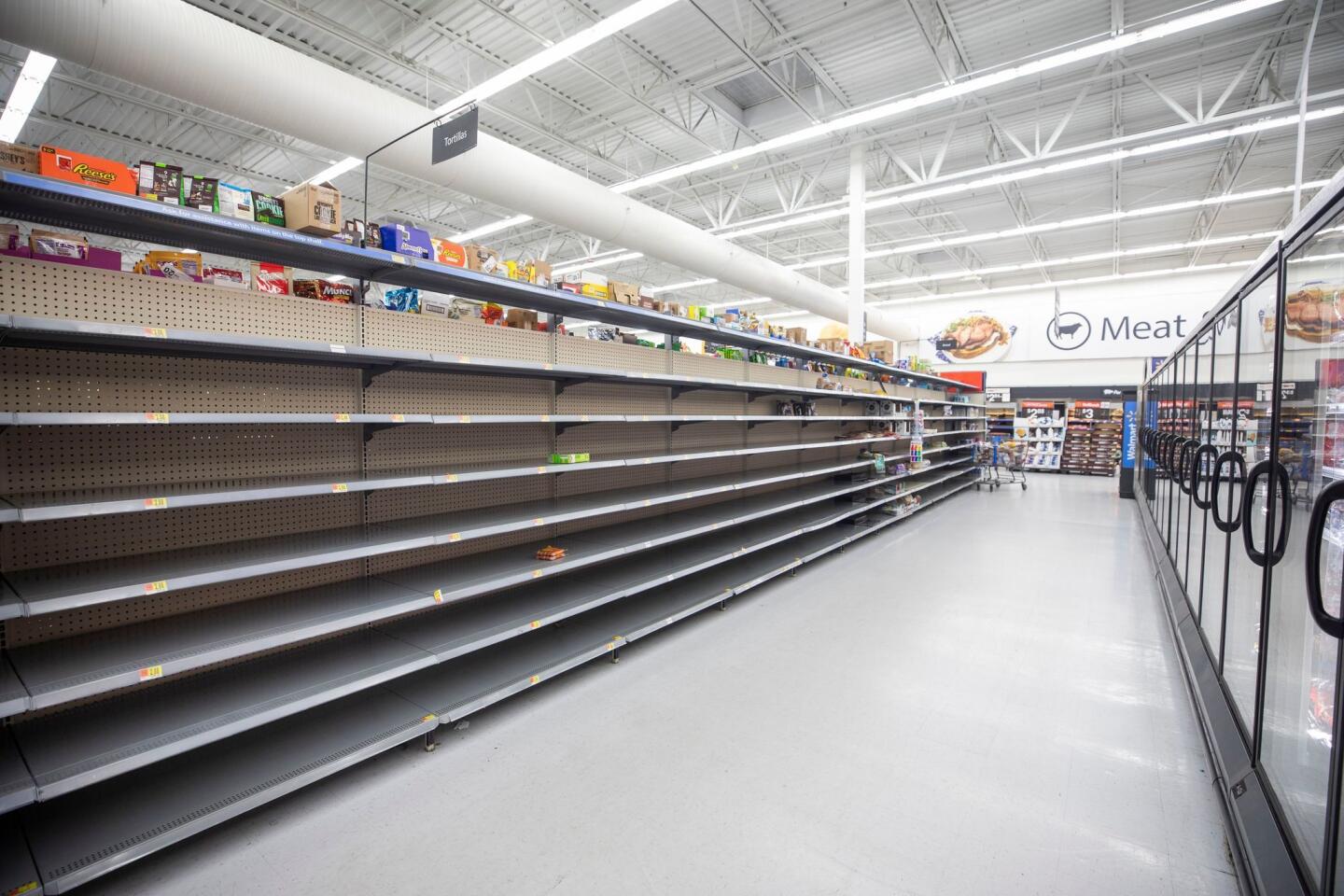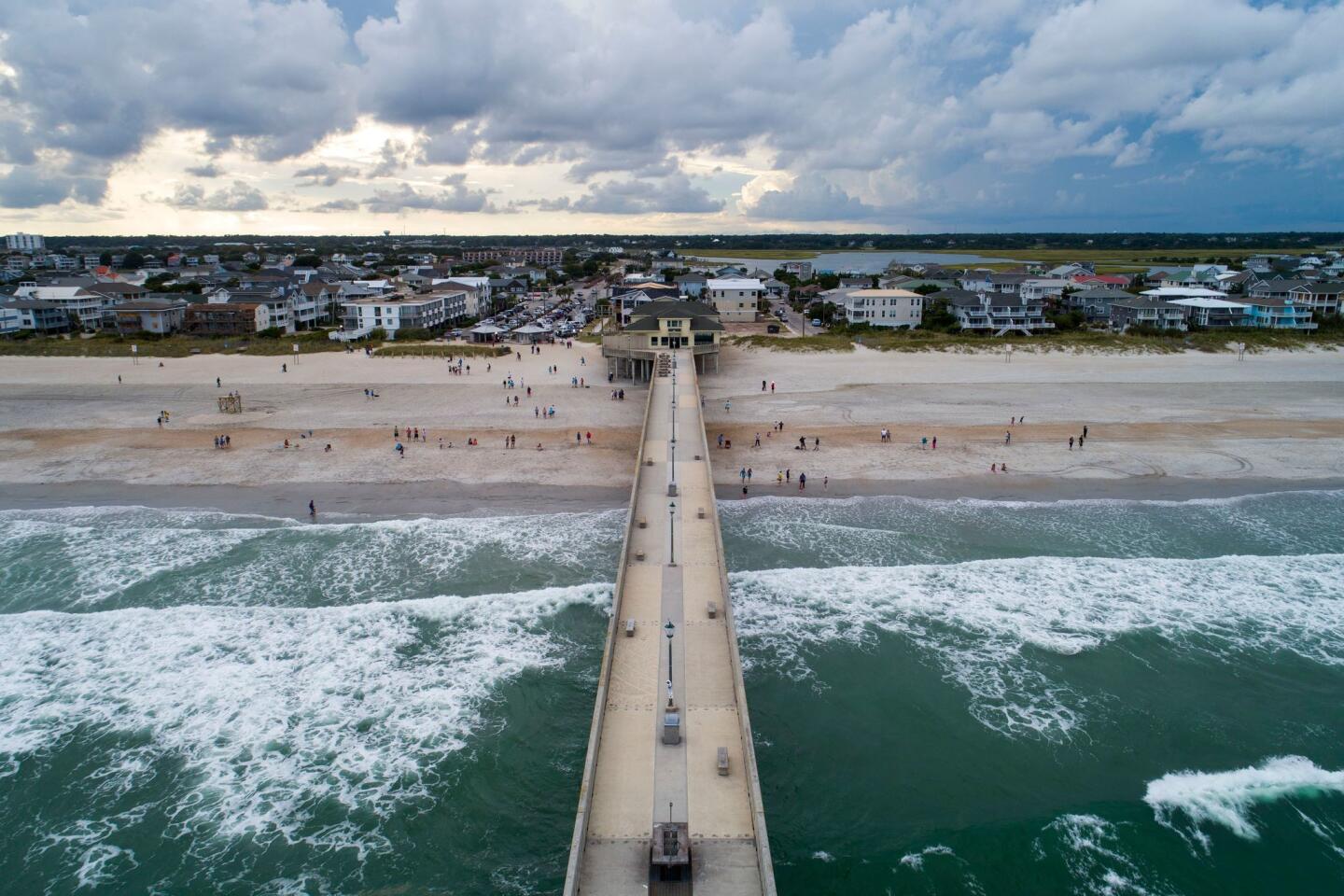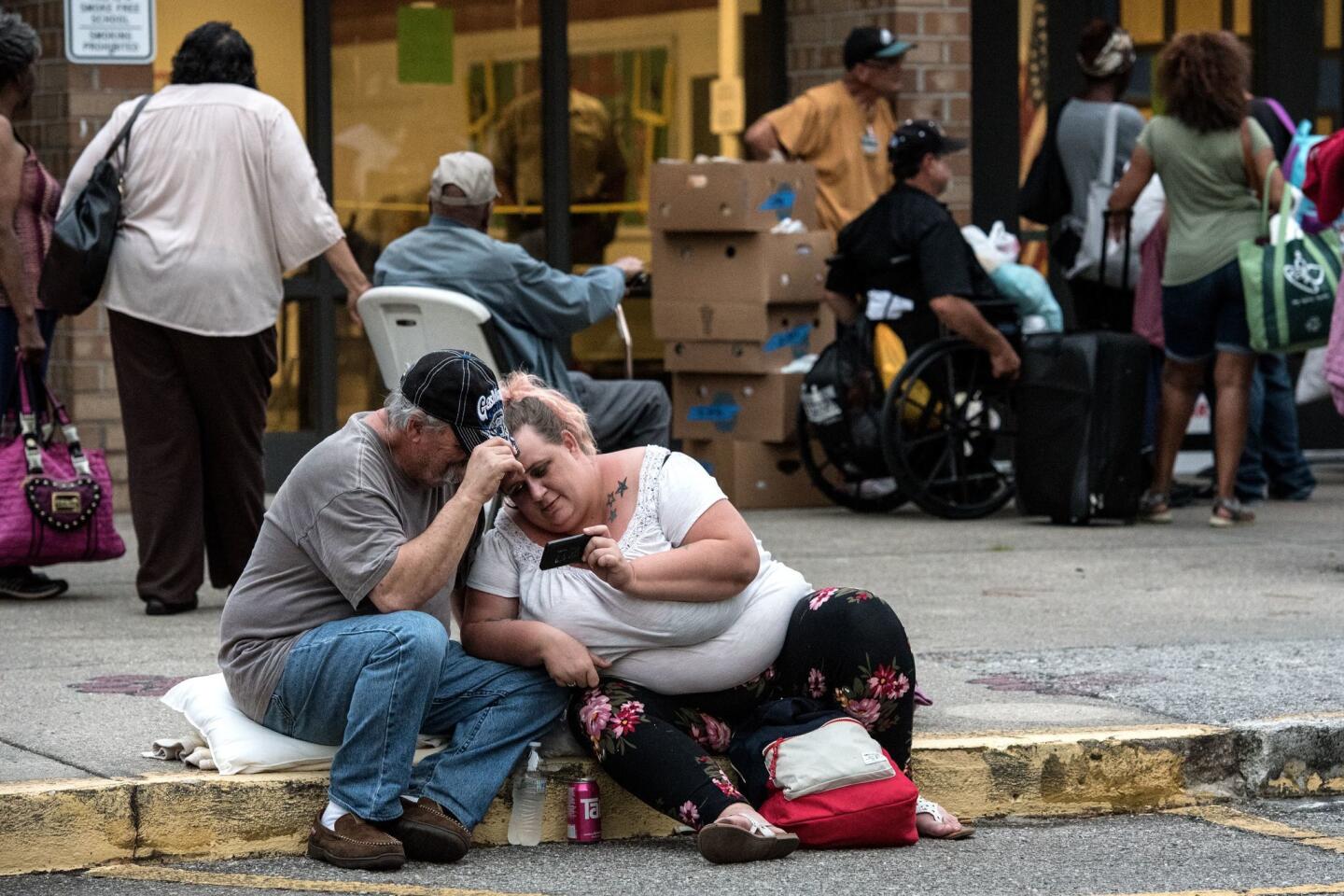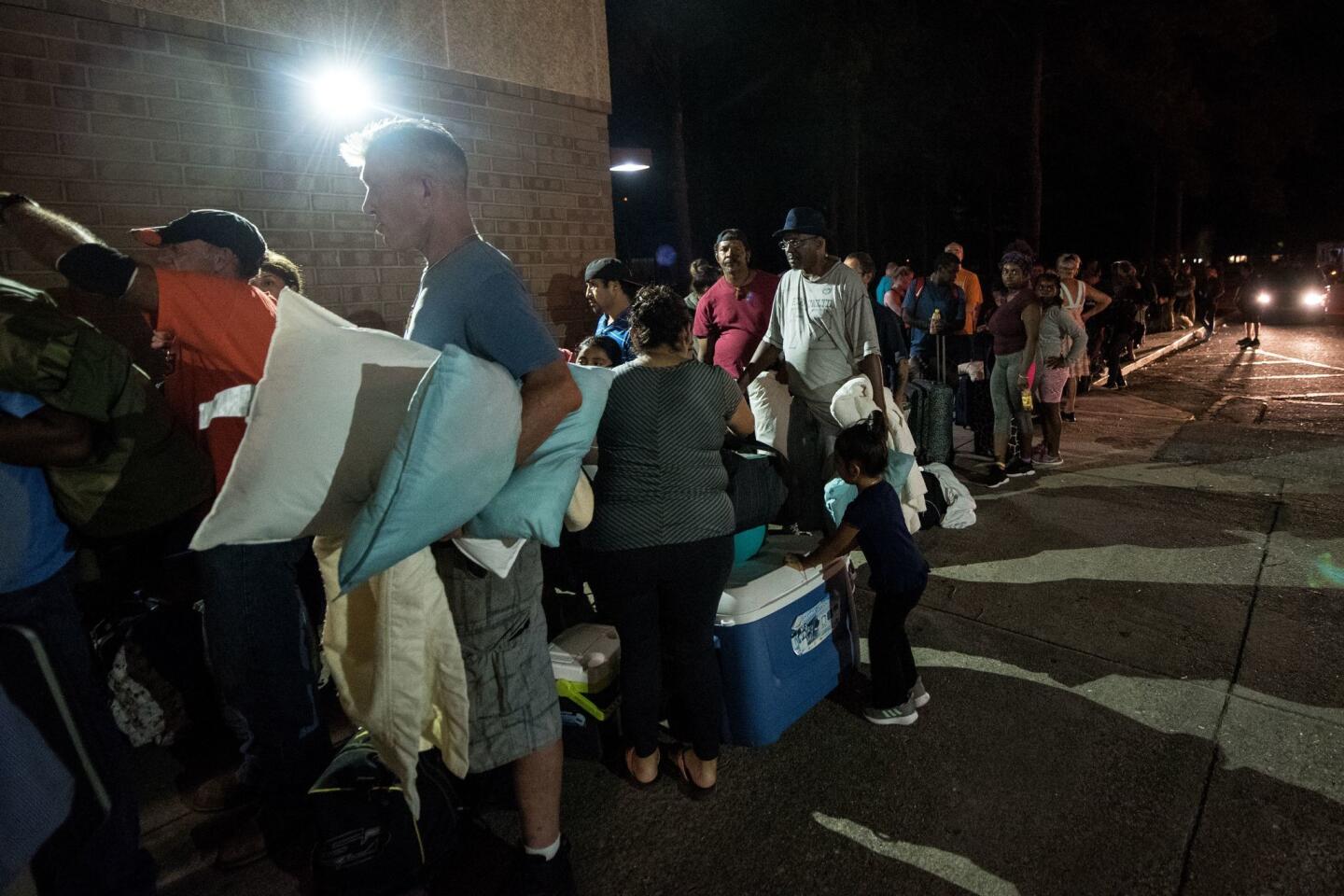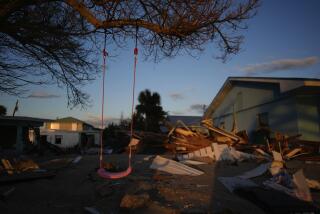As the leading edge of Florence hits the coast, the Carolinas brace for monster hurricane
Reporting from Wilmington, N.C. — The leading edge of Hurricane Florence lashed the coast of the Carolinas on Thursday as the weakened but widening storm edged closer to the Southeastern U.S., bearing dangerous winds and drenching rains.
Florence’s sustained winds fell to 110 mph overnight, dropping it back to a Category 2 storm. But the still-powerful storm also grew even larger, visible from outer space as an enormous circular mass set to envelop the coastline, with tropical-storm-force winds extending nearly 200 miles ahead of Florence’s center.
“Please hear my message — we cannot underestimate this storm,” said North Carolina Gov. Roy Cooper, speaking Thursday at a briefing in Raleigh, the capital. He warned of “battering winds and relentless rains that will last for days,” with storm surges up to 13 feet, reaching the second stories of buildings in vulnerable coastal areas.
“We’re on the wrong side of this thing,” he said. “Today, the threat becomes a reality.”
In Wilmington, a port city of 120,000 people, many homes were empty and boarded up Thursday. Almost all businesses — ice cream shops, seafood restaurants, banks and real estate offices — were shuttered.
But as the rain and wind bore down with the approaching dusk, the lights were still on at a local Waffle House, the popular chain known for staying open through almost anything. Cooks cracked eggs and slung hash browns; servers poured coffee with a “There you go, sweetie.”
An employee standing under an awning outside to greet a stream of arrivals said the restaurant would stay open unless conditions became unsafe — “if the hurricane pulls off the roof or breaks the glass.”
Amid the darkening daytime skies that heralded the arrival of the monster storm’s outer bands, some businesses conveyed a spirit of jaunty defiance.
Someone had spray-painted, “HEY FLO … KISS MY GRITS! Wilmington will survive,” on the plywood covering a window at the Liquid Room, a downtown nightclub.
Travel will be hazardous, South Carolina Gov. Henry McMaster warned at an afternoon briefing. “Trees will be down on the road. Power lines will be down on the road,” he said. “This is enormously dangerous.”
Some vulnerable areas were already affected. The ocean was washing across parts of North Carolina Highway 12, which connects many barrier islands to the mainland.
By early evening, Florence was 100 miles east-southeast of Wilmington, lumbering its way toward the Outer Banks, with the eye of the storm expected to make landfall Friday.
Authorities warned that the greatest peril could come from epic rains the storm will drop as it lingers at the shoreline, with more than 2 feet expected along the coast and significant amounts far inland as well.
Federal Emergency Management Agency Administrator Brock Long appealed to coastal residents in a briefing Thursday not to read too much into the drop in Florence’s wind speed as it approached the mainland.
“Please do not let your guard down.... The ocean is going to start rising,” he said. “Your time to get out of those areas is coming to a close.”
President Trump offered fresh reassurances about federal preparedness for Florence, but also renewed acrimonious commentary about last year’s heavily criticized response to Hurricane Maria, which ravaged Puerto Rico.
On Twitter on Thursday, he disputed an academic study citing nearly 3,000 deaths in the U.S. territory following the storm, which the Puerto Rican government accepted as its official tally. Trump falsely alleged that the figure was put forth “by the Democrats in order to make me look as bad as possible.”
“I love Puerto Rico!” he wrote.
Utility providers, meanwhile, told customers in the Carolinas and beyond to expect prolonged power losses once the storm hits. Officials warned of the dangers of gas-powered generators and candles.
Duke Energy, the main regional power company, projected that some 3 million people could lose power, possibly for a long time. The company was mobilizing thousands of out-of-state workers for the response.
There are half a dozen nuclear power plants in North Carolina, South Carolina and Virginia, the three states expected to be hit hardest, but most are situated well inland.
One that lies just four miles from the coast is Duke’s 1970s-era Brunswick plant. Its location, about 20 miles south of Wilmington, puts it near the storm’s expected path. One of its two reactors was shut down earlier Thursday and the second was to be shut by day’s end, the Reuters news agency reported.

In Wilmington, as wind gusts picked up, a row of three elderly men sat quietly at a bus stop outside Solomon Towers, an 11-story public housing complex near downtown. There were no buses and hardly any cars on the road.
Billy Brooks, a 76-year-old resident of the complex, was 12 when Hurricane Hazel, a Category 4 storm, hit Wilmington in 1954. He recalled huddling in the basement of a cotton mill and emerging many hours later to a scene of devastation: downed trees and ravaged buildings.
“We’re just going to tough it out,” he said, puffing a cigarette. “I’m not scared.”
Nearly 200 miles north, in the North Carolina town of Columbia on the Albemarle Sound, the sky was gray, and wind-driven rain whipped across a mainly empty road. Many people had fled, but Harold Davenport, who has lived all his 57 years in the town, planned to ride out the storm. He pointed out that it was forecast to tack south, not north.
“Some of them turn, some of them don’t,” he said.
In the storm’s path, some were already looking ahead toward hardships to come. “We’re about to lose everything,” said Donna Hammonds, 47, who lives in the coastal community of Monkey Junction south of Wilmington.
Hammonds, a former medical billing officer who was sheltering at a middle school in Wilmington, said she expected the storm surge to flood the mobile home she shares with her cousin. As she spoke, her phone buzzed: It was her sister calling to say she’d put a few hundred dollars into Hammonds’ bank account to help tide them over.
They had to move quickly to get to the bank. The wind was picking up.
Jarvie reported from Wilmington, and King from Washington. Times staff writer Chris Megerian in Columbia, N.C., contributed to this report.
UPDATES:
3:45 p.m.: This article was updated with storm’s early-evening position and strength, and more details from Wilmington.
12:58 p.m.: This article was updated with storm’s new position, highway connecting barrier islands beginning to flood, nuclear plant near coast being shut down, more details and quotes.
8:40 a.m.: This article was updated with reaction from Wilmington and the storm’s latest position.
This article was originally published at 7:40 a.m.
More to Read
Sign up for Essential California
The most important California stories and recommendations in your inbox every morning.
You may occasionally receive promotional content from the Los Angeles Times.
